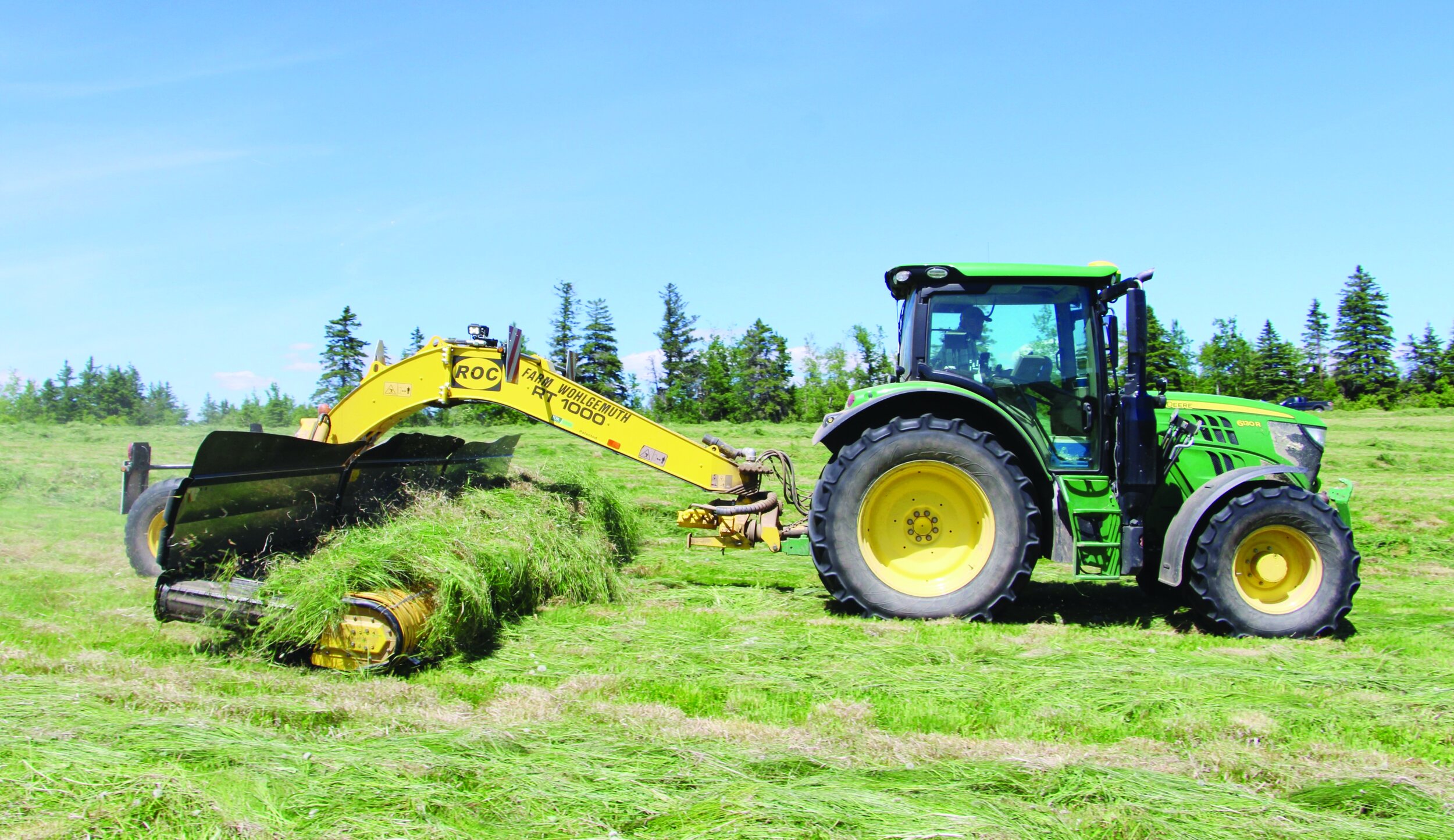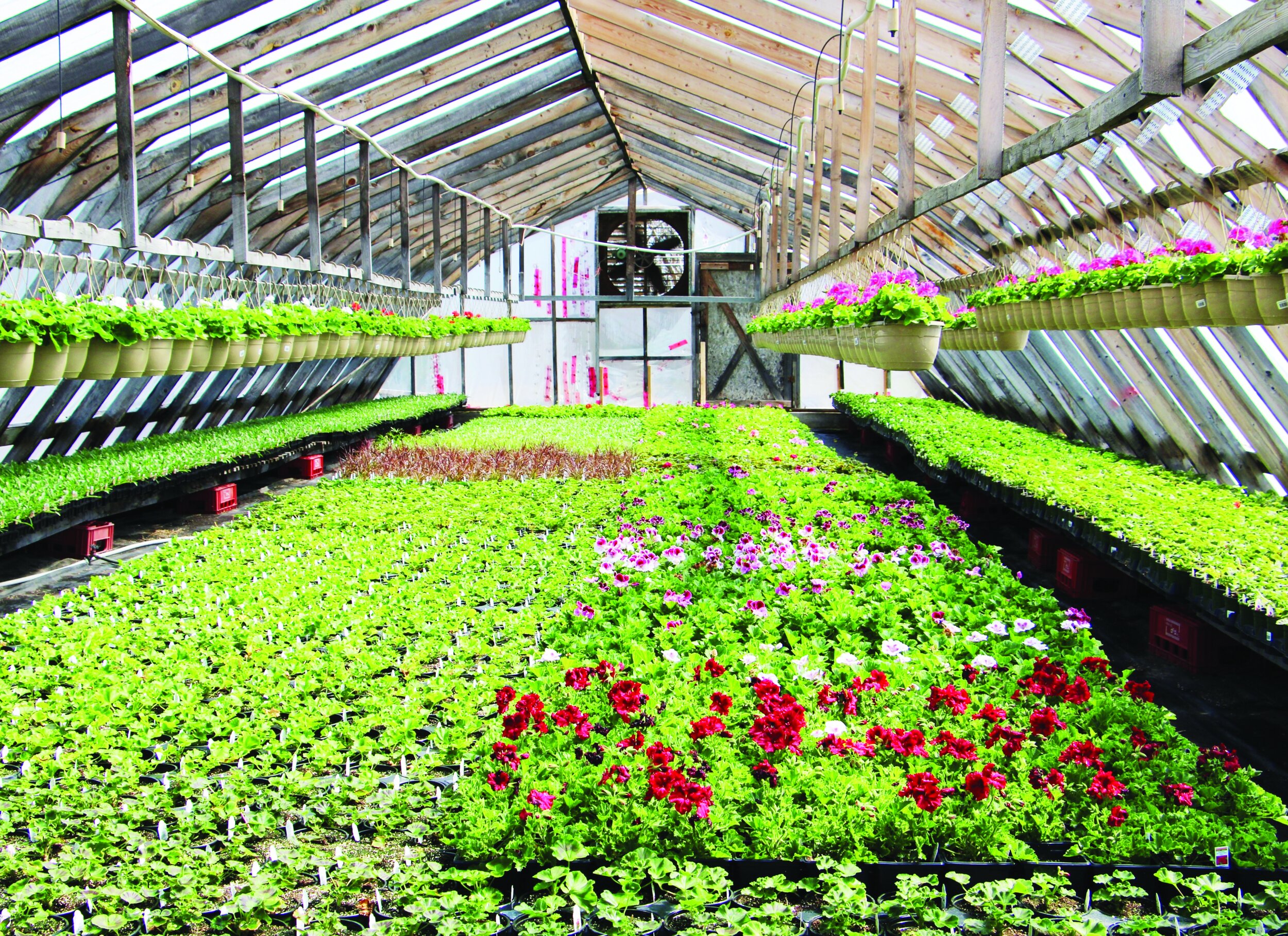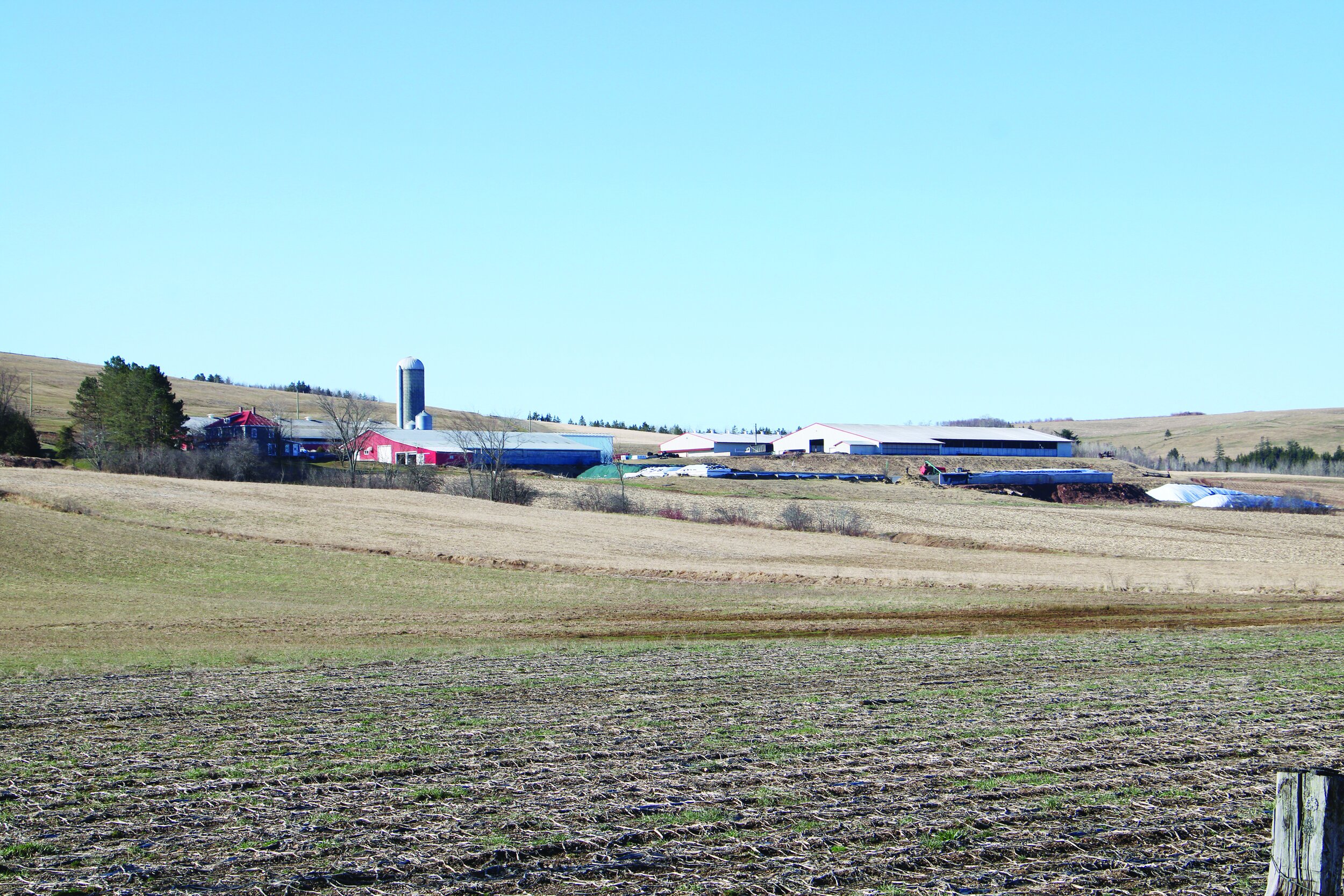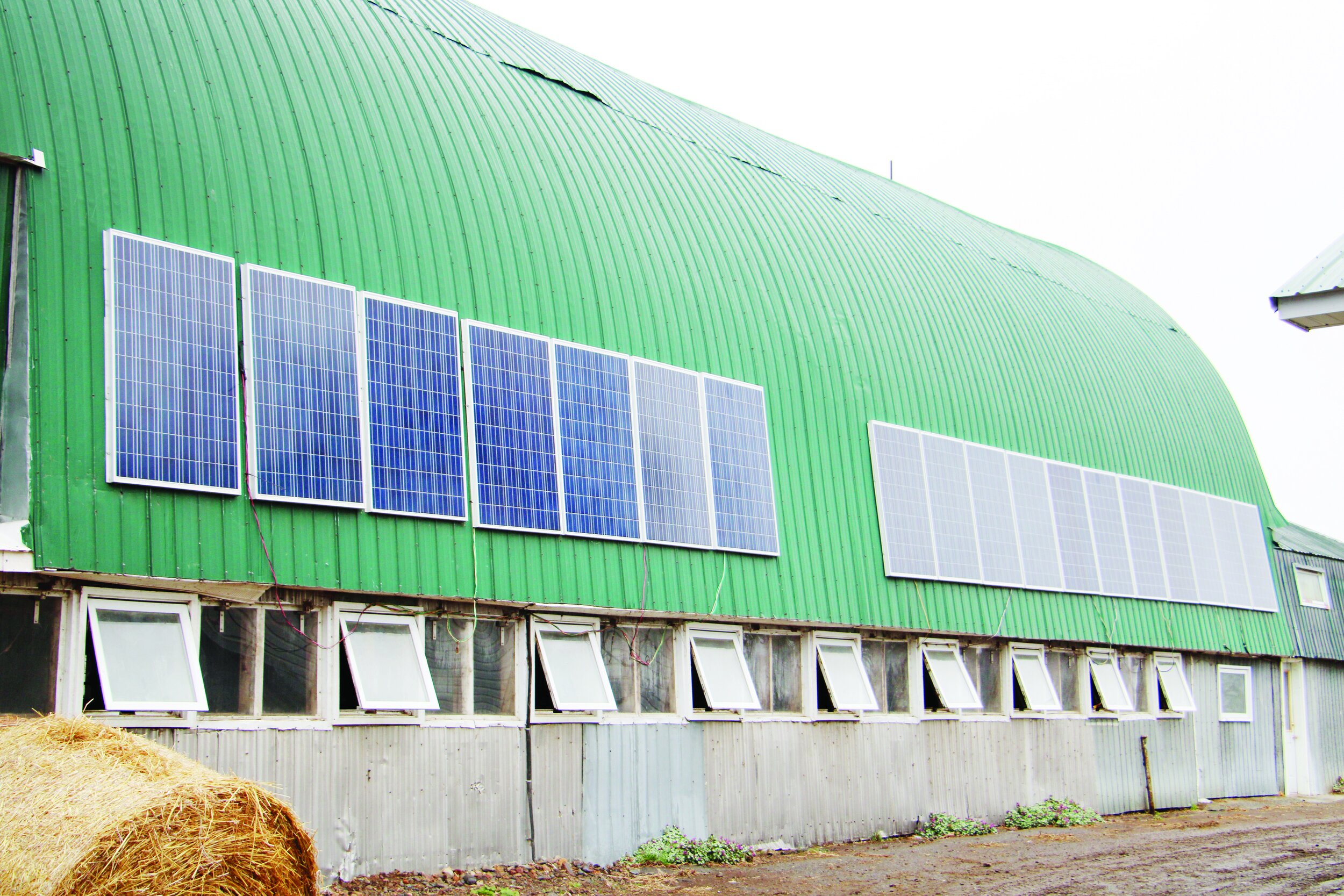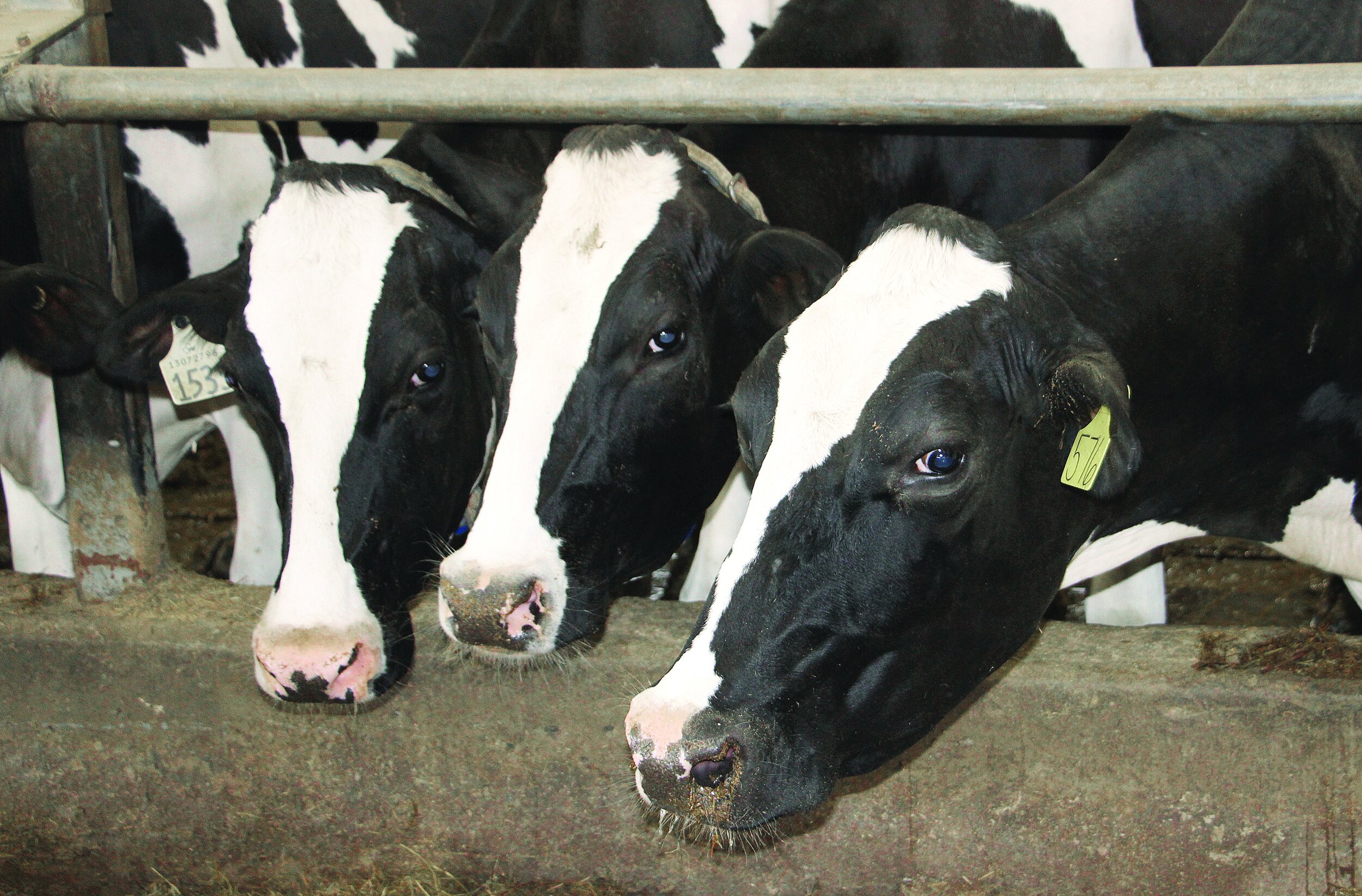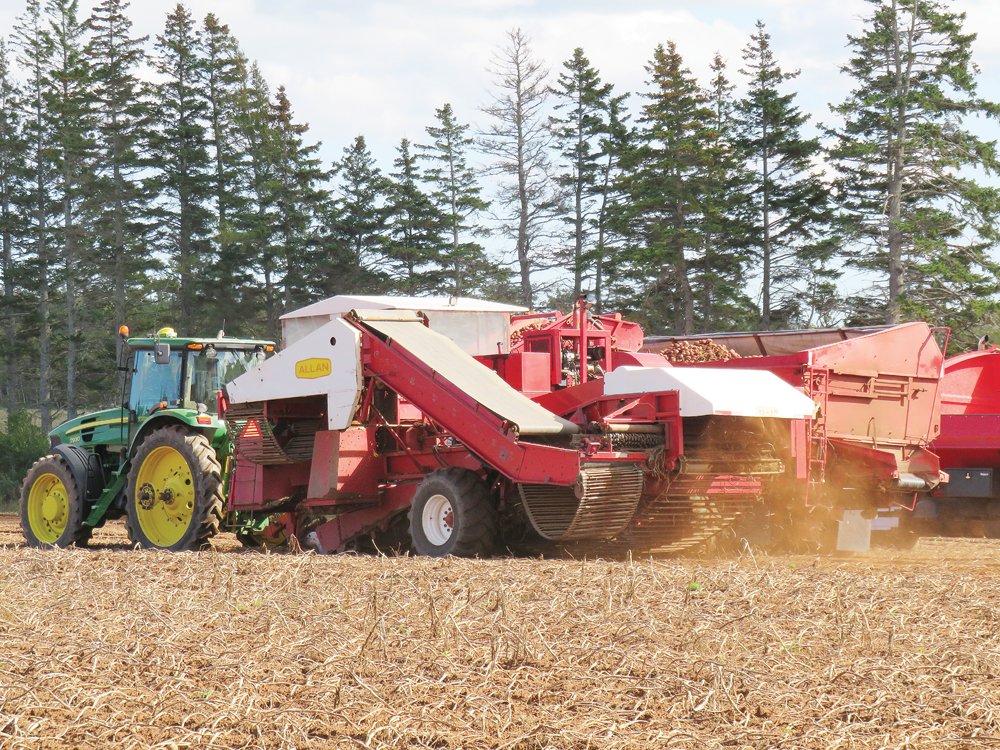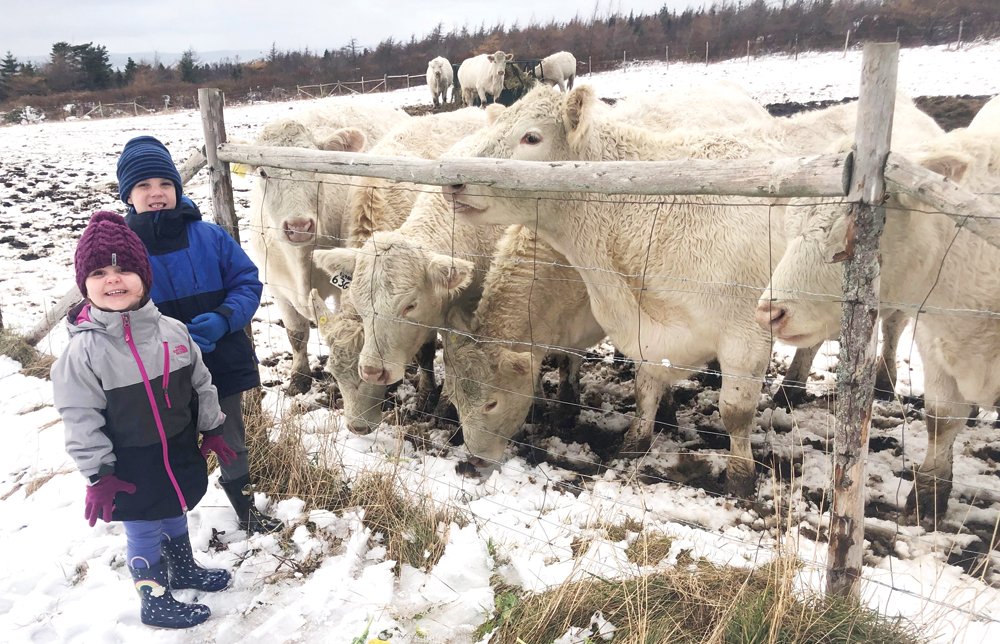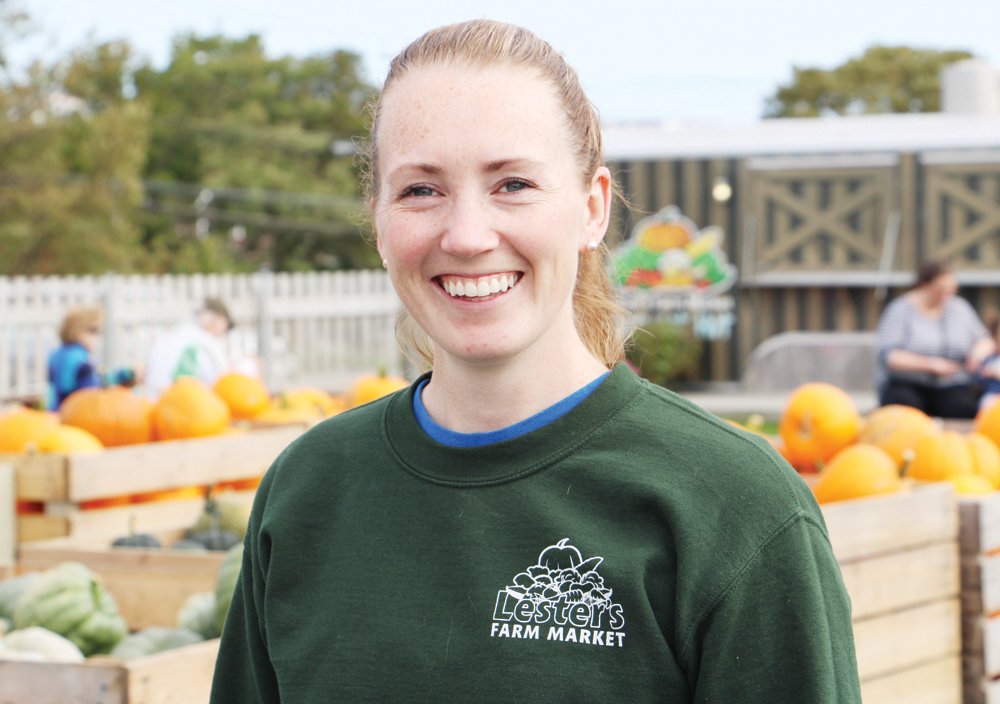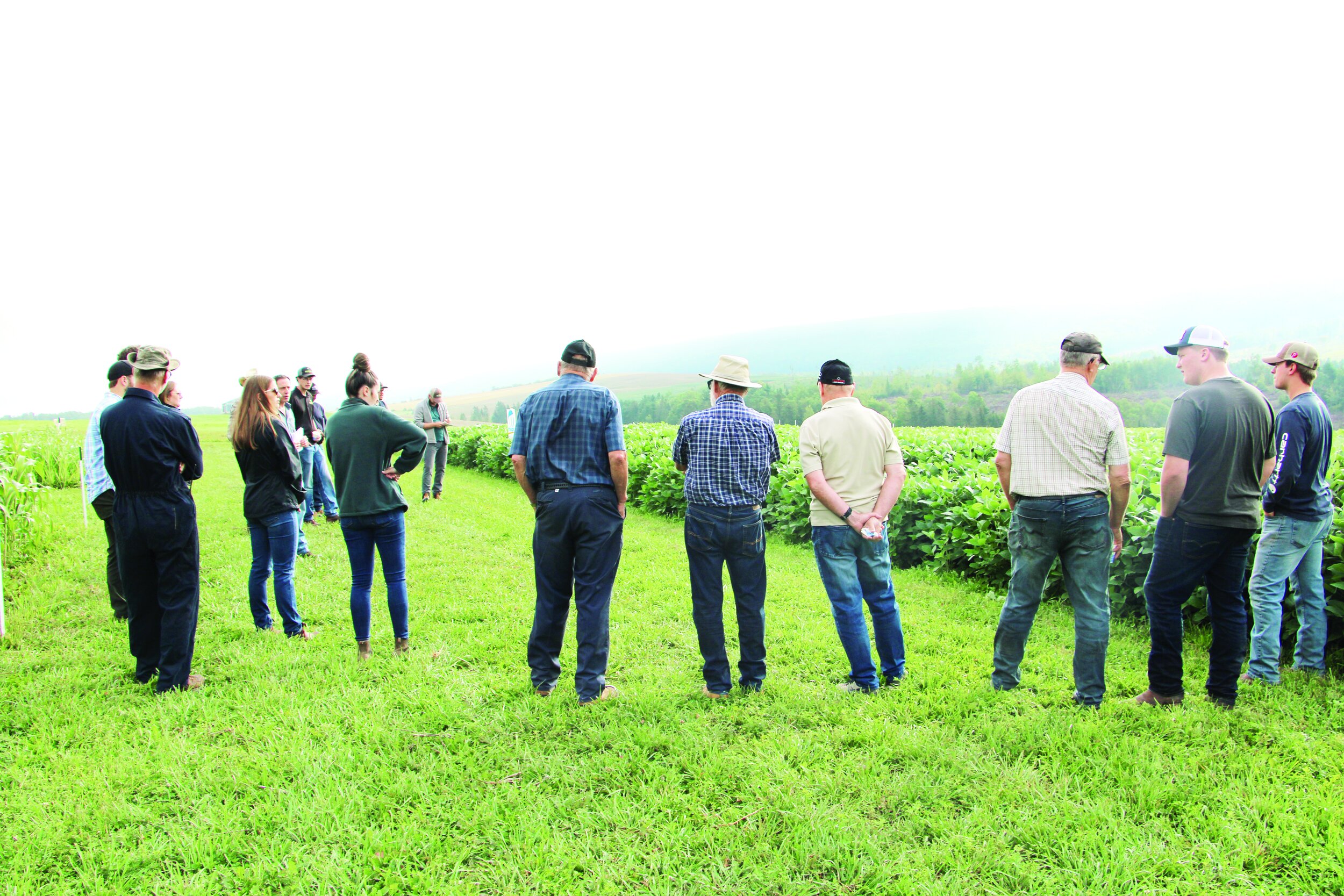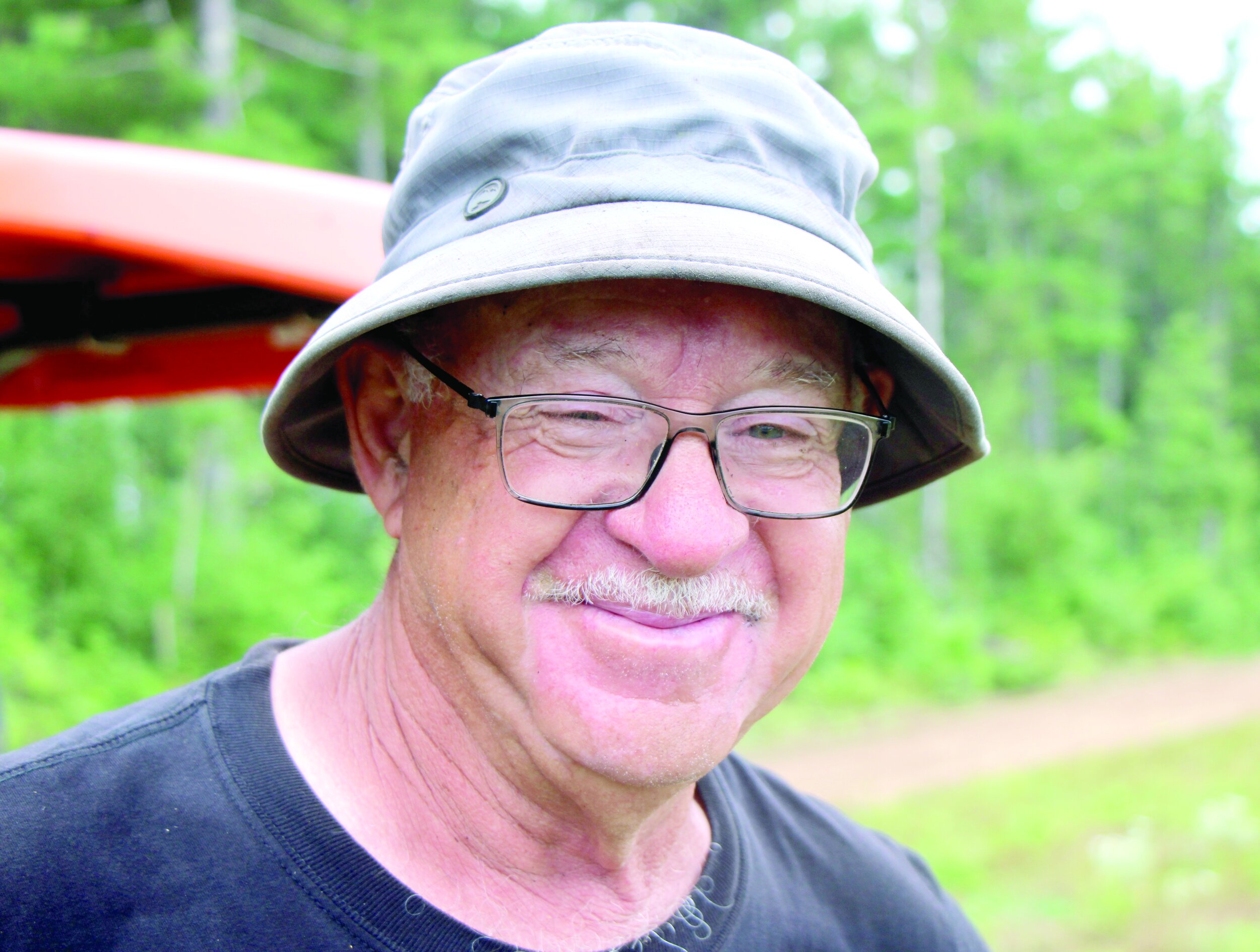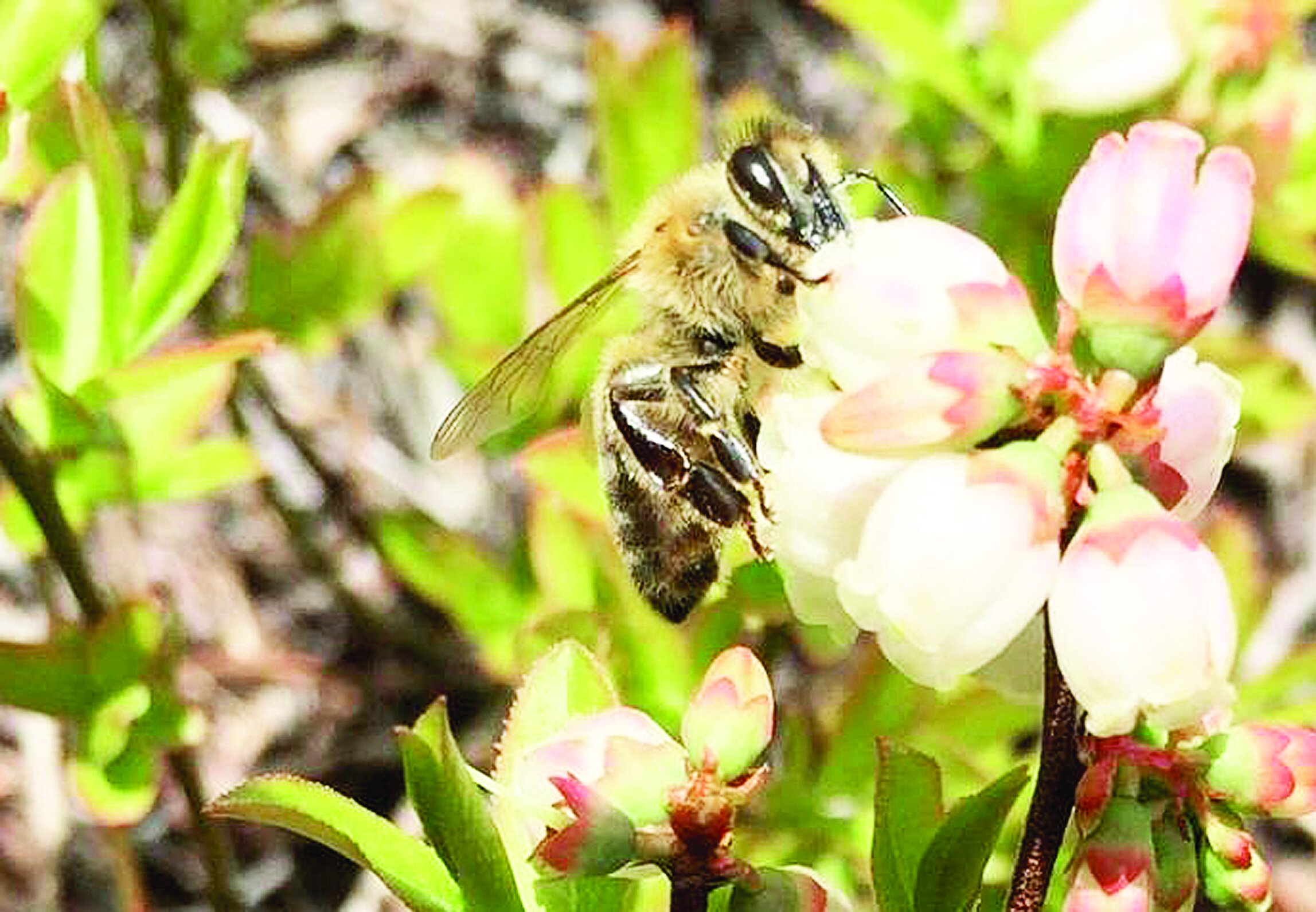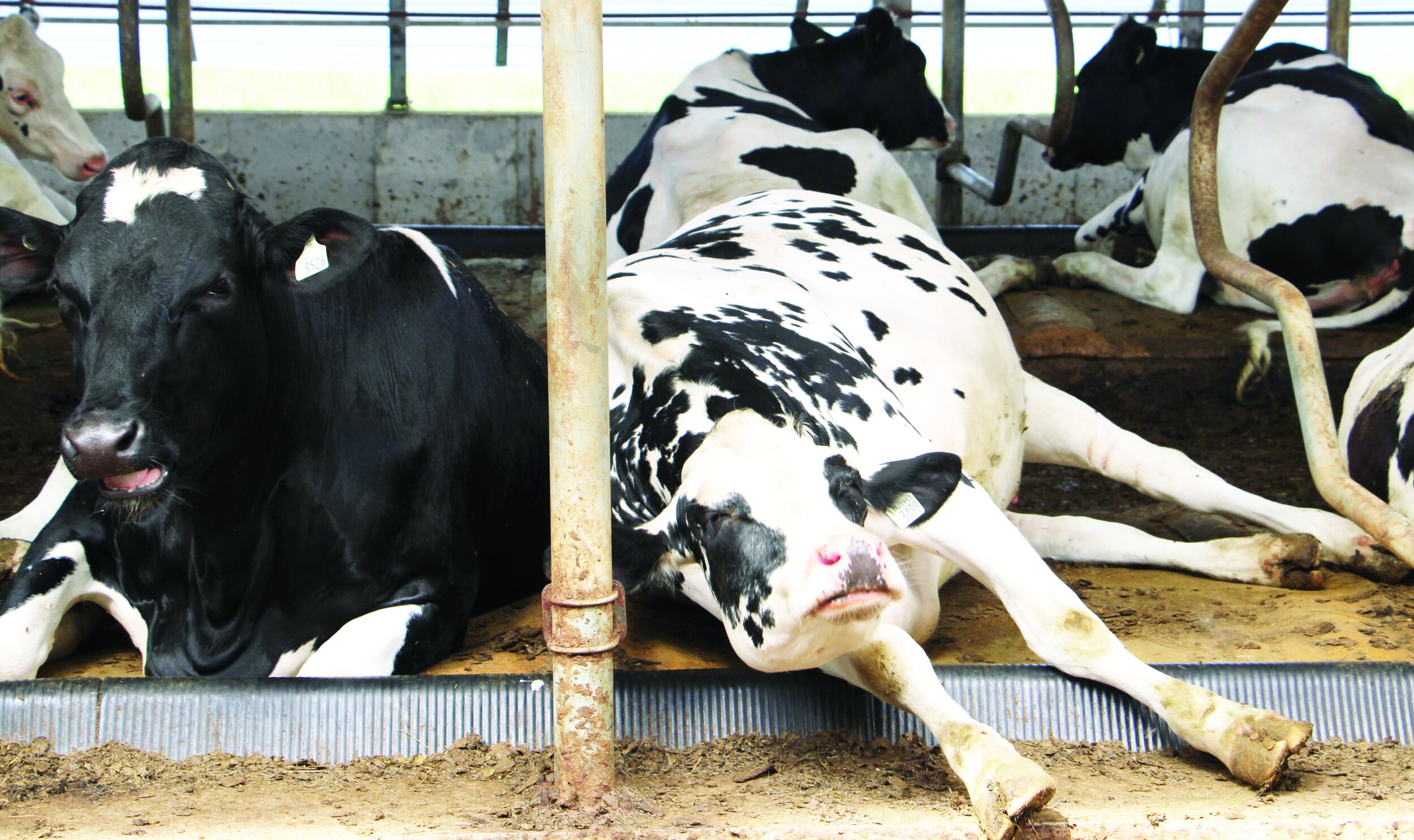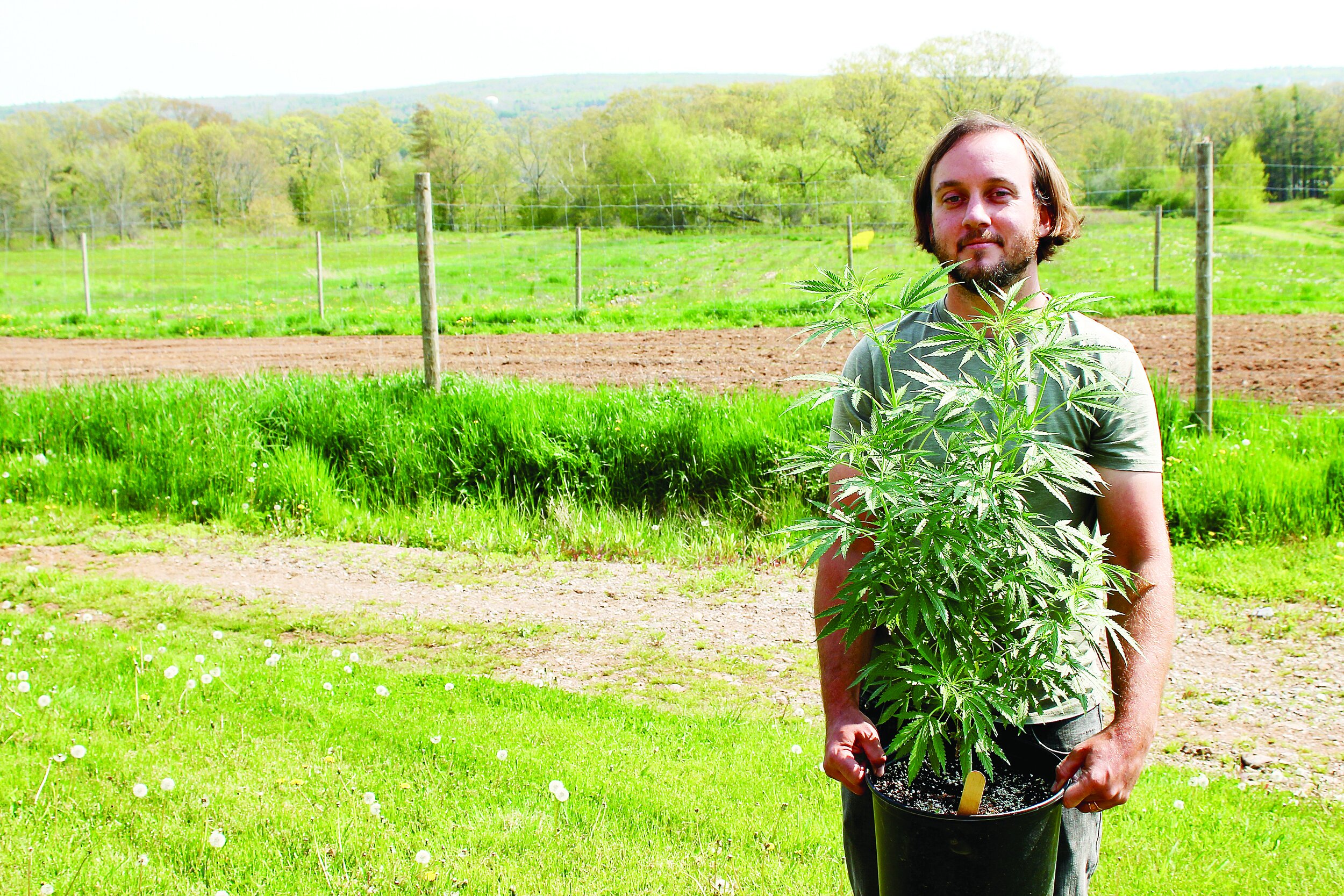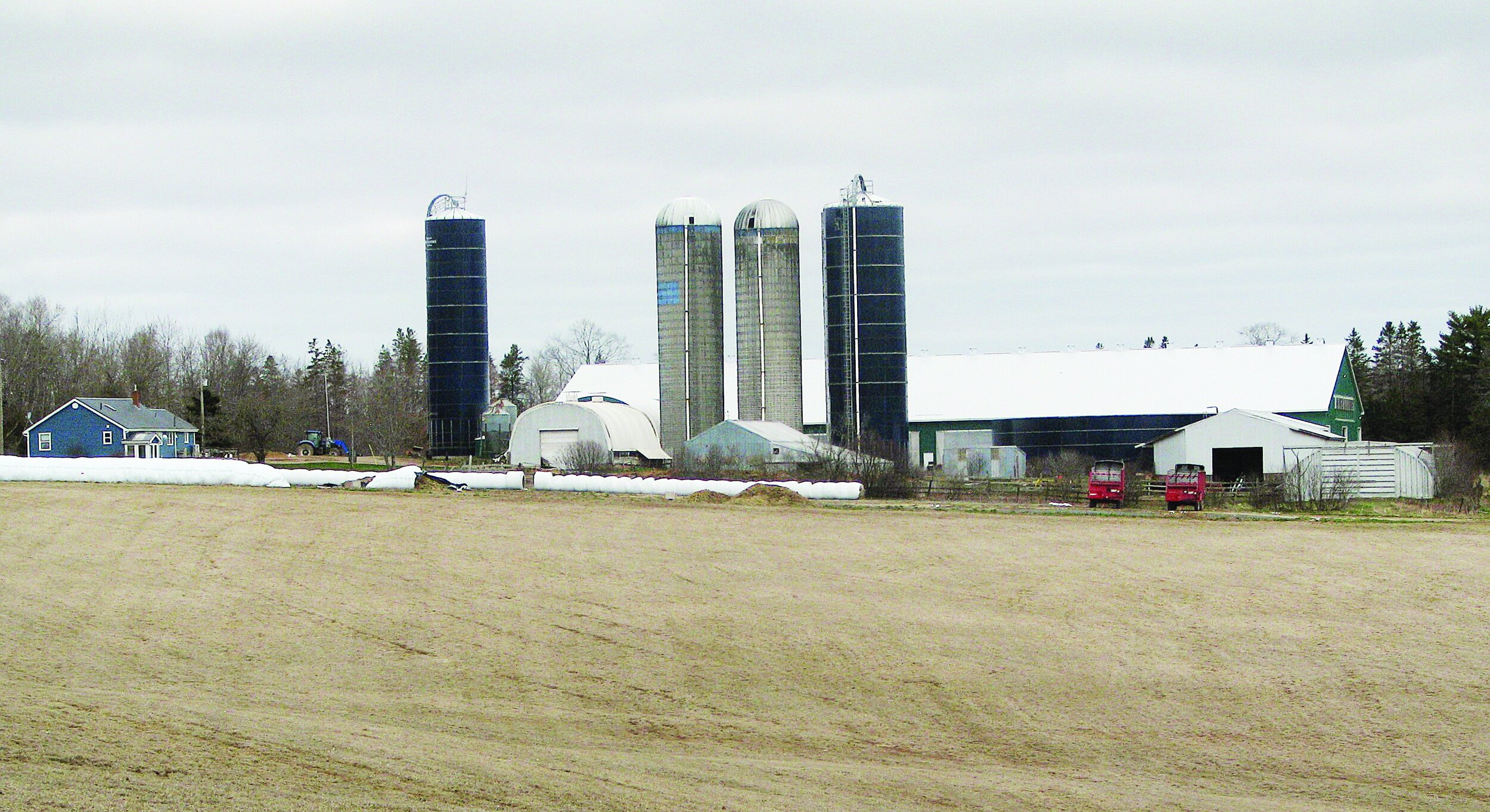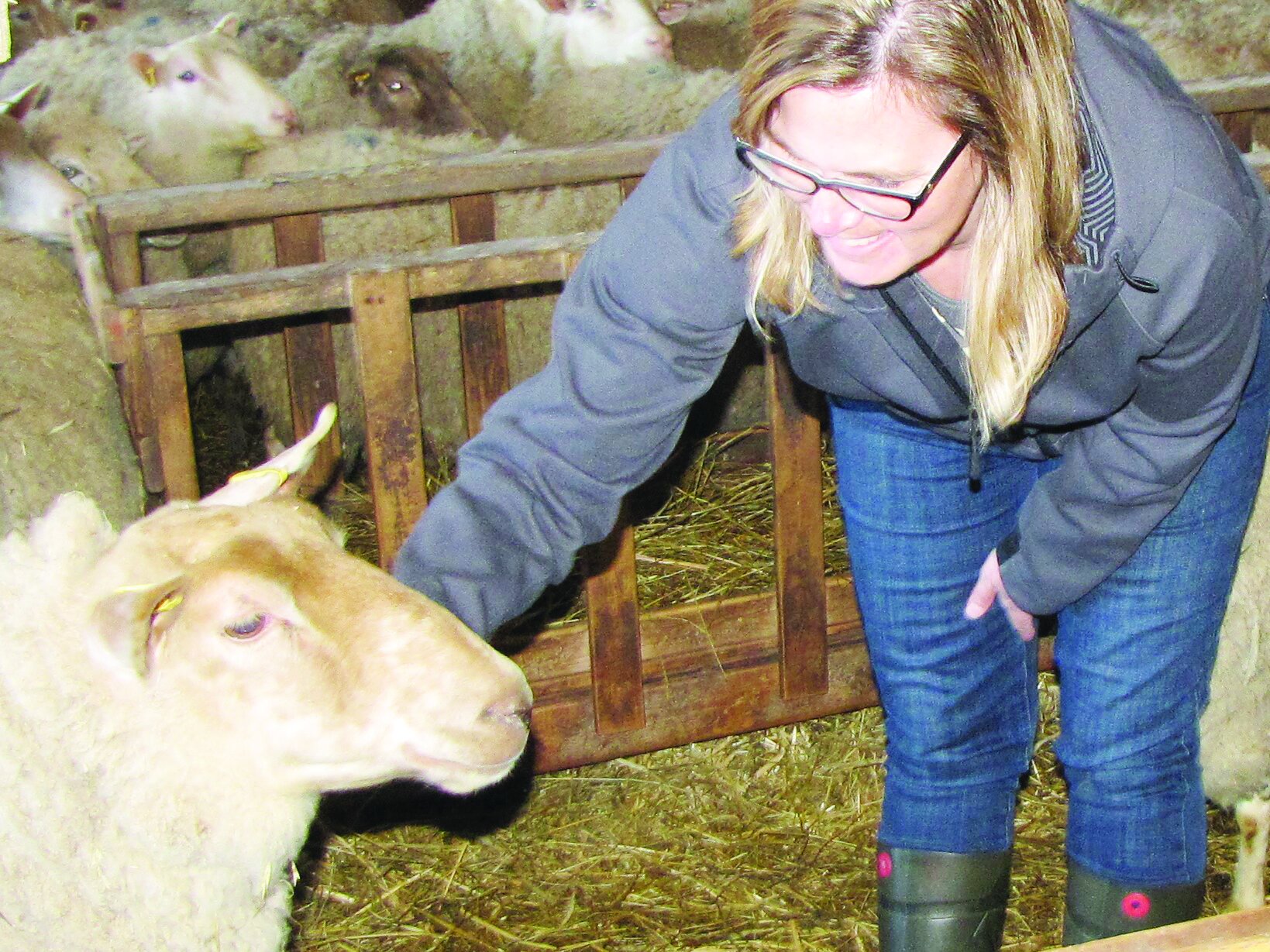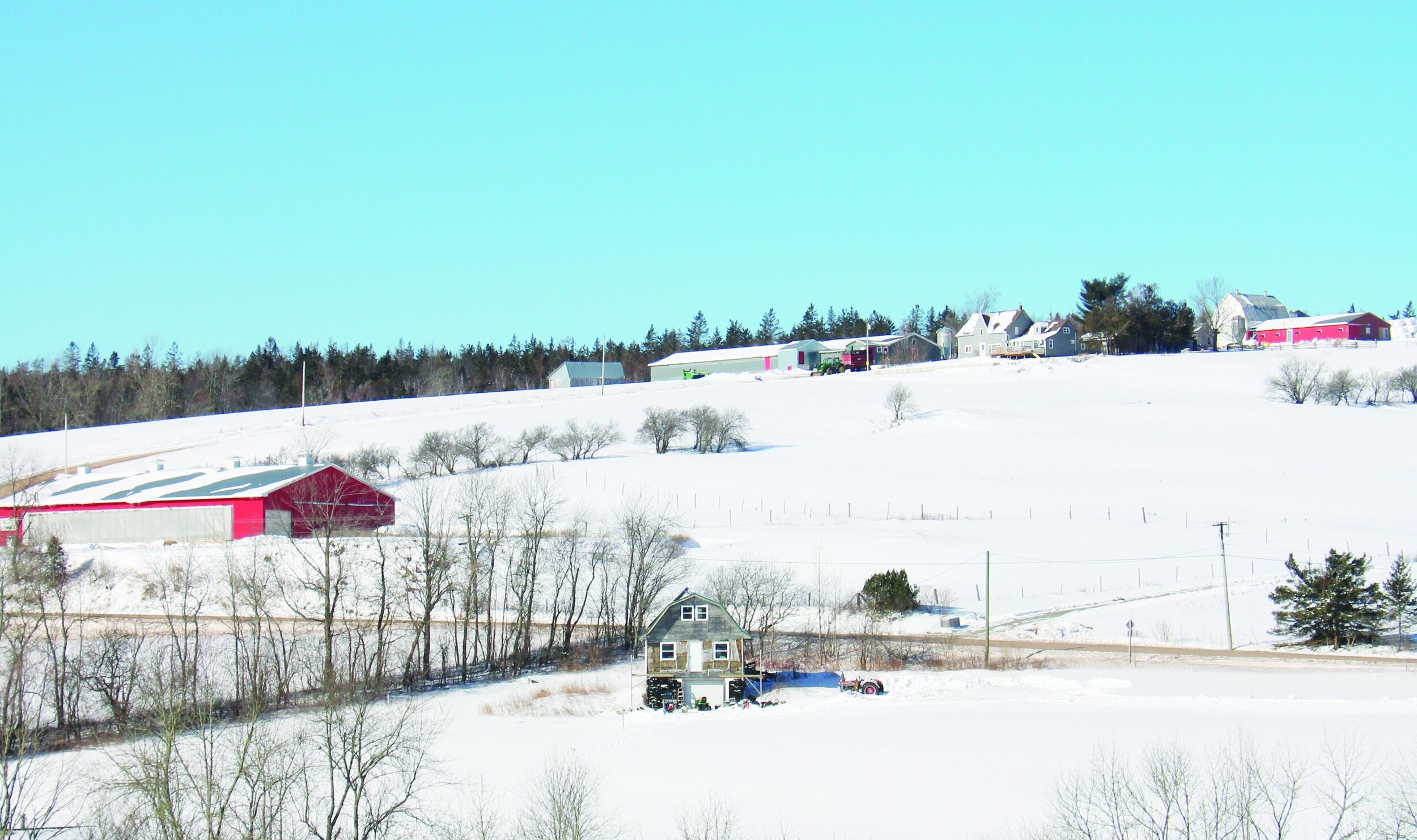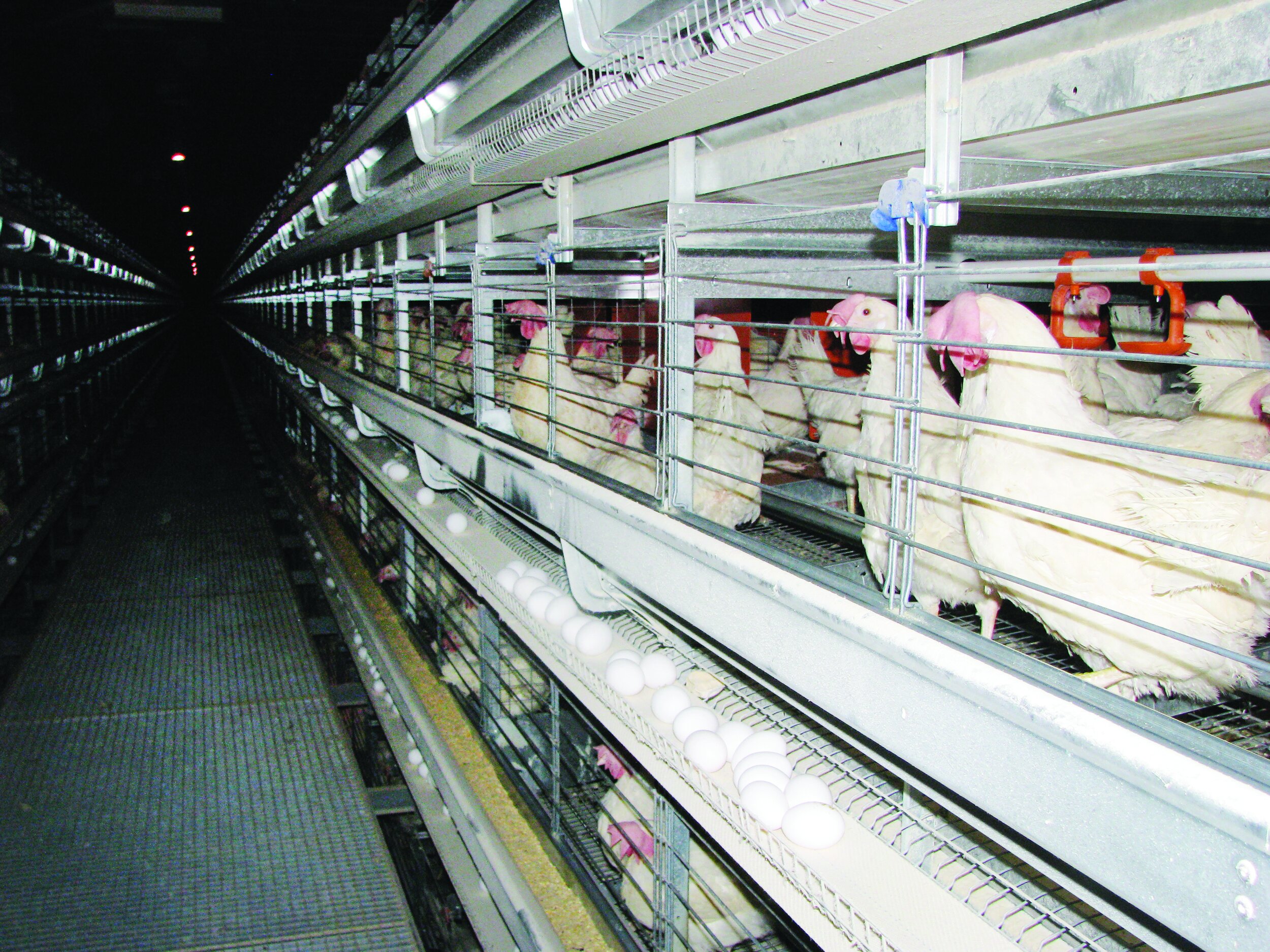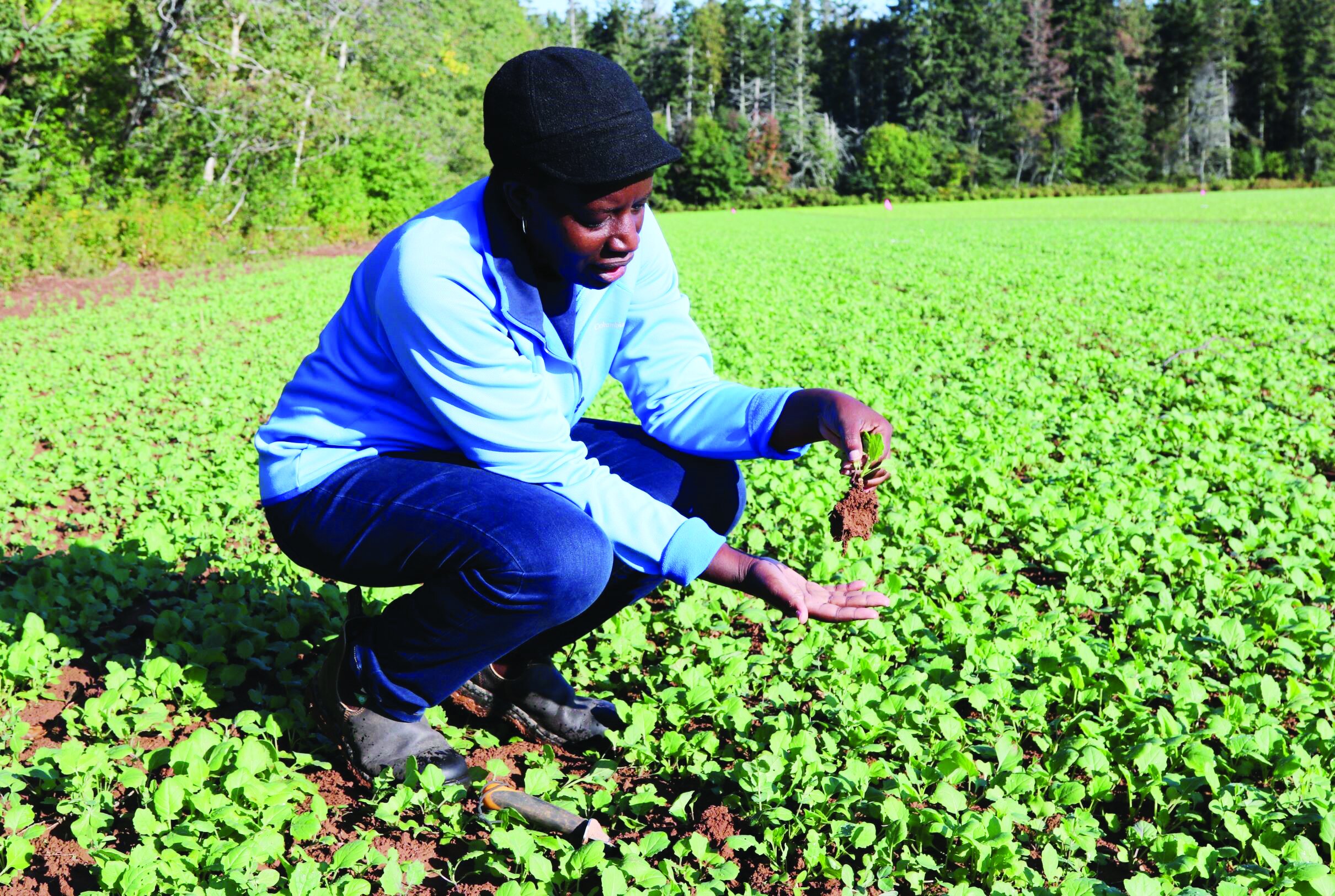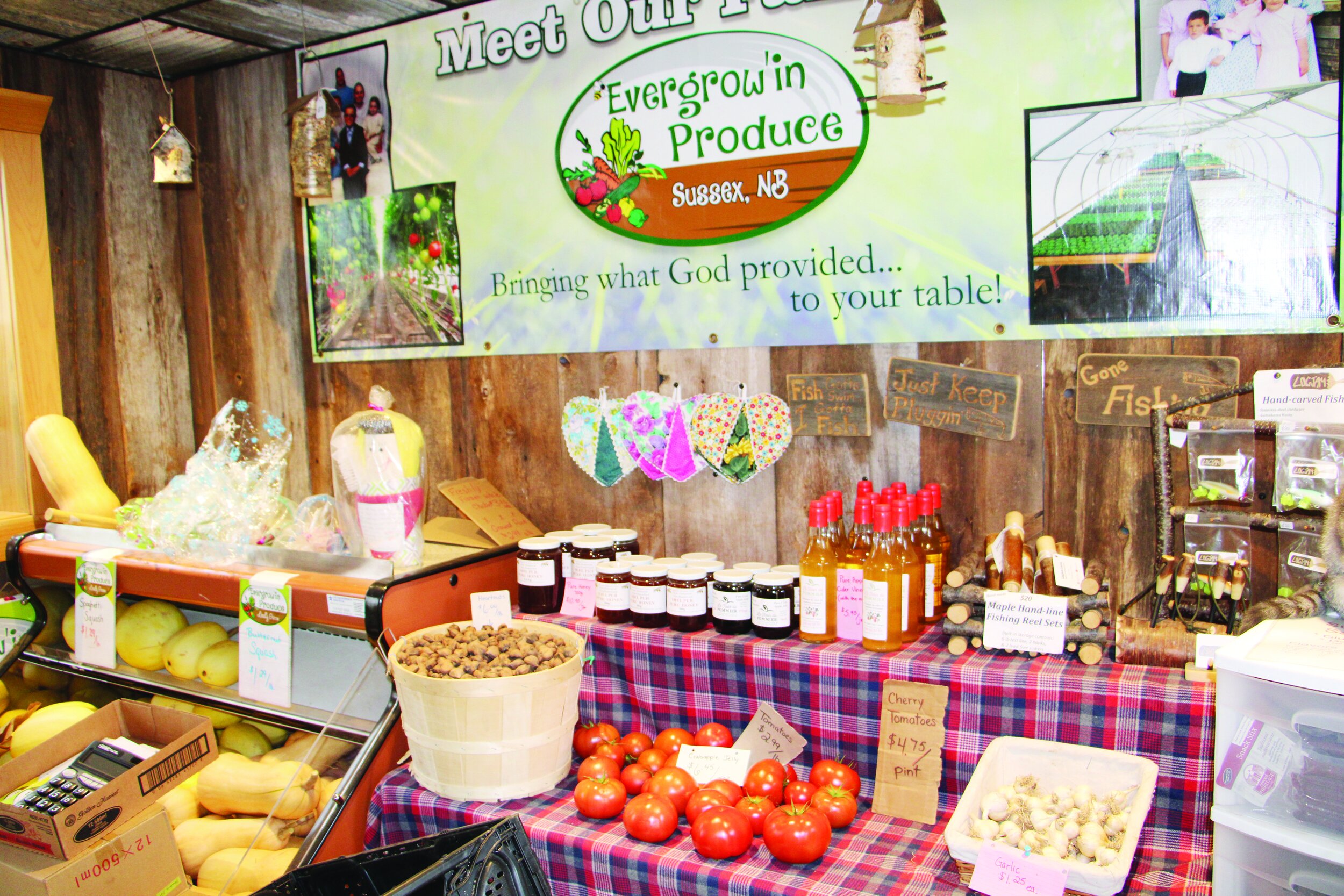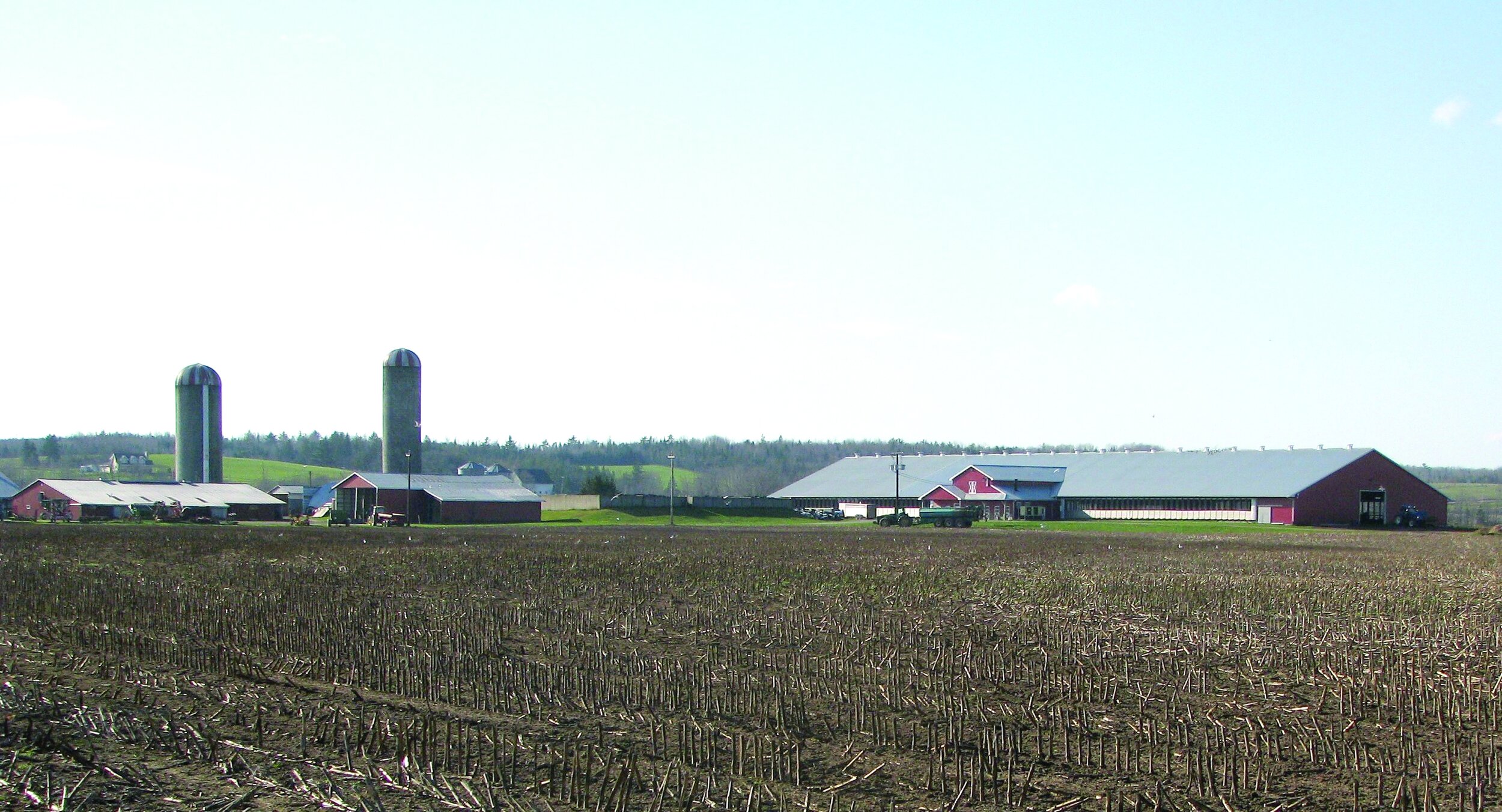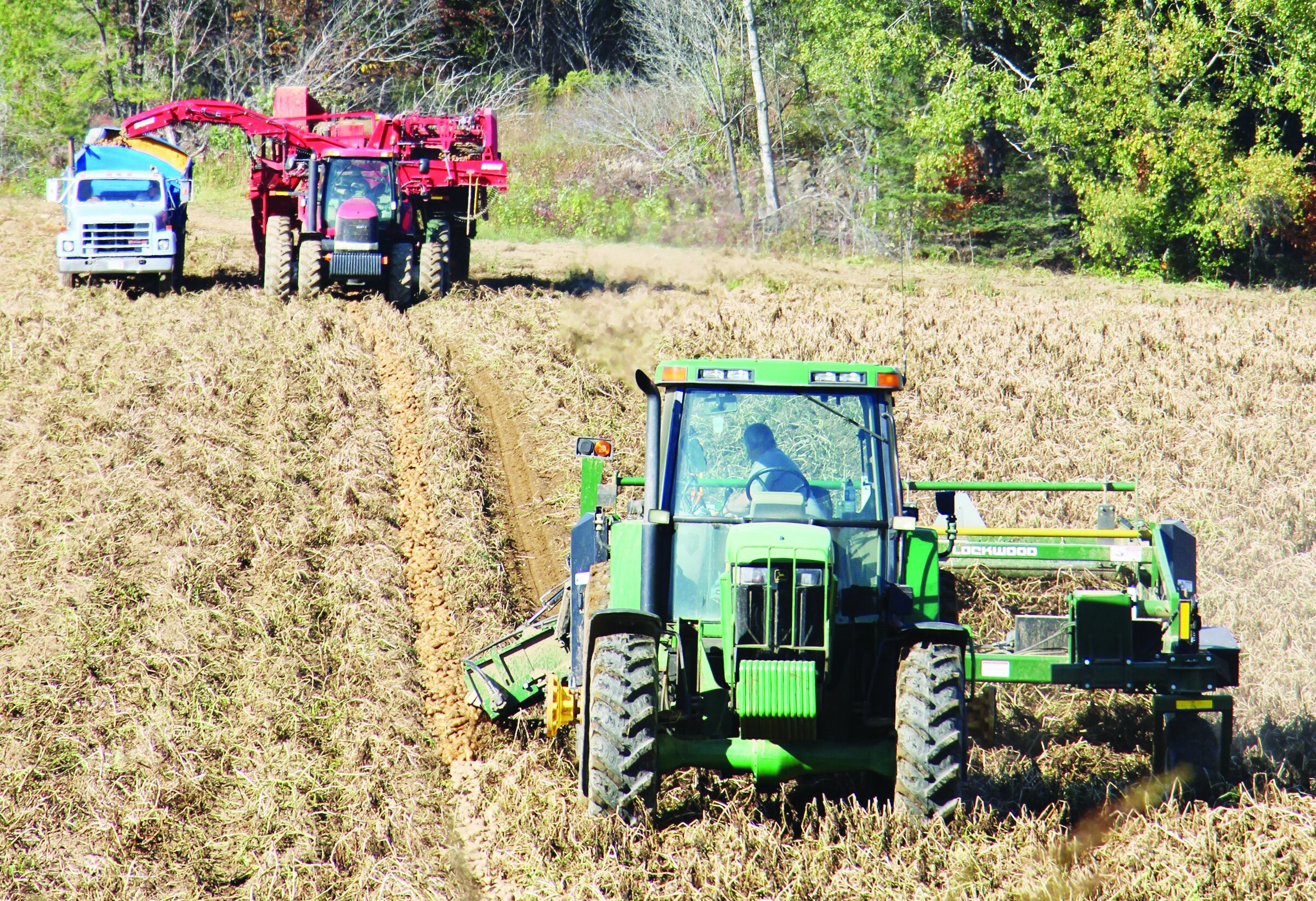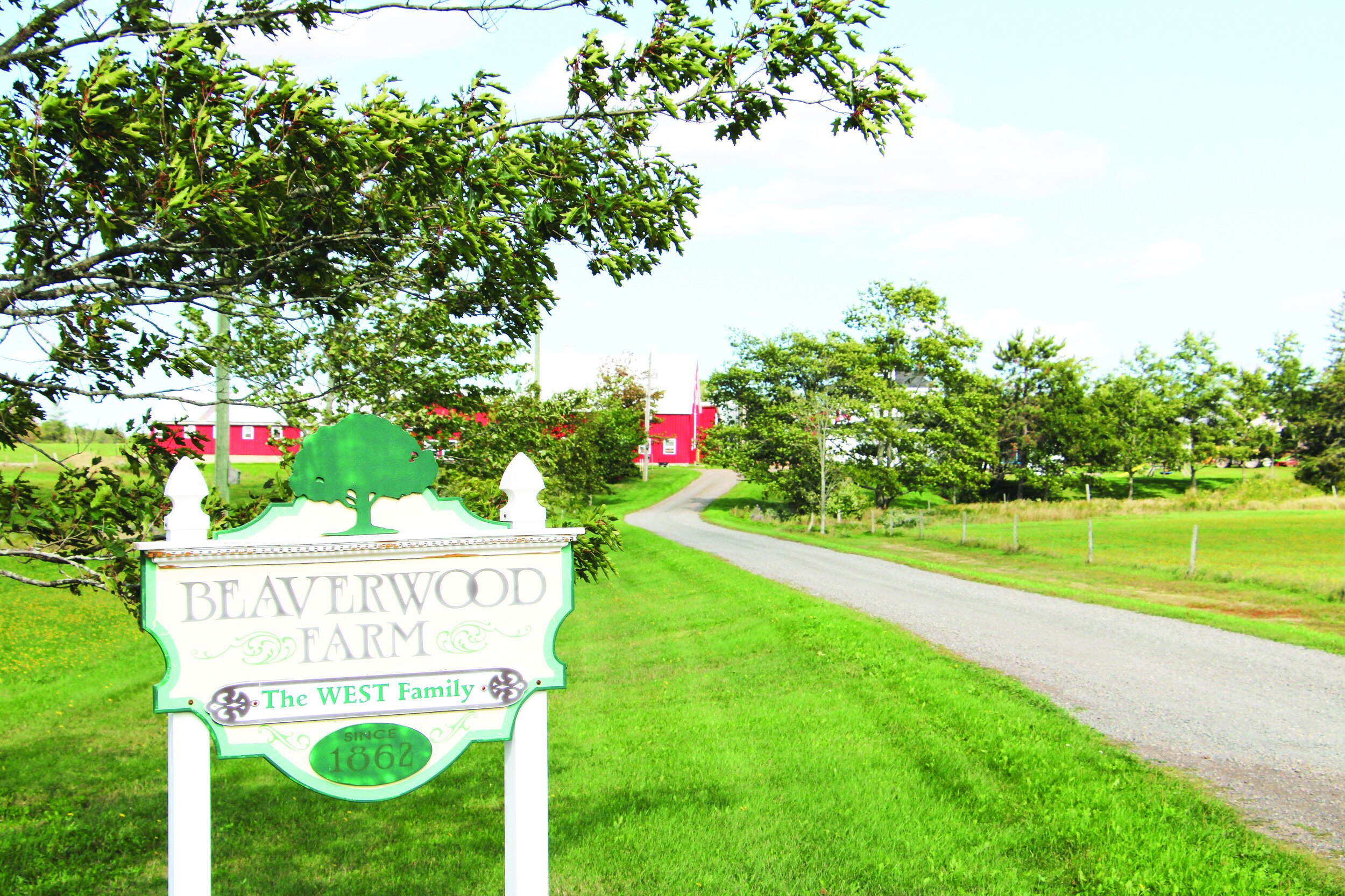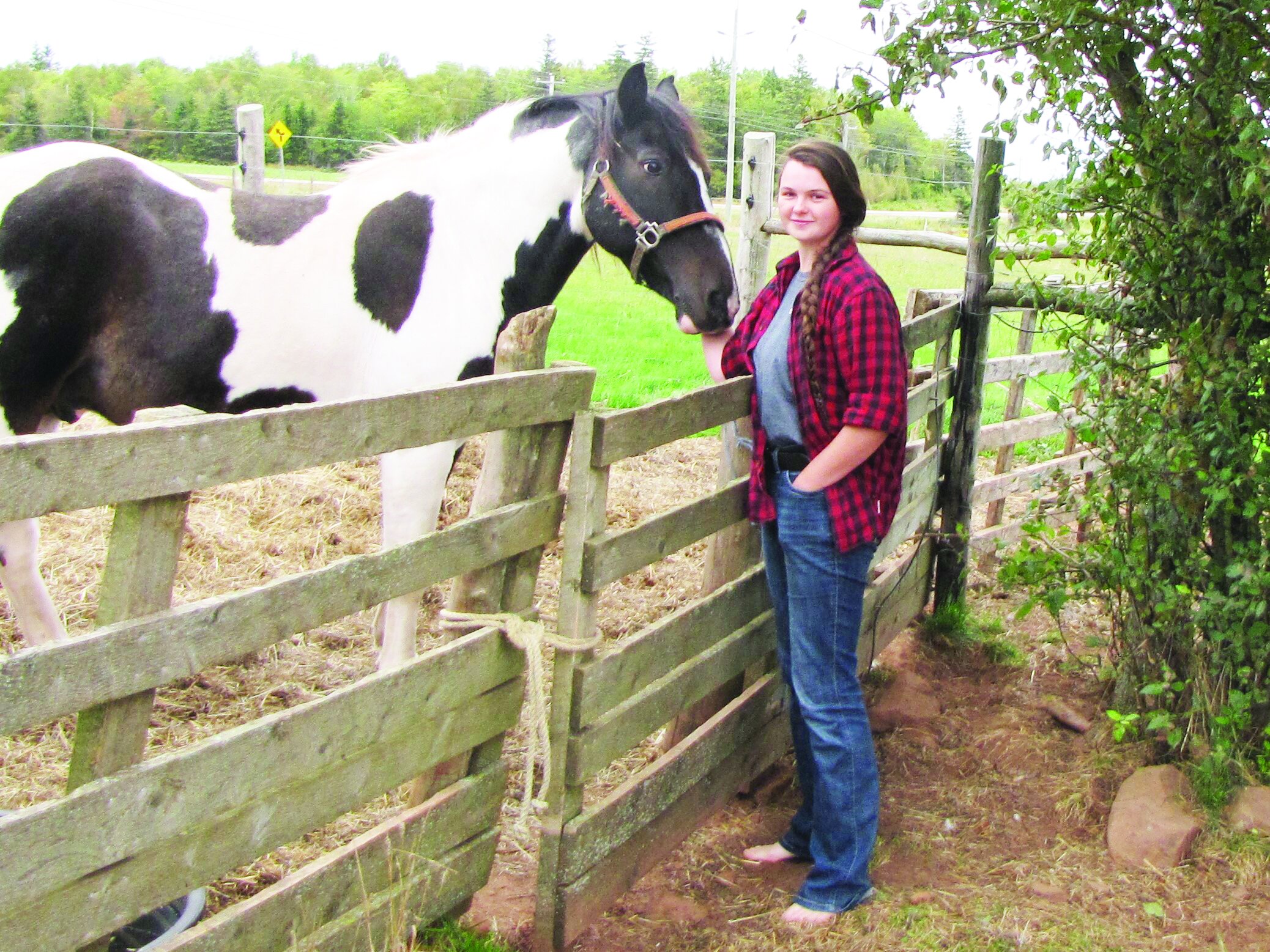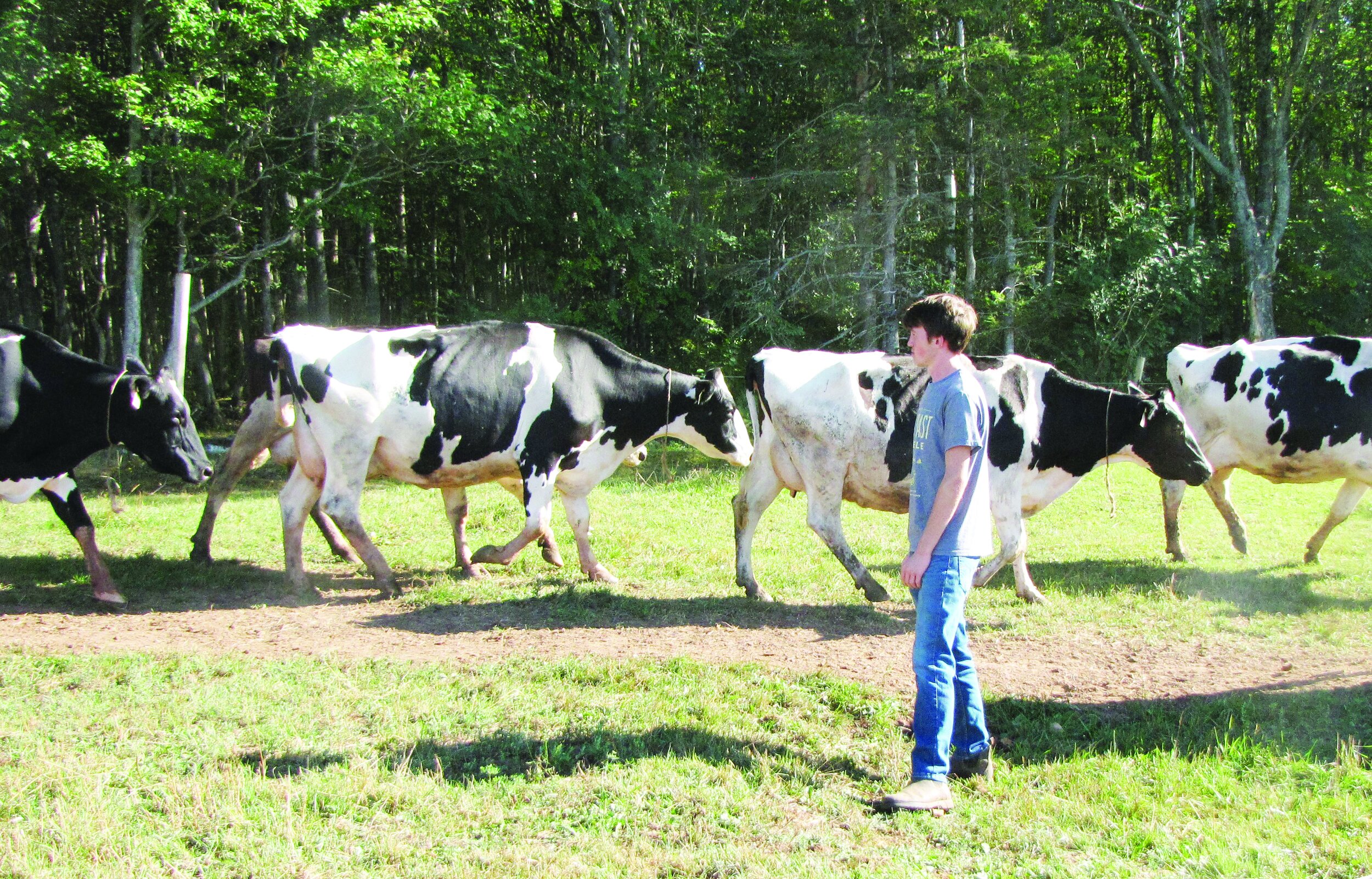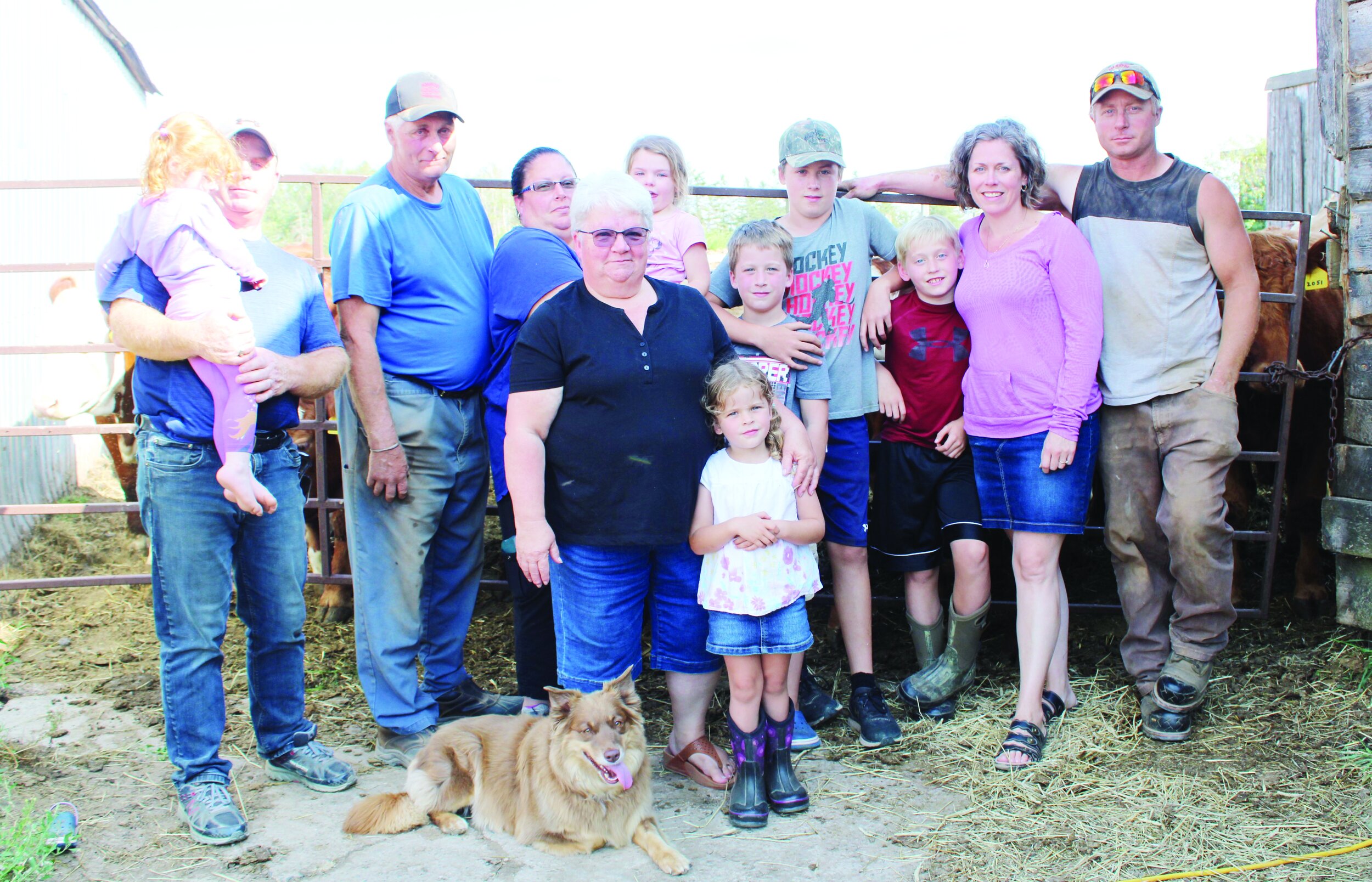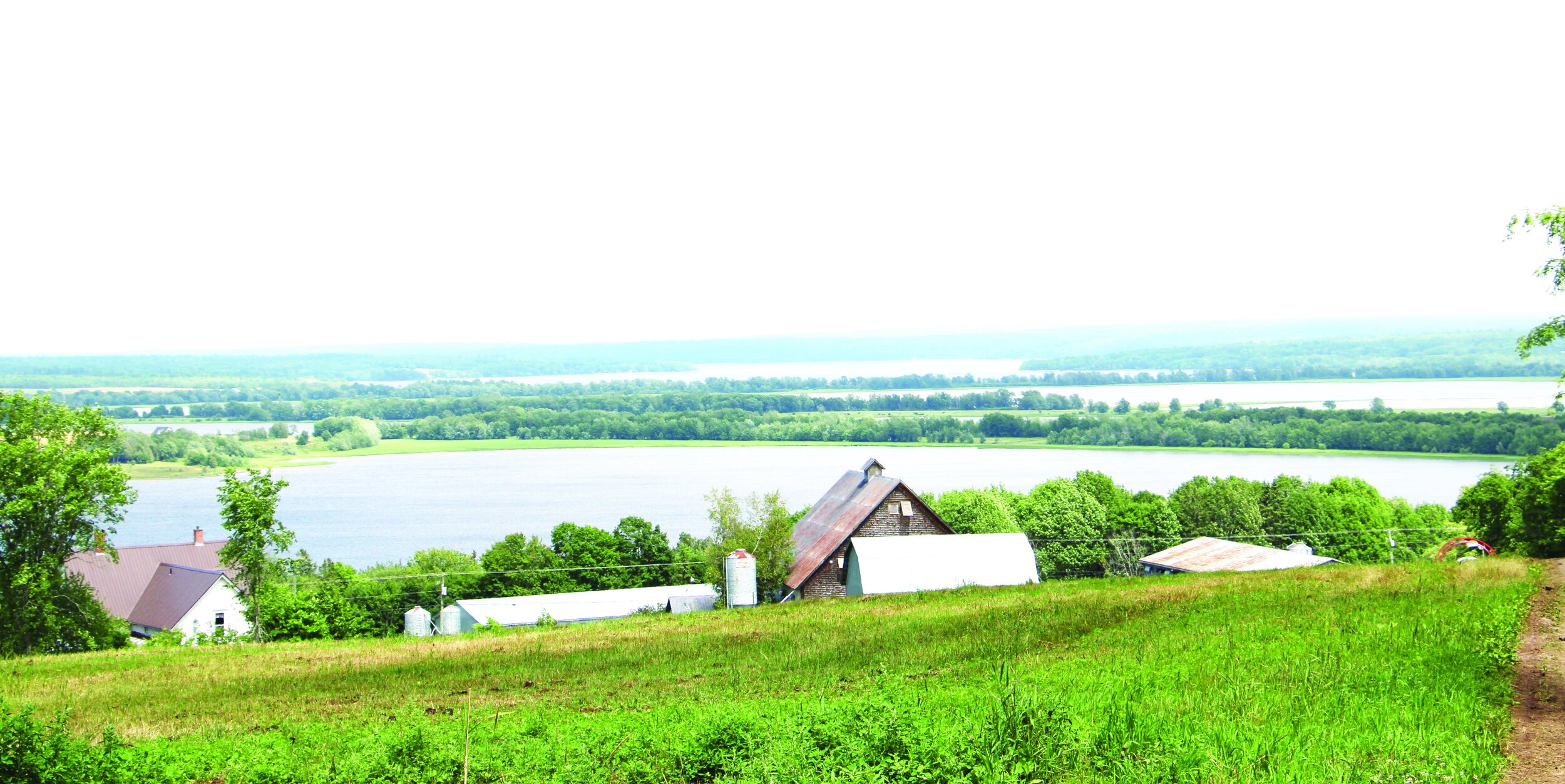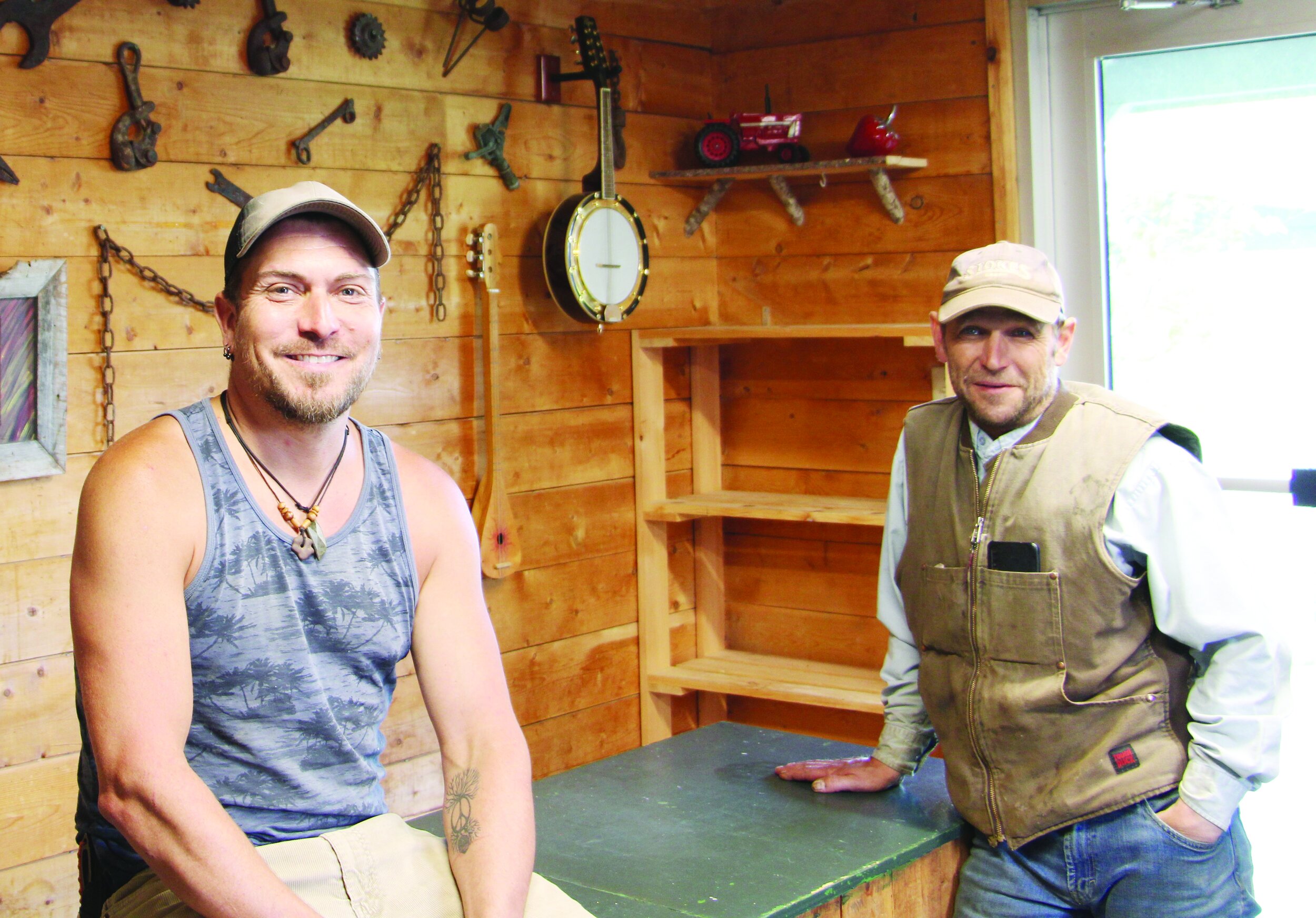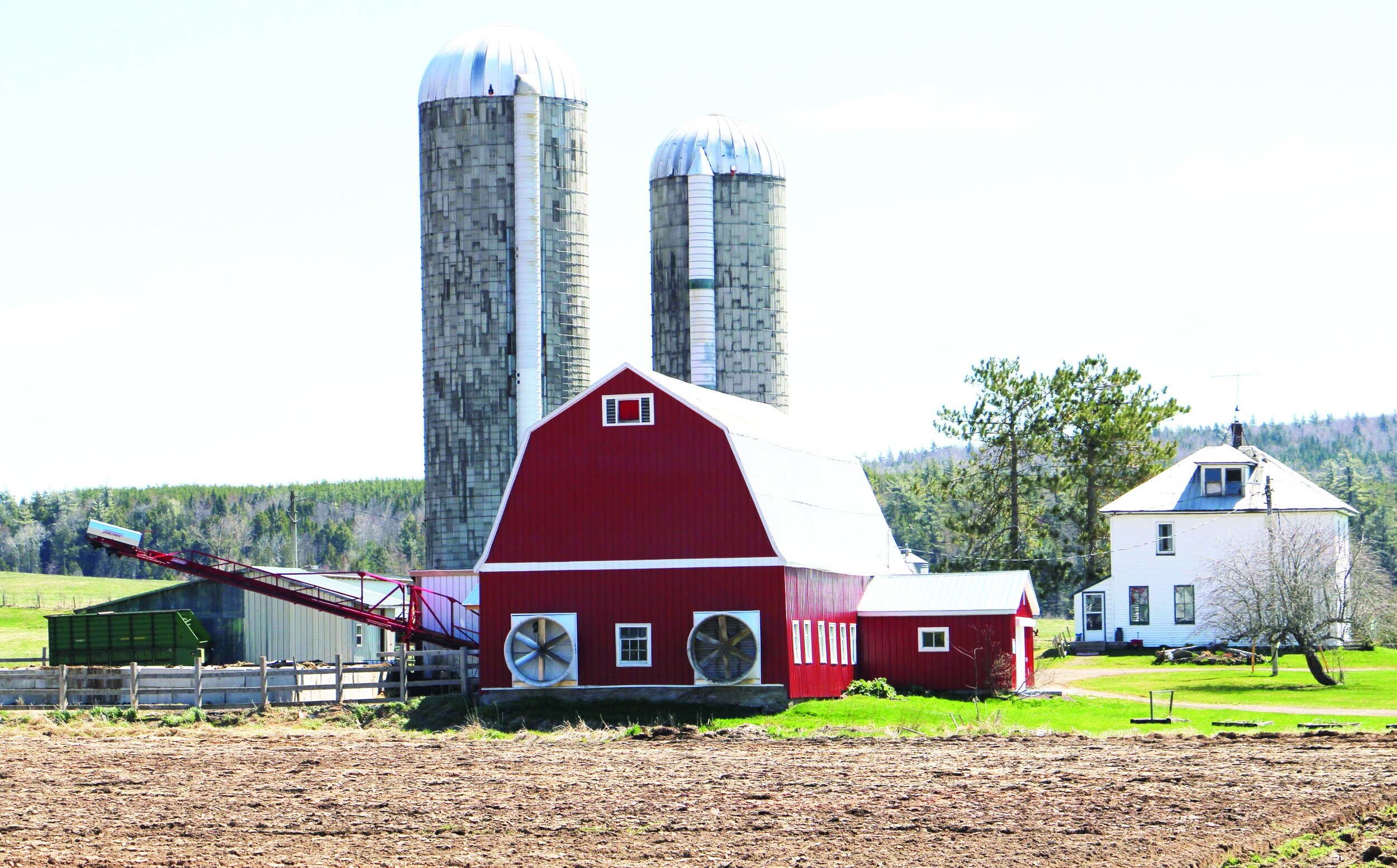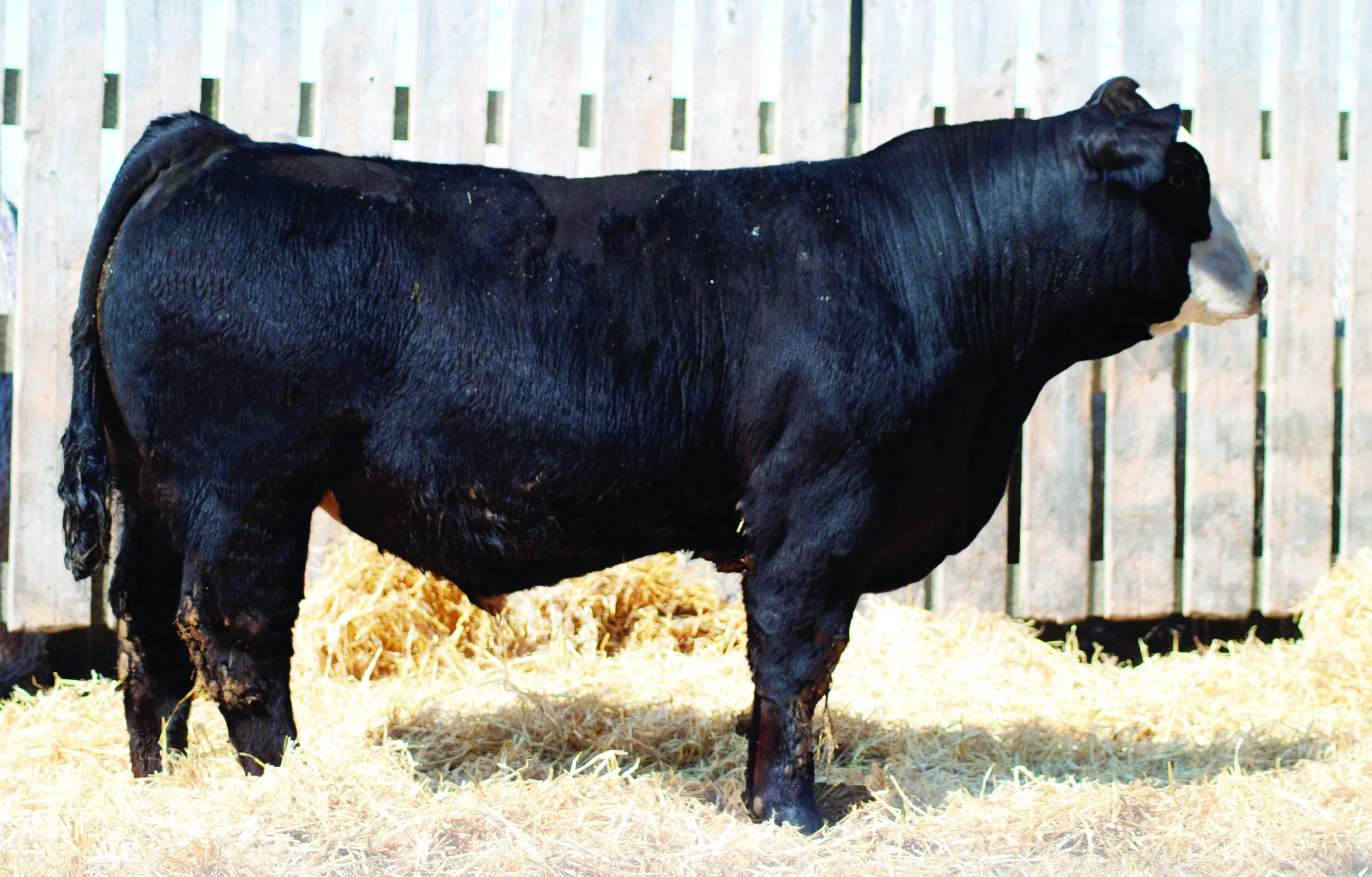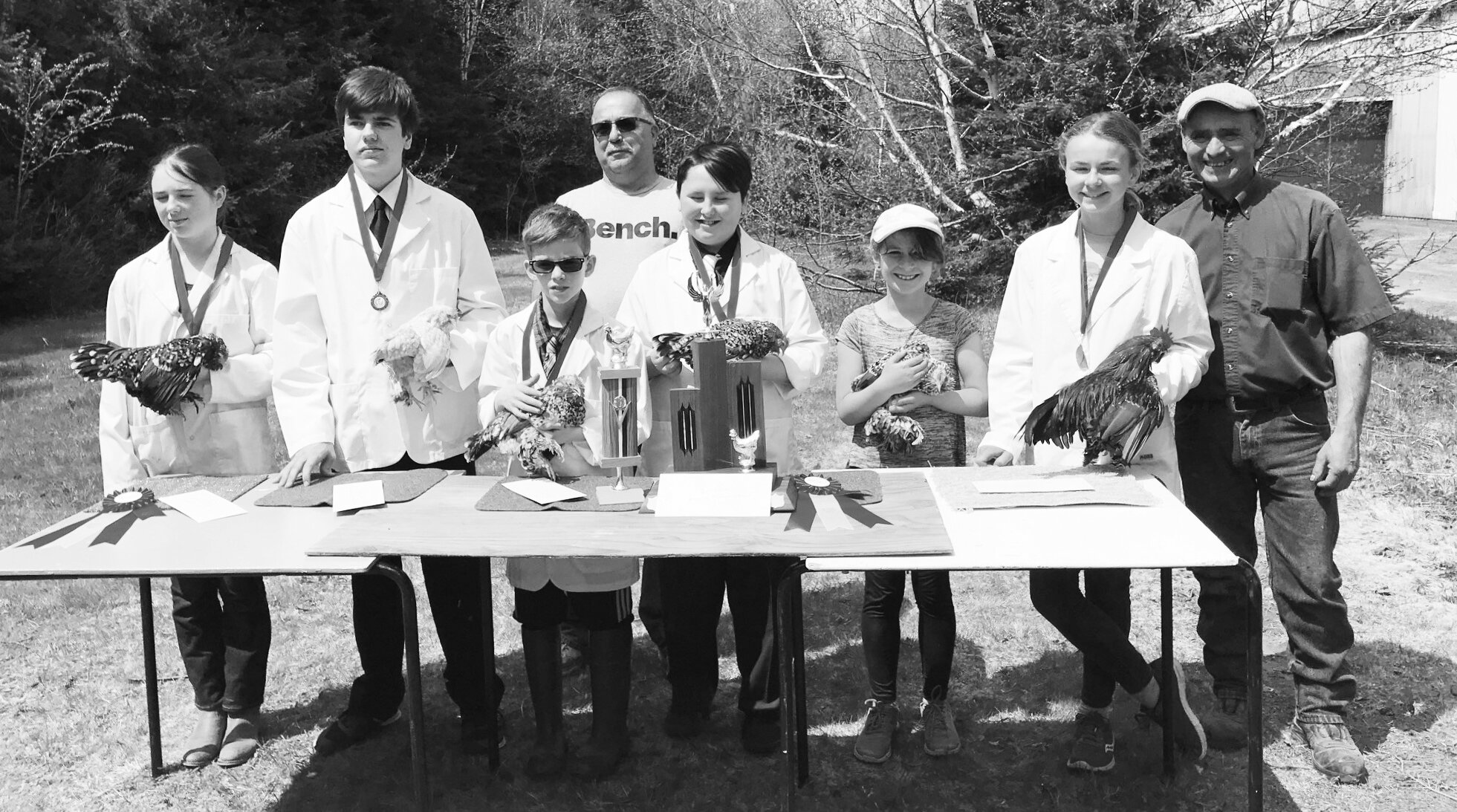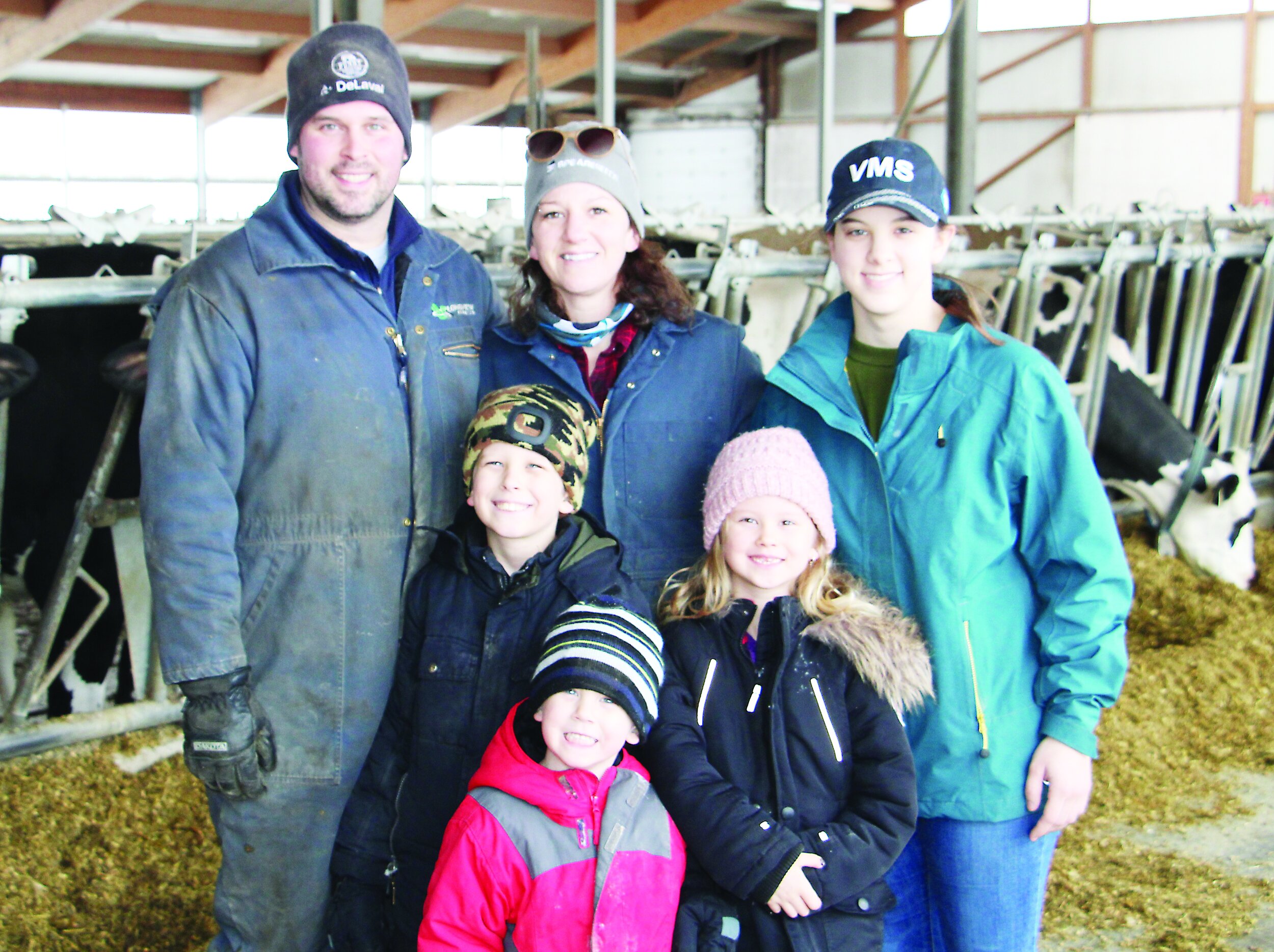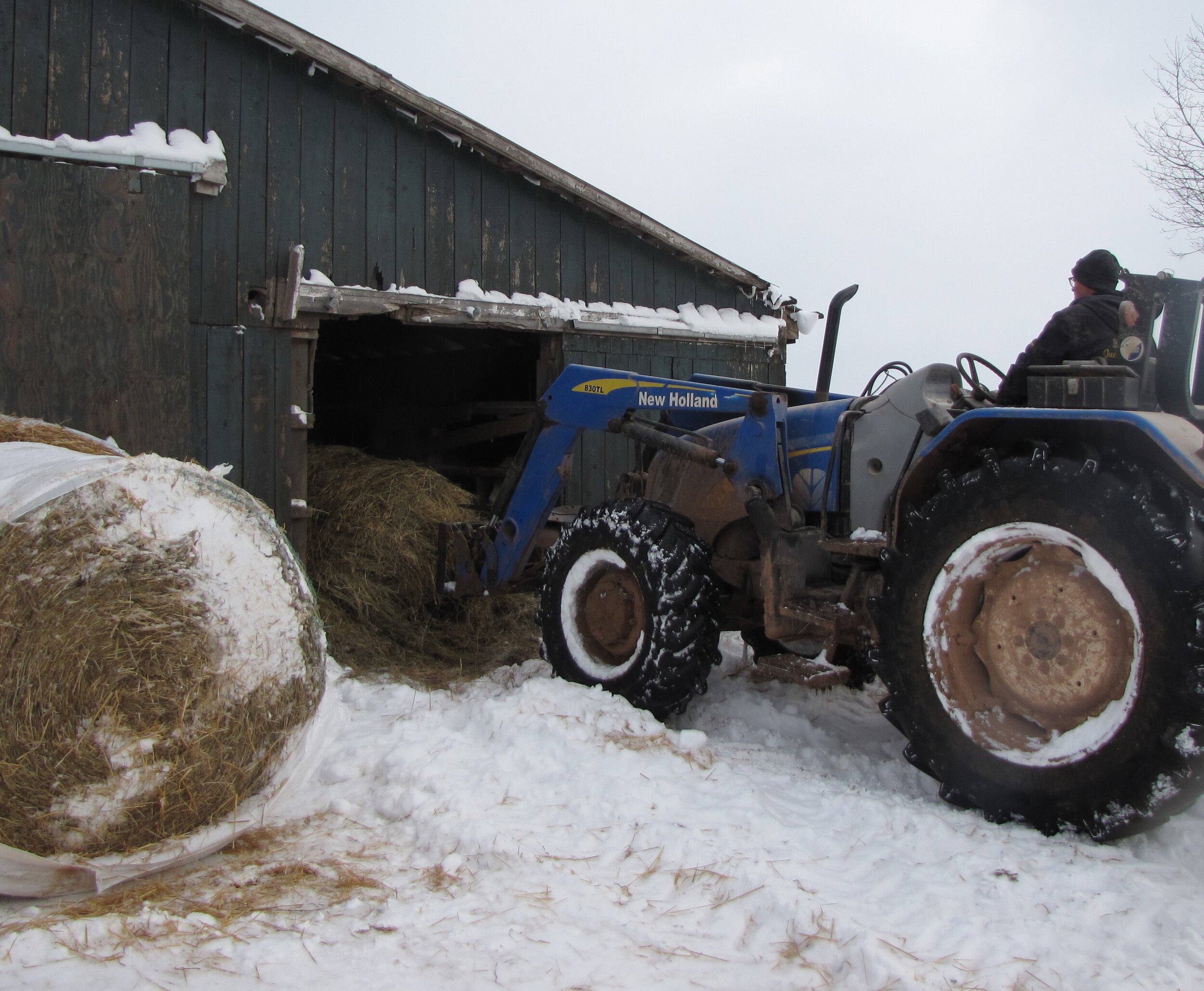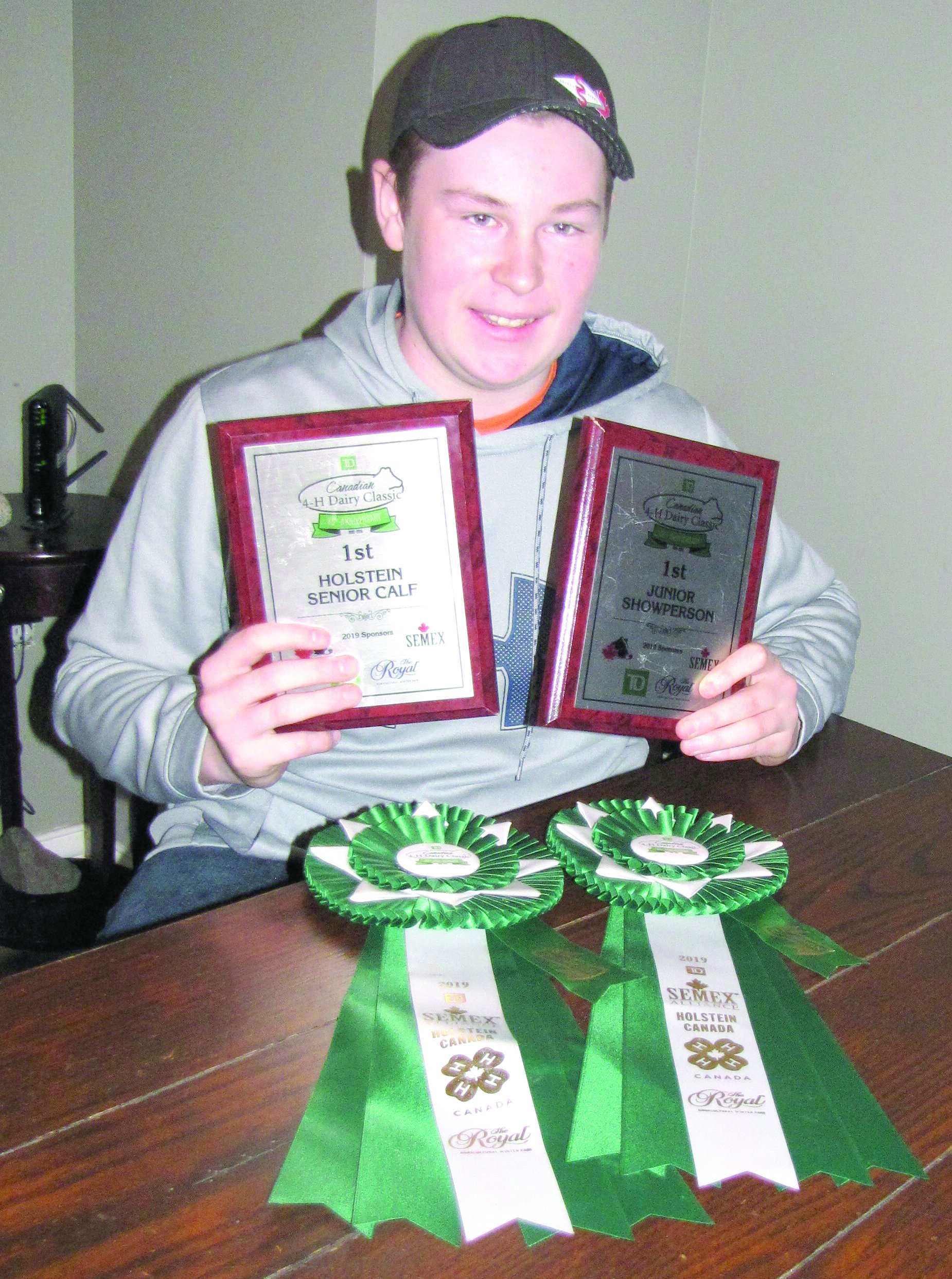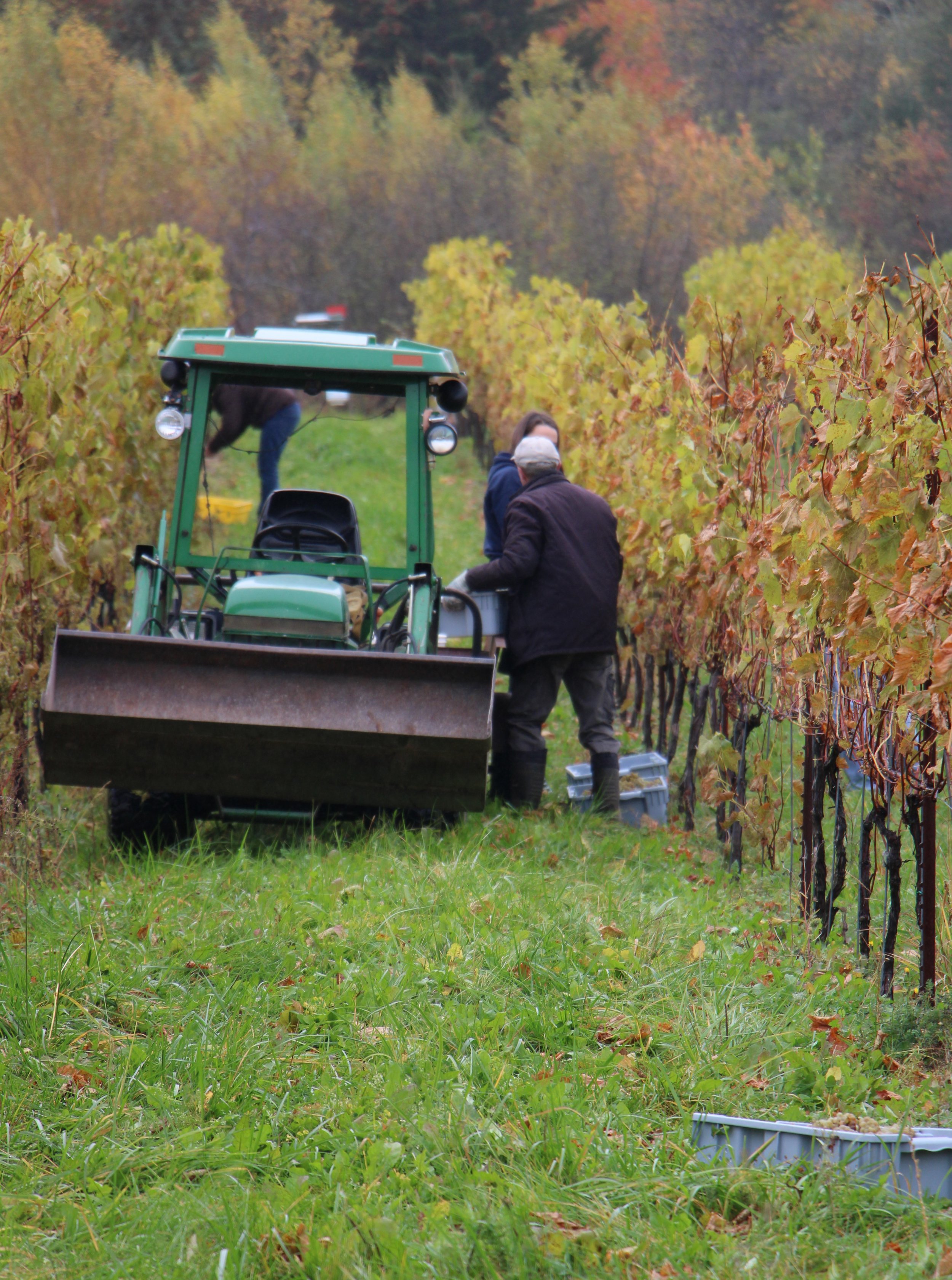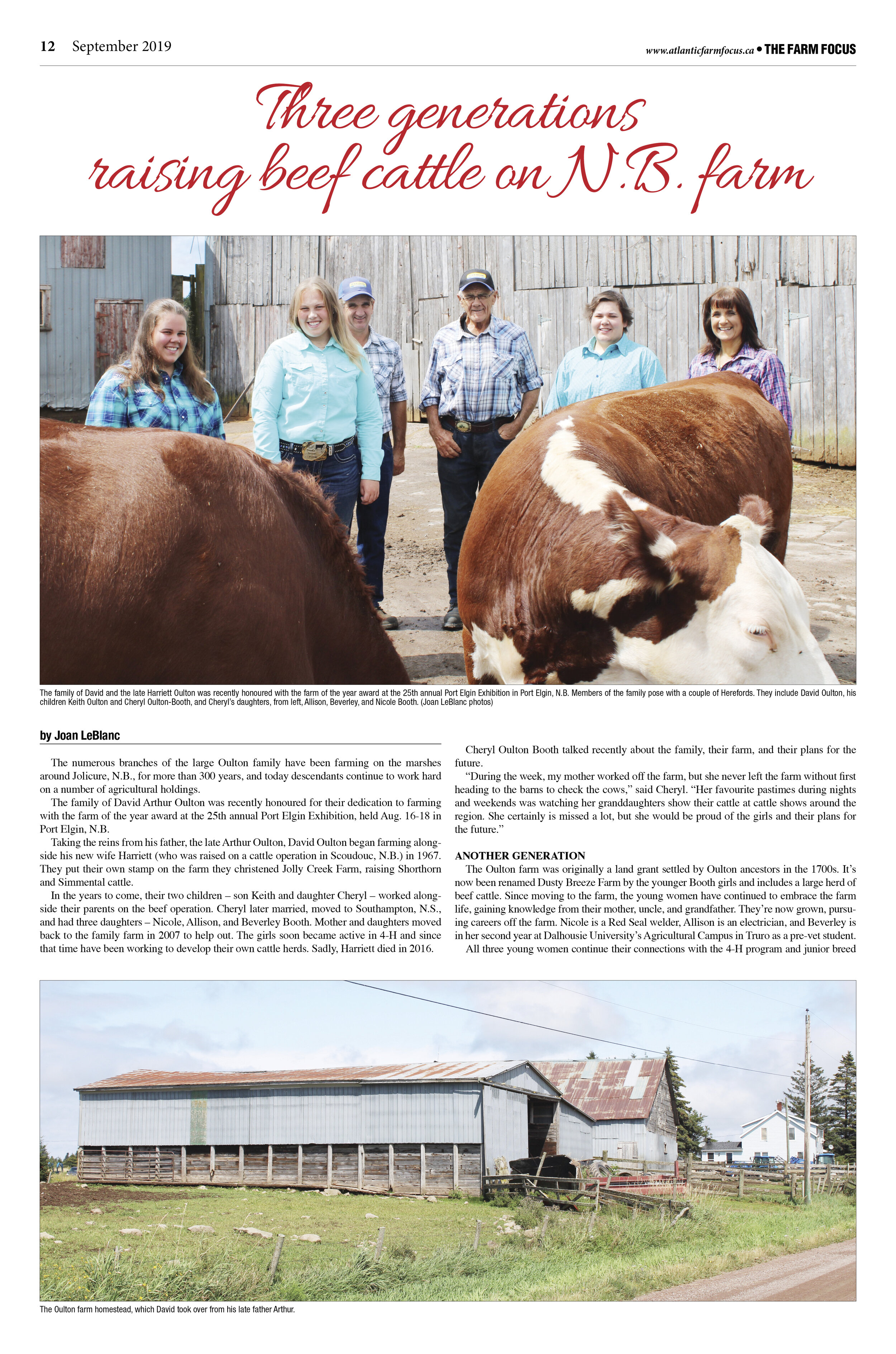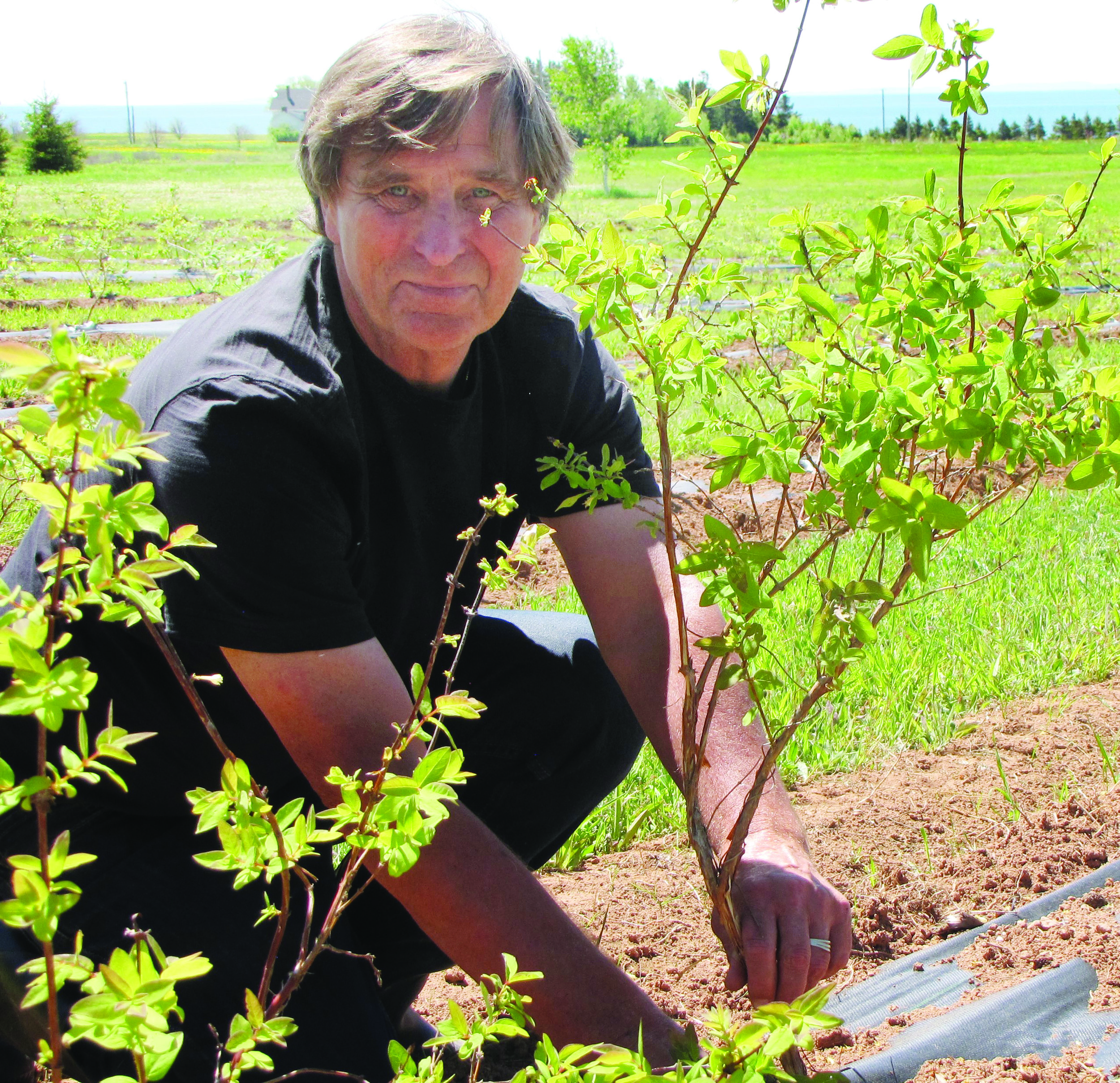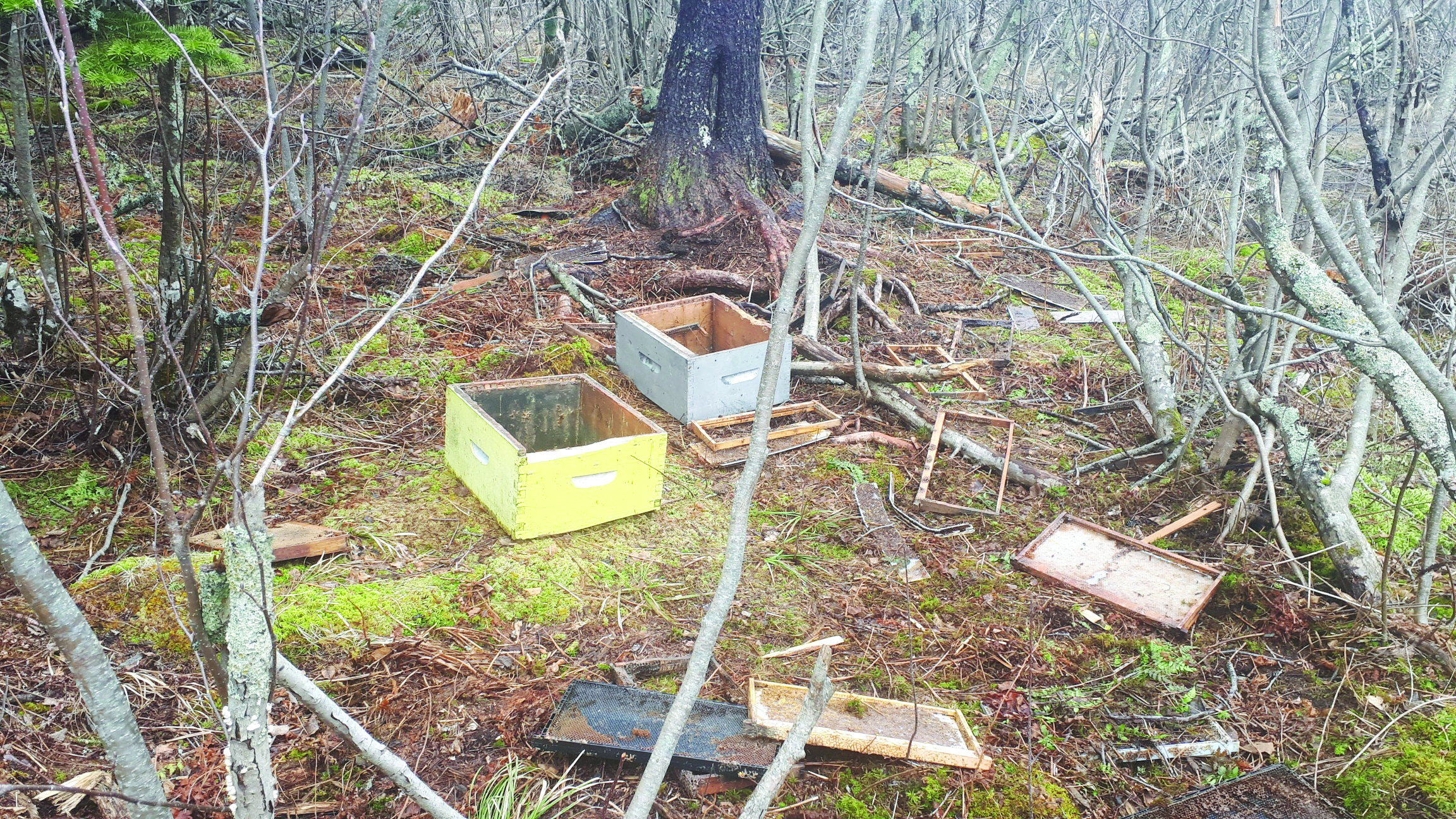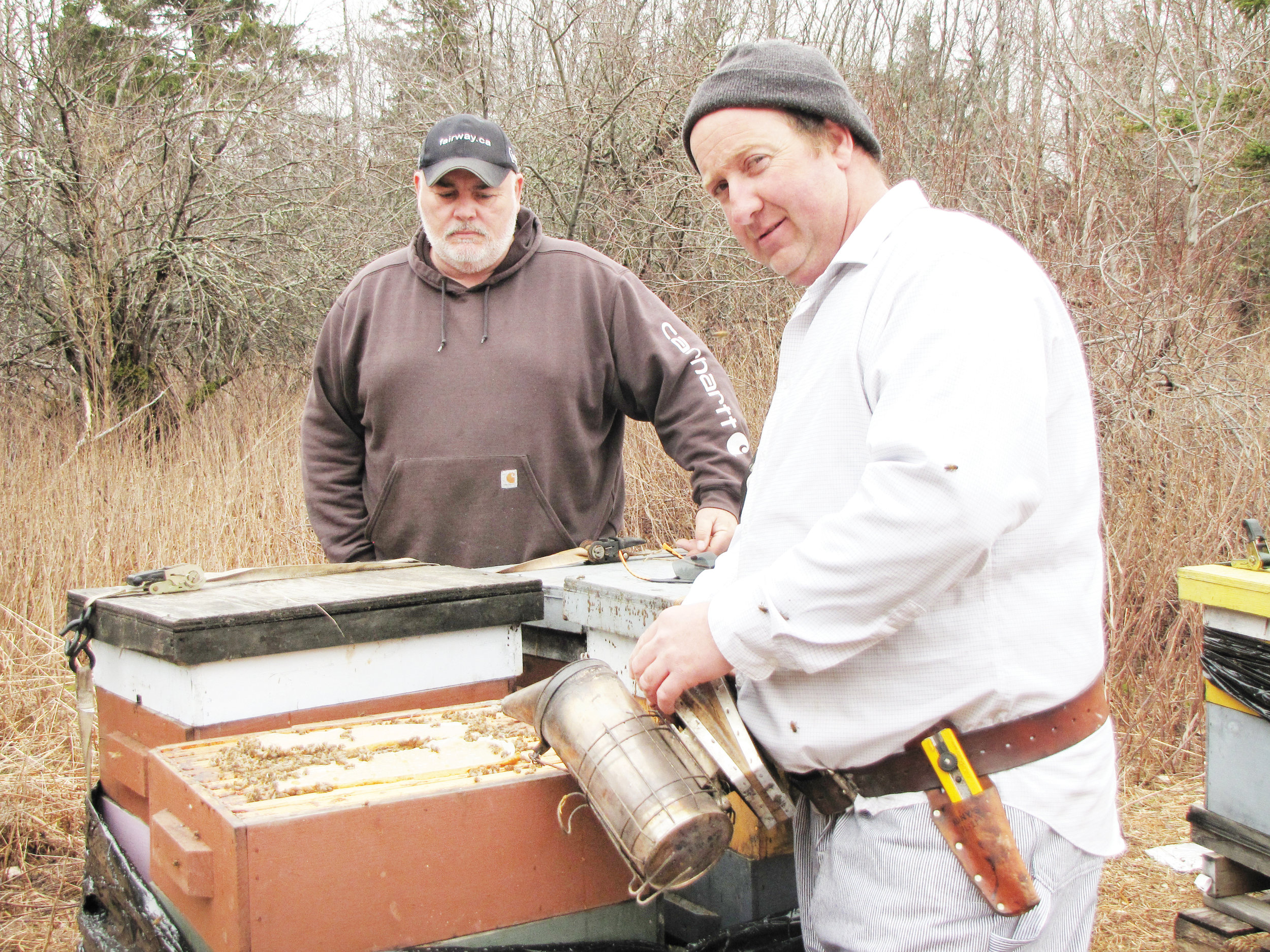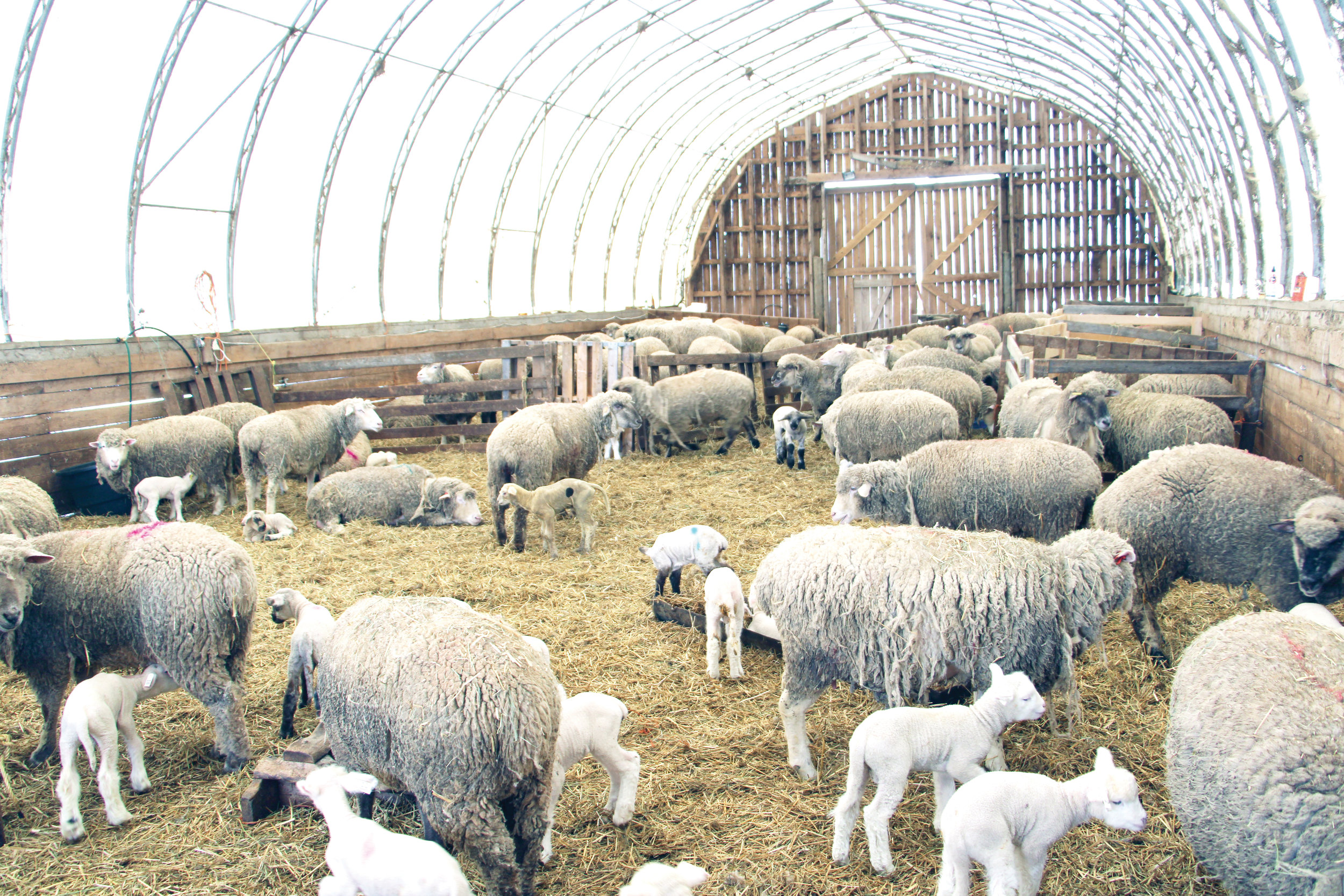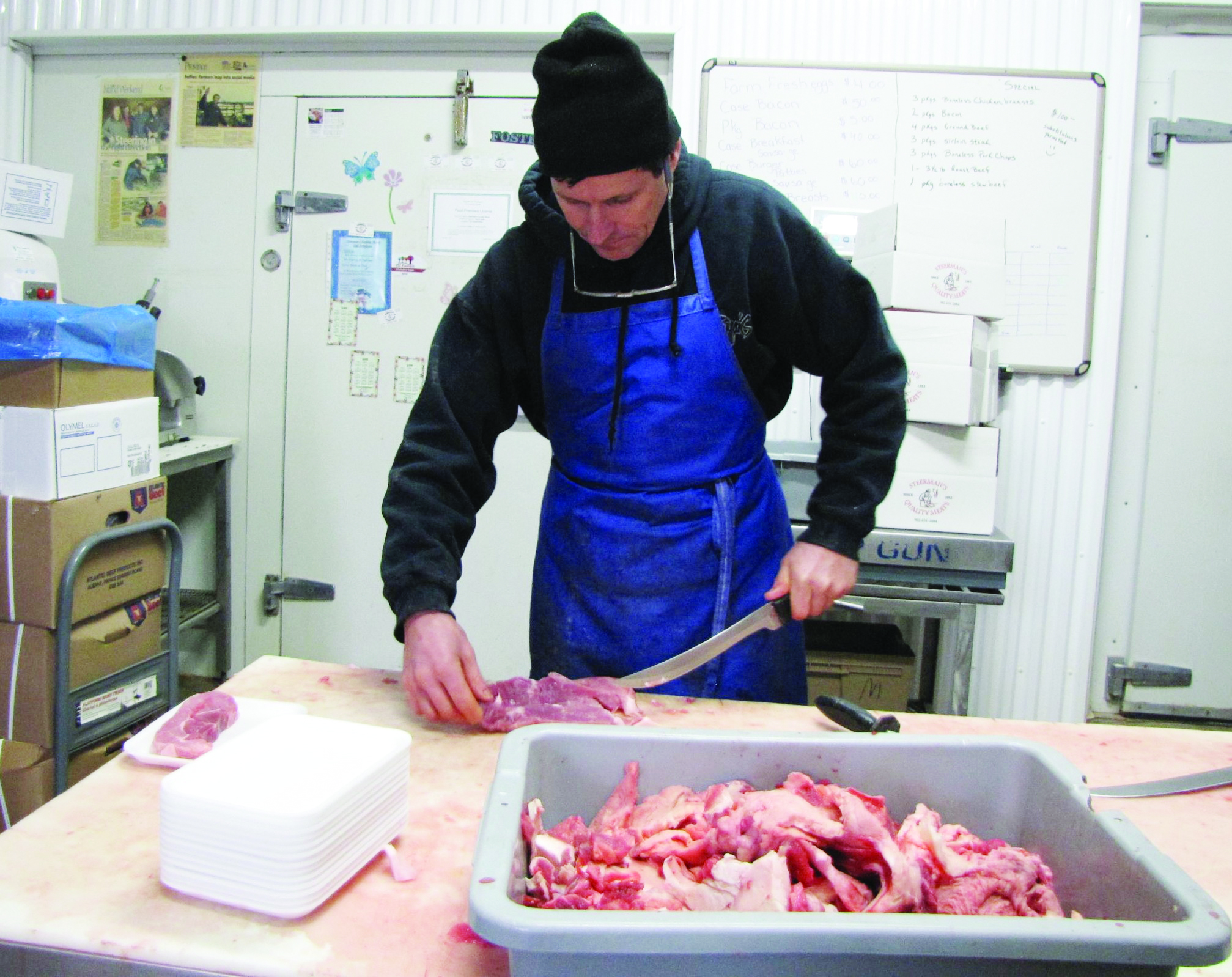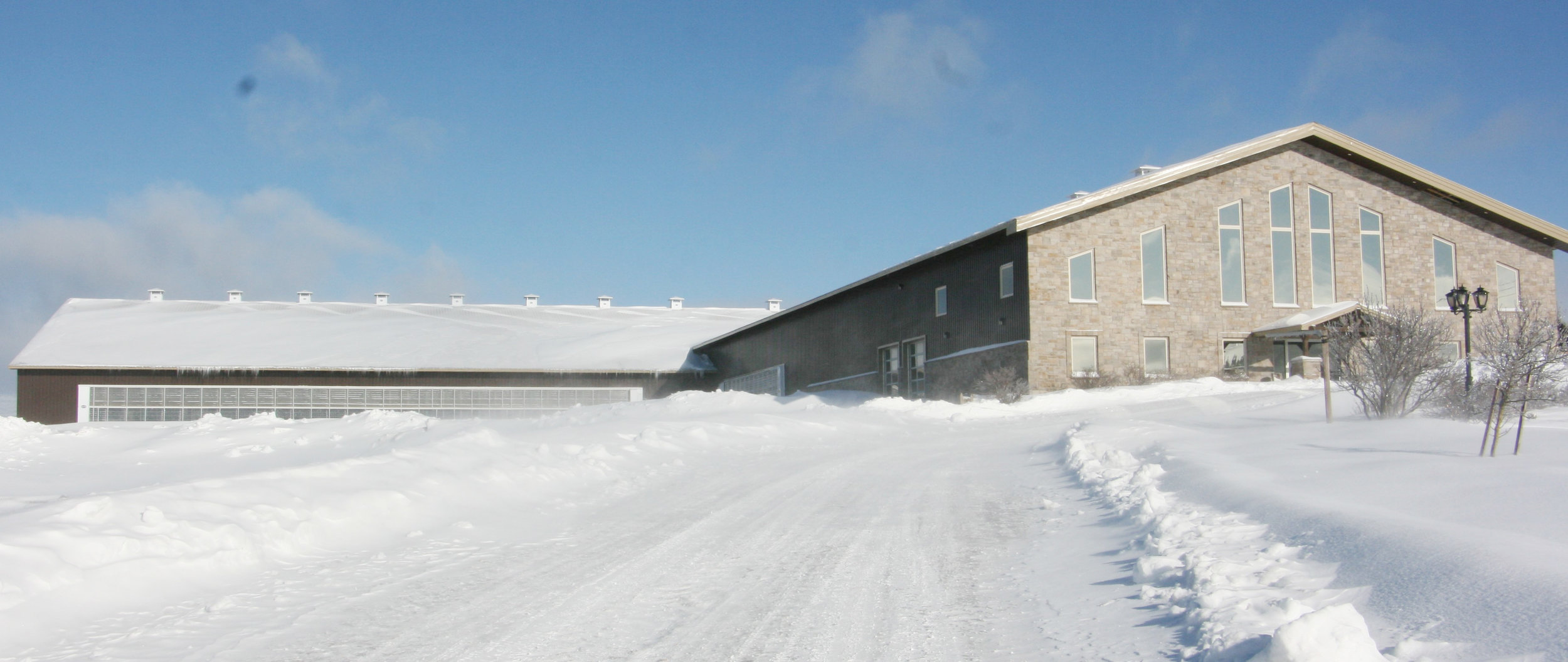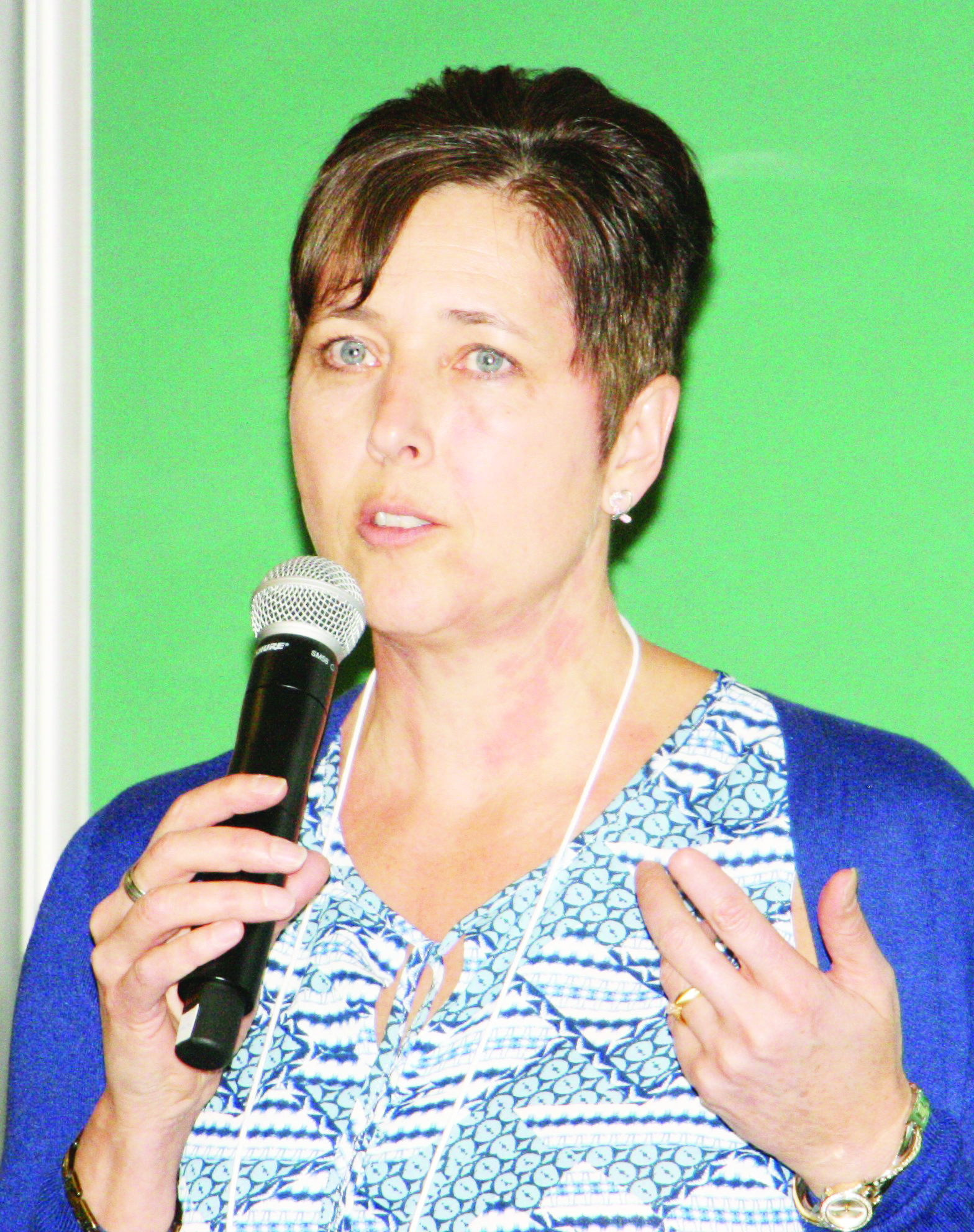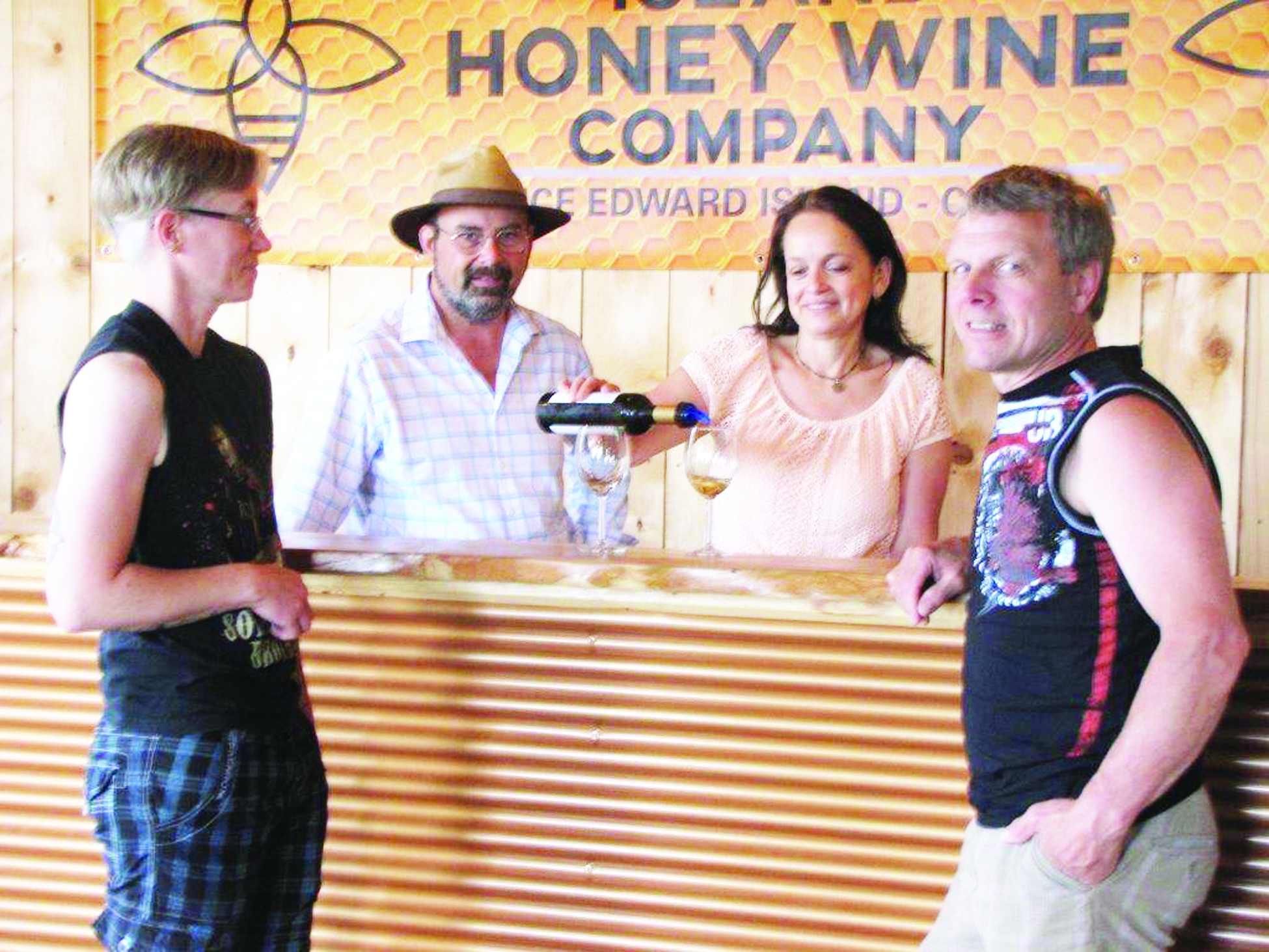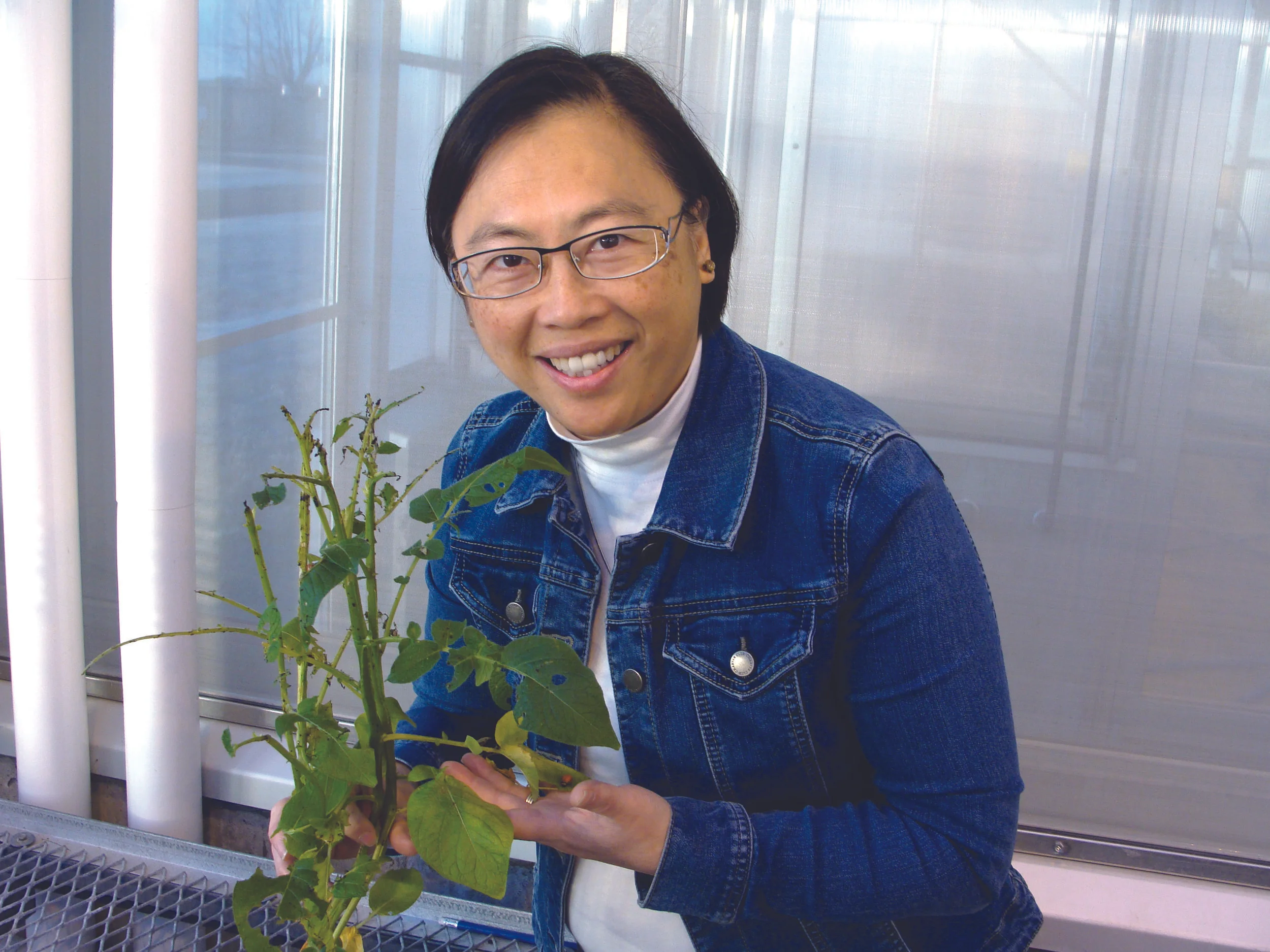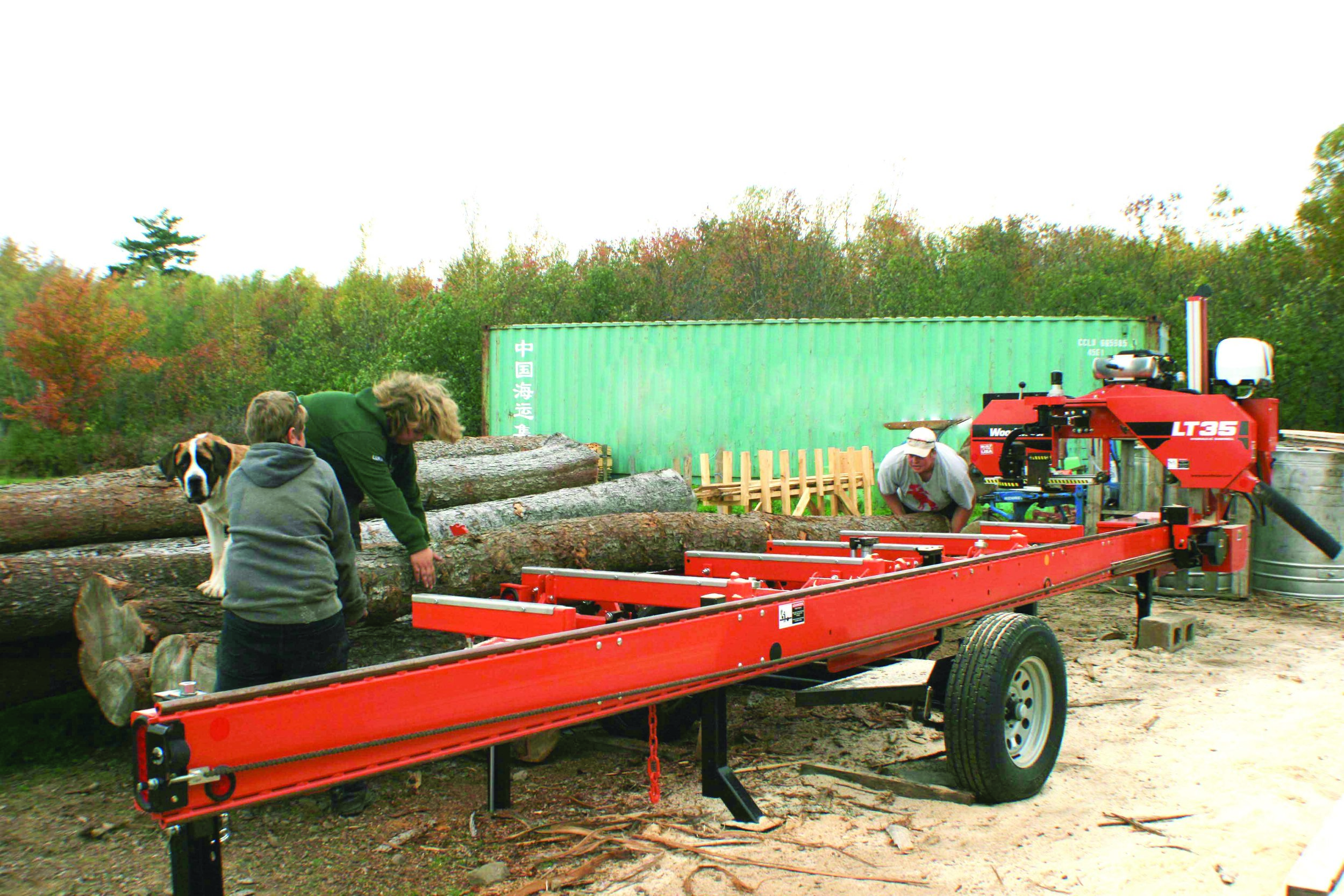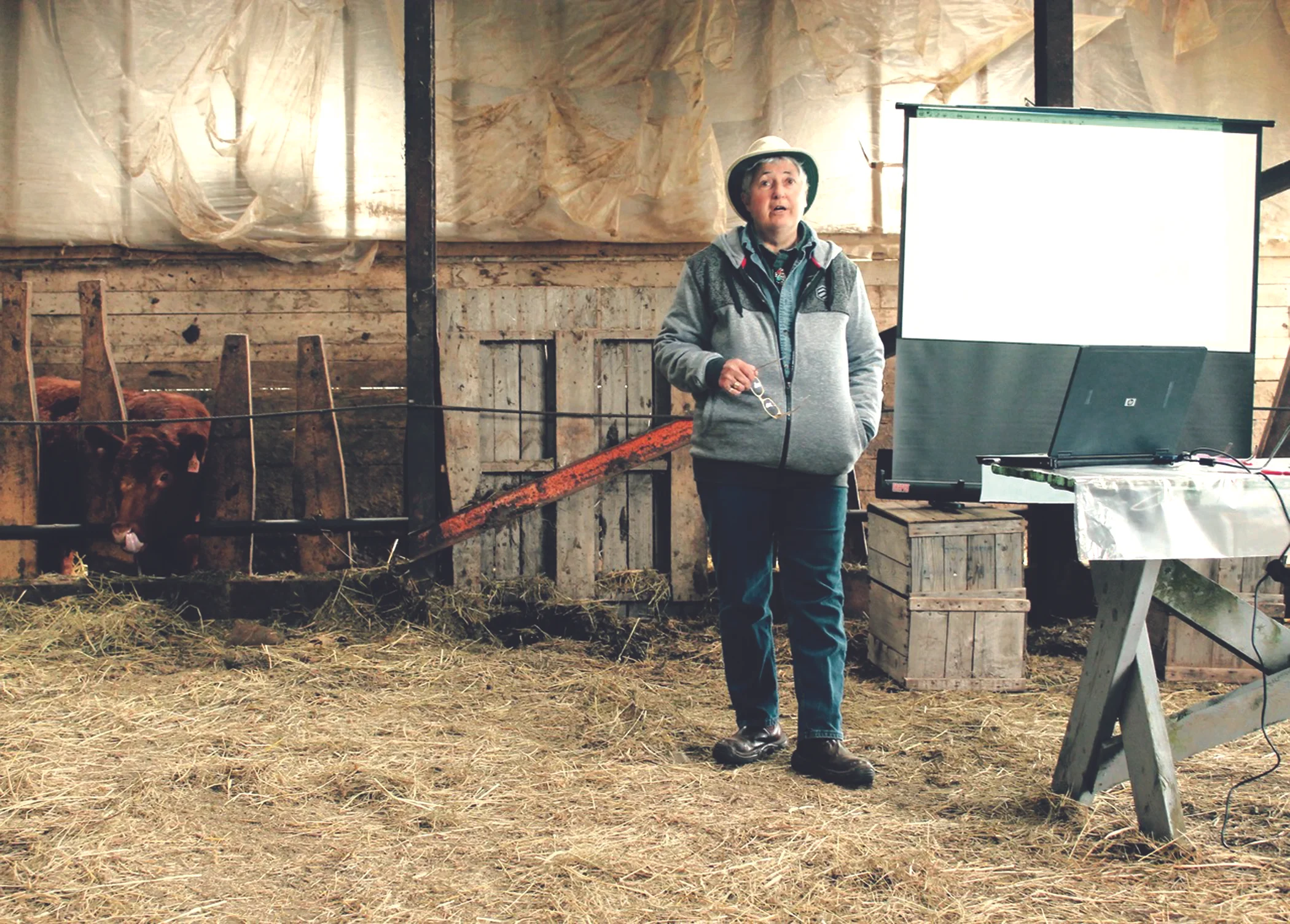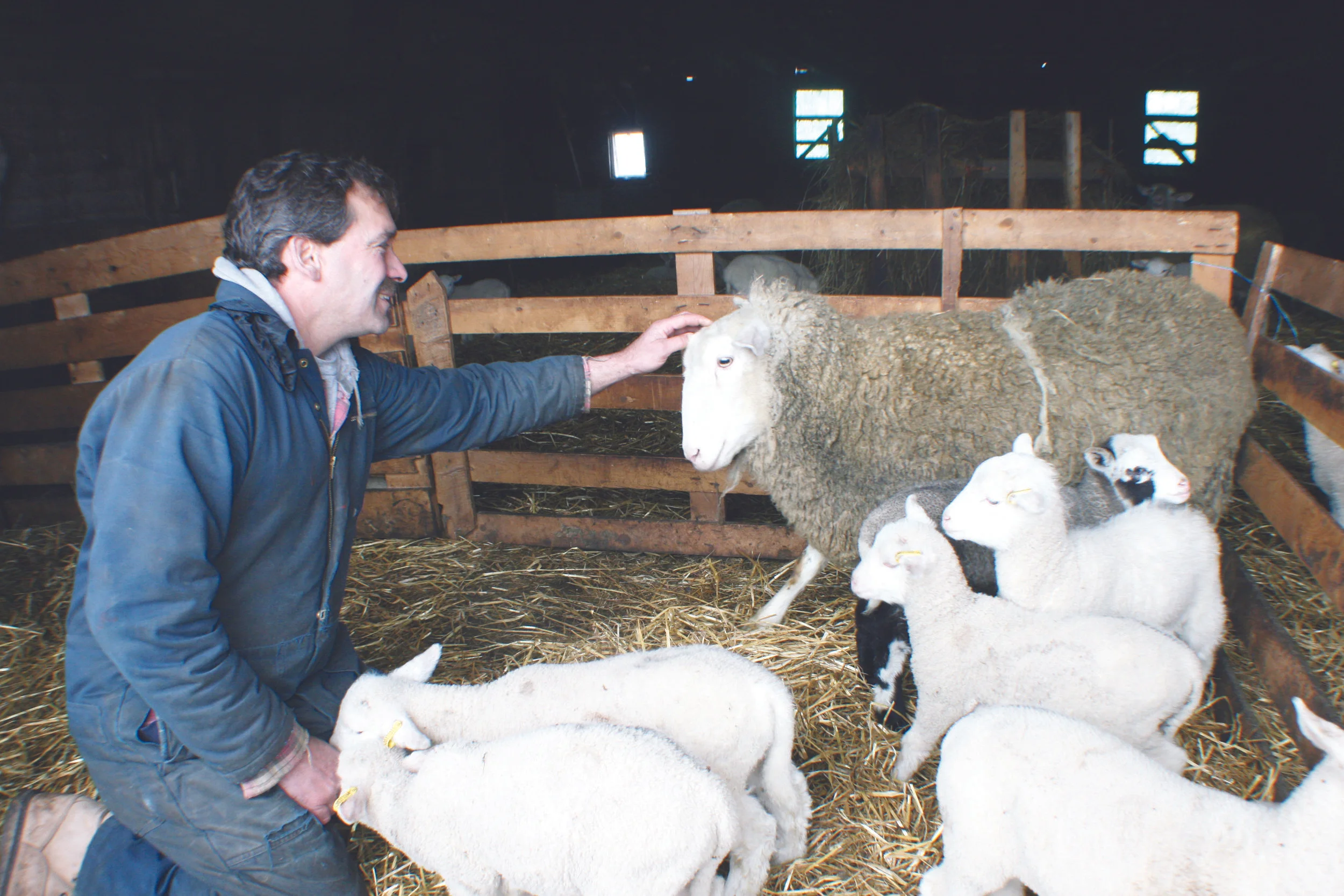Farm Focus September 2022
by Emily Leeson
Dr. Aaron Mills, an Agriculture and Agri-Food Canada (AAFC) research scientist based in Charlottetown, has maintained a keen interest in the Maritime craft brewing industry since graduate school, and he’s now poised to help introduce one more element of local production to the industry.
by George Fullerton
Brownsville Farms sits on the side of Route 1 as you travel east into Sussex, N.B. For the past several years, the dairy operation has been distinguished by extensive rows of tube-wrapped silage extending up the hill behind the barns.
by Sonny Murray
Anthracnose, which was once only a common disease in day-neutral strawberry varieties in August, is becoming an increasing nuisance in June-bearing varieties. Many of our popular June-bearing varieties (including Annapolis, Cavendish, and Kent) are quite susceptible to this disease. Disease development of anthracnose is favoured by moist, hot conditions.
by Christian Michaud
Delivered by the Agriculture Alliance of New Brunswick (AANB), Agriculture in the Classroom New Brunswick (AITC-NB) is a non-profit, charitable organization committed to providing accurate, balanced, and current curriculum-linked agri-food resources, programs, and initiatives that are based in science.
Farm Focus August 2022
by Hugh Lyu
Fall is a good time for perennial weed management in wild blueberry fields.
In the fall, perennial plants translocate carbohydrates to their rhizomes and roots. And herbicides get transported to those structures during the carbohydrate translocation process, which improves their efficacy.
by Dan Woolley
The Wild Blueberry Producers Association of Nova Scotia (WBPANS) recently held its first field day since 2019 and the disruption of COVID-19. About 120 people showed up at John Cameron’s blueberry receiving station in East River Saint Marys, Pictou County, on July 19.
by George Fullerton
July is the height of the strawberry U-pick season at Walker’s Strawberry Farm just downstream from Berwick, N.B., on the Millstream River. But the farm offers much more than strawberries throughout the year. The Walker family also produces raspberries, vegetables, beef, meat chickens, and eggs.
by Emily Leeson
P.E.I.’s own Dr. Christine Noronha has been named one of the 2022 Influential Women in Canadian Agriculture. The honour, bestowed by Annex Business Media, recognizes Noronha’s accomplishments made throughout her 20-plus-year career as an entomologist with Agriculture and Agri-Food Canada (AAFC).
Farm Focus July 2022
by George Fullerton
Dairy farmer Danny Clain of Anagance in southeastern New Brunswick was all smiles during the first week of June as Ben and Jordan Wohlgemuth’s custom harvesting crew packed silage bags full of his first-cut grass and legumes.
by Dan Woolley
The Quebec-based Agropur Dairy Cooperative has begun a major expansion of its Truro ice cream plant with a $34-million investment to both redefine the floor space of its production area and add a new manufacturing line for its frozen novelty treats.
by Carissa Geddes
It’s no secret that consumers have more questions than ever about the processes that occur before their food reaches their dinner plate. More specifically, they want to know if the food they eat is ethically sourced and environmentally sustainable. How can producers provide consumers with this information?
by Andrew Byers
Nationally, there’s a shortage of honeybees and a high demand for pollination services this season! The challenges of overwintering losses and disease have led to a perceived crisis in the Canadian pollination industry. Some individual Canadian beekeepers reported overwintering losses of 80-90 percent, which means as much as 90 percent of their honeybee colonies were dead this spring. Those individual farmers will take years to recover.
Farm Focus June 2022
by Emily Leeson
The numbers are in: Canada’s 2021 Census of Agriculture highlights an industry in transition. “Generally speaking, I actually do see a bright picture for farming in Canada,” said Sylvain Charlebois, senior director of Dalhousie University’s Agri-Food Analytics Lab. “Farmers are getting more assets, have more access to resources, and are becoming more efficient as well.”
by George Fullerton
On the first Monday in May, things at Ferme Vienneau (Vienneau Farm) in southeastern New Brunswick seemed pretty busy, with staff in a number of greenhouses loading out trays of bedding plants and loading in freshly planted trays. “As soon as we can get on the land, we will be real busy putting in long hours tilling and planting,” said Paul Vienneau.
by Zack Metcalfe
P.E.I. hasn’t been able to sell seed potatoes off-Island since November, when the Canadian Food Inspection Agency (CFIA) enacted a ministerial order aimed at preventing the spread of potato wart, which has been discovered in 33 Island fields.
by Chelsea Foley
Canadian Agriculture Literacy Month (CALM) is a national initiative hosted by Agriculture in the Classroom Canada every March. The 2022 celebration involved unique events across Canada. Agriculture in the Classroom Newfoundland and Labrador (AITC-NL) hosted the month-long event virtually in this province. The theme was: “Our food, our story.”
Farm Focus May 2022
by George Fullerton
Brothers John and Derek Robinson of Hazelhill Farms in Sussex, N.B., have brought their Holstein herd into a rare and honoured position by receiving Holstein Canada’s 2021 Master Breeder award in January. Hazelhill was one of only 19 farms across Canada to receive the award and one of only three in Atlantic Canada (the other two were Lindenright Holsteins and MacGregor Dairy Farm, both of Nova Scotia).
by Heather Jones
Averages were up at the Maritime Beef Testing Society’s 48th annual breeding stock sale in Nappan, N.S., on April 2. The joie de vivre among friends and colleagues was palpable as – after a two-year pandemic-induced hiatus – they were able to meet face-to-face in the Maritime Beef Test Station barn. Online bidders were also accommodated.
by Lisa Ashworth
The Agricultural Alliance of New Brunswick (AANB) recently launched www.AgriNB.ca, a new website to assist New Brunswick farmers grow their operations and new farmers start their businesses. The website’s goal is to collaborate with national and provincial organizations and governments to facilitate the communication of agricultural resources and programs to New Brunswick farmers.
by Janice Levangie
The ability of all Atlantic Canadians to access enough safe and nutritious food (food security) is key to healthy, resilient communities. Food shortages due to recent events such as floods, landslides, and the COVID-19 pandemic have highlighted vulnerabilities of Canada’s food systems. Access to quality, locally produced food, including meat products, helps build resiliency.
Farm Focus April 2022
by Zack Metcalfe
Every crop – in fact all plants on Earth – require the same 14 nutrients to grow, ranging from macronutrients such as phosphorous, potassium, sulphur, and calcium to micronutrients such as molybdenum, manganese, nickel, and zinc. How much is needed depends on the nutrient, the crop, and the soil, but whether it’s a Sierra redwood or a stalk of wheat, all 14 are needed.
by Alisha Johnson
Lisa and Scott MacEachern have a mission to provide Nova Scotians with plenty of quality, locally sourced beef, the need for which has been amplified even more by the pandemic. Since their family farm, Ashcroft Angus Farms in Bailey’s Brook, Pictou County, N.S., was founded in 2015, they’ve been doing just that.
by Lyne Michaud
Last year brought its fair share of challenges with extreme weather conditions and supply-chain upheavals. Yet the farmland market showed strength, as Farm Credit Canada (FCC) reports an 8.3 percent increase in 2021 average farmland values in Canada from 2020 values.
by Caitlin Congdon
Coming into the 2022 production season, we’re seeing the rise of many input prices, and herbicides aren’t an exception. Several factors have led to recent shortages in glyphosate, which is a key player in many herbicide programs. With the decrease in availability of such a popular product, more strain is put on alternatives, limiting supplies and driving up prices all around.
Farm Focus March 2022
by Emily Leeson
Avian influenza has arrived in Nova Scotia. It was first confirmed in a Canada goose in the Grand Desert area of Halifax County. By Feb. 3, the Canadian Food Inspection Agency (CFIA) confirmed the presence of the virus in a commercial poultry barn in western Nova Scotia. Shortly thereafter, 12,000 turkeys were euthanized.
by George Fullerton
On a clear and cold Sunday afternoon, Jan. 23, my bale spike repair efforts were interrupted by a phone call with a simple and alarming declaration: “Dad, Jeff’s barn is on fire!” It was our youngest daughter, Nora. She added: “He just called me from the mill. He is on his way home.”
by Zack Metcalfe
Whether it’s a Yukon Gold or a Russet Burbank, there’s nothing simple about the potato on your cutting board. Behind its thin skin and starchy interior lies millennia of careful cultivation and centuries of geopolitical controversy. It’s a lot to fathom while baking a shepherd’s pie.
by David Newcombe
This year, the focus of Canadian Agricultural Safety Week (March 13-19) is to inspire farmers, farm families, and farm communities to value farm safety every day. Safety is an ongoing commitment that must be top of mind for those of us living and working on a farm.
Farm Focus February 2022
by George Fullerton
New Brunswick’s Route 134 follows the Bay of Chaleur coast, providing spectacular views of the bay and the distant southern coast of Quebec’s Gaspé region. The land is relatively flat, tipping gently to the coast. There is plenty of evidence of unused agricultural land and pockets of active farming.
by Caitlyn Clements
As you would have read in previous editions of Farm Focus, the Nova Scotia Federation of Agriculture (NSFA) has been working with the Nova Scotia Apprenticeship Agency (NSAA) to develop the farm technician trade. We’re currently looking for journeypeople for this trade so that apprentices can begin the training course in 2023.
by Matthew Carlson
There’s a great opportunity for those interested in getting into farming in the St. John’s, N.L., area. The O’Brien Farm Foundation’s incubator farm program has three open plots for the upcoming 2022 growing season. The program will provide access to resources such as equipment, land, and mentoring.
by Matthew Peill
Of the many pathogens that can affect small fruit producers in a growing season, viruses are generally among the hardest to manage and the least well understood. Viruses are microscopic infectious particles that must infect their host to multiply (replicate). Viruses replicate by hijacking their host’s cellular processes. This interferes with normal cell functioning and in turn causes disease.
Farm Focus January 2022
by Dan Woolley
The Dairy Farmers of Nova Scotia (DFNS) annual general meeting was held on Dec. 1 and 2. The first day was a virtual meeting and the second day was an in-person meeting at the Inn on Prince Hotel and Conference Centre in Truro.
by George Fullerton
Rebecca Williams is the third generation of the Williams family to take on a portion of the management responsibilities at Pond View Farms in Goulds, N.L., a 15-minute drive south of St. John’s. She comes to her position with a business management (dairy) diploma from Dalhousie University’s Agricultural Campus in Truro, N.S.
by Thomas Harrington
Now that the harvest season is wrapped up and most machinery is put away for the winter, it’s the perfect opportunity to start thinking about what data might be available on your farm machinery in-cab displays. Many modern tractors, sprayers, and combines have some type of display mounted in the cab that collects valuable field information – sometimes it can be as simple as enabling the recording feature.
by Lisa Ashworth
The New Brunswick Young Farmers’ Forum (NBYFF) provides a voice for the young farmer community in New Brunswick. Established in the spring of 2008 with the assistance of the Canadian Young Farmers’ Forum (CYFF), it works closely with the CYFF and other provincial young farmer groups to foster opportunities for member networking, communication, and learning in a rapidly evolving agriculture industry.
Farm Focus December 2021
by Dan Woolley
Nova Scotia’s wild blueberry industry has been through many challenges in recent years, said Peter Swinkels, president of the Wild Blueberry Producers Association of Nova Scotia (WBPANS), at the association’s annual general meeting at the Best Western hotel in Truro on Nov. 18.
by Nicole Kitchener
After already experiencing a few below-average years, Prince Edward Island and New Brunswick potato growers were then forced to endure a tumultuous 2020. COVID-19 upheavals combined with drought conditions sunk provincial yields by 30 and 35 percent respectively. Growers were, therefore, relieved – and perhaps a bit surprised? – with 2021’s banner season.
by George Fullerton
Matthew Carlson with the Newfoundland and Labrador Federation of Agriculture recommended Nelson Fagan Jr. as someone who could provide insight into the province’s beef industry. We met at his farm property in the community of Conception Bay South in late September.
by Katie Trottier
While grain-dense livestock diets are common in parts of Canada, Atlantic farmers are challenged by high grain prices due to our climate and location. Good-quality forages should be the main goal for feeding ruminant livestock in Atlantic Canada, but grains can fit into feeding programs for both beef and sheep production with considerations. The presence of mycotoxins is a timely one for this winter.
Farm Focus November 2021
by Emily Leeson
For a city kid and eventual chartered professional accountant who’d only spent the odd weekend visiting a friend’s dairy farm growing up, it may surprise some that Faith Matchett ended up in a career in agriculture. But that’s where her interest led her.
by George Fullerton
On a Saturday morning in mid-September, Lester’s Farm Market, on the edge of St. John’s, N.L., has a full parking lot, with customers loading up on fresh produce, baked goods, flowers, and other items. Sixth-generation farmer Susan Lester manages the family-owned market.
by Jay Woodworth
Balsam fir Christmas trees have been a Nova Scotia staple for generations. Nova Scotia has more than 15,000 acres of naturally regenerating trees in production, mainly centred in Lunenburg County (the Balsam fir Christmas tree capital of the world).
by Tim Marsh
It seems like just yesterday that the Nova Scotia Federation of Agriculture (NSFA) staff and executive were gathered in the conference room at the NSFA office putting on our very first virtual annual meeting. Now here we are, back to hosting an in-person meeting! I’m looking forward to connecting with many of you face-to-face for the first time in nearly two years.
Farm Focus October 2021
by Emily Leeson
While wild blueberry yields and prices may still fluctuate, Peter Burgess, executive director of the Wild Blueberry Producers Association of Nova Scotia, said recently that things are looking very good so far. That’s a change for growers who’ve had several challenging years in a row.
by George Fullerton
The Kings County Soil and Crop Improvement Association in southern New Brunswick chose their Aug. 31 rain date to host their forage demo day in Knightville. “Typically, we see around 80 people attending our equipment field days,” said association coordinator Joe Graham.
by Thomas Harrington
As many producers are in the midst of the busy fall harvest season, it could be nearing the last opportunity to establish a cover crop before winter. August and September are the safest times to reliably establish a cover crop, but if weather conditions are favourable, there may still be a few opportunities for late fall plantings.
by Lisa Ashworth
Due to insufficient resources for the popular Agriculture in the Classroom New Brunswick (AITC-NB) program, the Agricultural Alliance of New Brunswick (AANB) finds itself without a program coordinator and wants producers to be aware of the challenges it faces when it comes to operating the program in New Brunswick.
Farm Focus September 2021
by George Fullerton
Hector Robichaud became a blueberry farmer in 2000, partially at the encouragement of his brother, who thought the blueberry industry offered good potential.
by Andrew Byers
As a beekeeper, I’m often asked the question, “How are the bees?” This year in Eastern Canada, the answer is easy because this season has been exceptional! This is a good year for honeybees and all insects. While recently standing in one of my fields, I found the bounty of wildflowers and the audible buzz of flying insects truly impressive.
by Amy Higgins
It’s hard to believe it’s September already. If there was ever a time to be grateful for rain in our region, this summer would be it. Western farmers are in dire need of precipitation.
by Wayne Simmons
This summer has brought some great growing conditions across Newfoundland and Labrador, although it has been drier than we would like. This comes after a spring that was generally excellent, other than some late spring frost warnings.
Farm Focus August 2021
by George Fullerton
Lisa Ashworth graciously agreed to a profile of her farm on very short notice in mid-July. But, as president of the Agricultural Alliance of New Brunswick (AANB), she was participating in a Canadian Federation of Agriculture (CFA) conference call. And her husband Derek and their son Logan were busy baling hay.
by Chelsea Foley
Agriculture in the Classroom Newfoundland and Labrador (AITC-NL) hosted its “Bee Creative” literary contest for kindergarten to Grade 6 classes across the province in April. The contest was offered in partnership with the Newfoundland and Labrador Beekeeping Association (NLBKA) and the Egg Farmers of Newfoundland and Labrador.
by Michelle Cortens
The diverse areas of expertise needed on a farm never cease to amaze me. Now, as weather station technology becomes increasingly affordable, you might be able to upgrade your resume from weather enthusiast to weather forecaster.
by David Newcombe
Summer is here, which means our roadways are busy! Throughout the summer and into the fall, there’s more slow-moving farm equipment on our roads than at other times of the year. That’s because farmers are planting, cultivating, and harvesting.
Farm Focus July 2021
by Dan Woolley
Atlantic Stockyards Ltd. just outside Truro, N.S., has weathered three successive waves of the COVID-19 pandemic since early 2020. “We never faced a shutdown,” said stockyard co-owner Scott Dixon recently.
by George Fullerton
Eva Rehak and Alain Rousselle figure they’ve found their lives’ sweet spot. The couple and their three children – Rose, Claire, and Jakob – operate Alva Farm in Saint-Maurice, N.B., a short distance west of Bouctouche.
by Matthew Carlson
Stephanie Lipp, an aspiring mushroom grower in Bonavista, N.L., is the newest mentee in the Newfoundland and Labrador Young Farmers Forum (NLYFF) mentorship pilot program.
by Allan Melvin
Every business has its support system, its group that it relies on to keep things moving. For the agriculture industry, our support systems are usually made up of staff, suppliers, dealers, financial advisers, agronomists, etc.
Farm Focus June 2021
by Emily Leeson
Adam Webster’s cannabis plants weren’t yet transplanted into the new fenced-in plot he had ready for them on his farm in Port Williams, N.S., in late May, but he was already deeply concerned about the profitably of his next crop.
by George Fullerton
At the end of the first week in May, Tim Livingstone was delighted to see his crew of five seasonal agriculture workers from Mexico finished with their COVID-19 isolation and in the field planting strawberries.
by Matthew Carlson
A new incubator farm pilot program will soon launch at the O’Brien Farm in St. John’s, N.L. This initiative seeks to match new farmers with the resources they need to gain the skills for success in starting their own farms. It will provide access to resources such as equipment, land, and mentoring.
by Amy Higgins
Pasture season is finally upon us! This is the time when your ruminants finally get to have a taste of that lush and plentiful grass that you’ve worked hard to maintain … and will proceed to find whatever weak spot there may be in your fence.
Farm Focus May 2021
by Dan Woolley
Stephen and Jenna Burris’s Green Oaks Dairy Farm in Green Oaks, Colchester County, N.S., can trace its farm family roots back to its establishment as a farm in 1785. In 1990, Stephen’s father Phillip incorporated the farm. In 2016, Stephen and Jenna undertook an intergenerational farm transfer with Phillip.
by Heather Jones
The average price was considerably higher at the Maritime Beef Testing Society’s 48th annual breeding stock sale on April 3. To comply with pandemic regulations, the sale was held online again this year instead of at the Maritime Beef Test Station barn in Nappan, N.S.
by Chelsea Foley
“Our food, our story” was the theme for this year’s Canadian Agriculture Literacy Month (CALM) in March. CALM is a national initiative hosted by Agriculture in the Classroom Canada. Agriculture in the Classroom Newfoundland and Labrador (AITC-NL) celebrated CALM.
by Lisa Ashworth
New Brunswick farmers play an important role in the provincial economy by producing food and products for local, national, and international export markets. While we have increased our economic contribution in recent years, our farming sector – like other industries – faces a significant workforce challenge.
Farm Focus April 2021
by Emily Leeson
Prince Edward Island currently boasts about 12,000 acres in organic production, but the P.E.I. Certified Organic Producers Cooperative recently stated that it would like to see that acreage grow significantly. The goal of the cooperative’s new organic land network project is ambitious: a total of 80,000 acres.
by Dan Woolley
Egg farmer Glen Jennings is in the midst of a major reconstruction and modernization of his Bayview Poultry Farms’ infrastructure in Masstown, N.S. “We are moving into a new barn,” said Jennings recently. “It will house 8,000 layers, but with room to expand.”
by George Fullerton
Tom Tompkins and Brandy Richardson of Bannon, N.B., decided in 2019 to take their farming operation in a different direction. So they sold off their Charolais-Simmental cows and invested in 70 Rideau Arcott-Ile de France F1 ewes.
by Matthew Carlson
The Newfoundland and Labrador Young Farmers Forum (NLYFF) is celebrating the launch of its online land-matching map, which also includes a directory function. The service launched in March with an overall goal of helping new farmers access land faster. The site featured seven land listings at its launch.
Farm Focus March 2021
by Kathy Birt
Harry and Vicki Elsinga of Brookwater Farms in Kensington, P.E.I., are a team when it comes to their flock of 200 sheep. “He gets them out alive and I keep them alive,” said Vicki of the looming lambing period that takes place on this farm every April and May.
by George Fullerton
Grant’s Breeder Farm in Kars, N.B., on the Belleisle Bay branch of the Saint John River, has grown from a traditional mixed farm in the 1950s to a sprawling operation today that includes a poultry breeder flock for day-old chick and pullet sales, egg production, a dairy herd, a feed mill, and soon a custom forage harvesting service.
by Sajid Rehman
Plant-parasitic nematodes are soil-inhabiting microscopic worms with a body length of less than one millimetre. They are ubiquitous, found in all climates and every type of soil.
by Lisa Ashworth
Before we know it, spring will be here and that means getting out on the fields to prepare them for the upcoming growing season. Now is the perfect time to prepare or update your nutrient management plan. A strong plan ensures application of the right supply of nutrients needed to give you not only the best crop production, but to also save you money and minimize the environmental impact to soil, water, and air quality because you will typically use fewer inputs.
Farm Focus February 2021
Farm Focus January 2021
Farm Focus December 2020
Farm Focus November 2020
Farm Focus October 2020
by Kathy Birt
It could be said that 21-year-old Ila Matheson of Albion Cross, P.E.I., is in her comfort zone as she makes her way around her family’s Springwater Farm, right down to sporting bare feet in the barnyard. Springwater Farm focuses in particular on raising sheep and specializes in fresh, local lamb.
by Wayne Simmons
Open Farm Day in Newfoundland and Labrador is a provincewide initiative held in conjunction with the rest of Atlantic Canada and designed to raise awareness of the agriculture industry. This year’s Open Farm Day was held on Sept. 20 and was a different kind of event than in previous years. Due to the ongoing pandemic, the decision was made to host a virtual event.
by Michelle Cortens
When fruit trees are planted, they offer the promise of a future harvest. But those plans can be thwarted when trees decline and die. At the end of another season, I reflect on issues from farm visits and how, in hindsight, tree losses are preventable.
Farm Focus September 2020
by Jacob Hirtle
Located in the Annapolis Valley in Nova Scotia, the Western Kings 4-H Club began as one of the many agriculture/homemaking clubs in the early 1930s. Today, the club is one of five 4-H clubs in Kings County.
by Hugh Lyu
Lowbush blueberries (Vaccinium angustifolium Ait.) are an economically important fruit crop in Canada, and Nova Scotia is one of the most important production regions. Weed management in this perennial monoculture is difficult, and weeds contribute to a significant variation in annual yields.
Farm Focus August 2020
by George Fullerton
From their home in Queenstown, N.B., Hugh and Mary Harmon feast on a panoramic view that stretches for miles. As their property slopes to the east, the view, sequentially, includes Otnabog Lake, the tree-lined channel of the Saint John River, Musquash Lake, and the expanse of Washademoak Lake.
by Stephanie Rogers
Farmers are stewards of the land and their animals. Progressive dairy farmers are constantly seeking opportunities to achieve greater financial stability and resilience. The high-performance herd certificate at Dalhousie University’s Faculty of Agriculture is designed for just such an individual. The program will be highly interactive and designed to help improve the herdsperson’s animal and herd management skills.
by Jay Woodworth
Christmas tree production is a staple industry in Nova Scotia and in Atlantic Canada as a whole. According to Statistics Canada, Nova Scotia’s annual Christmas tree exports are valued at more than $7 million. Approximately 90 percent of the trees harvested in Nova Scotia are exported out of the province, either through brokers or customers in Canada or abroad.
Farm Focus July 2020
by Emily Leeson
There’s a new potato in town and its name is AAC Canada Gold-Dorée. The new spud is yellow-skinned, pleasantly round, and, some say, even tastier than Yukon Gold. AAC Canada Gold-Dorée may just be setting the new gold standard for the fresh potato market in the country.
by Bree Stewart
Nestled in our rural community just outside the town of Antigonish is the community centre where the St. Andrews 4-H Club comes together for everything from general meetings to achievement days. Ours is one of six clubs in Antigonish County, Nova Scotia.
by Kathy Birt
Remnants of the COVID-19 pandemic still linger on Prince Edward Island, with all of the social distancing, limited visiting, and figuring of bubbles. Despite that, Amy Bysterveldt of Winterbay Farms in Bedford, P.E.I., found a way to honour Derwin and Janet Clow of Lower Freetown on their last day on their award-winning dairy farm, Cassialane Holsteins, on June 4.
by George Fullerton
Meeting COVID-19 protocols adds another demanding element to management at Michaud Farm in Bouctouche, N.B. The vegetable and soft fruit operation on the shores of Bouctouche Bay in eastern New Brunswick includes three managing partners, around eight local employees, and eight temporary workers from Mexico in the high season.
Farm Focus June 2020
by Emily Leeson
So-called “murder hornets” made their debut in Canada back in August 2019 when three of the large insects were found in the Nanaimo area of British Columbia’s Vancouver Island. Canadian and international experts confirmed that they were Asian giant hornets (Vespa mandarinia). It was the first time the hornets had been found in the area.
by George Fullerton
Lindy and Scott Brown certainly weren’t expecting to win the Agricultural Alliance of New Brunswick’s new entrant award this year. “We had no idea that we had even been nominated, so the call to show up at the Agricultural Alliance AGM banquet to accept the award was very much a surprise and an honour,” said Scott recently.
by Wayne Simmons
As the new president of the Newfoundland and Labrador Federation of Agriculture (NLFA), I want to introduce myself to readers of Farm Focus and let you know who I am and what I would like to do for the industry. I was born in Grand Falls-Windsor and live in Little Rapids, on the west coast of the island, with my wife Nadia and two children.
by Amy Higgins
There have recently been a few beef-related hoaxes and poorly interpreted data correlations going around social media. I was disappointed to see that they were circulated by people who are actually involved in the beef system and not solely by those involved in anti-agriculture forums.
Farm Focus May 2020
by Heather Jones
A flurry of bids launched the Maritime Beef Testing Society’s 47th annual breeding stock sale on April 4. But unlike other years, there wasn’t a soul in the stands at the test station sales barn in Nappan, N.S. Instead, a crowd that swelled from 375 to 500 watched it unfold online.
by Victoria Mellish
The Summerville 4-H Club of P.E.I. is a club of 24 members and 12 screened leaders from the Murray Harbour, Cardigan, and Montague areas. As a member of our club, you need to complete a project, present a speech or demonstration, do something for your community, and experience an agriculture awareness activity.
by Anna Belliveau
I was born in Church Point, Digby County, N.S., and graduated from the former Nova Scotia Agricultural College with my bachelor of science degree in animal science and my master of science degree in animal genetics and biotechnology.
by Robyn McCallum
April and May are busy and critical months in honeybee yards (apiaries). We often see colonies survive the winter to this point and then possibly diminish or even die in April due to a lack of food stores or weak bee populations.
Farm Focus April 2020
by George Fullerton
Lonsview Farm of New Line, N.B., south of Sussex, was recently named the Kings County Soil and Crop Improvement Association’s farm of the year. Eric Walker and his partner Krystal Krick own and manage the farm, milking 165 cows.
by Sonny Murray
At this time of year, Winter wheat producers start to think about their wheat stands and how they’re looking as winter comes to an end. Ideally, the Winter wheat would have been planted early enough last fall so that each plant produced at least three leaves, one tiller, and, just as importantly, a crown.
by Kimberly Stokdijk
When you think of your ideal farm employee, who do you picture? Someone who can demonstrate agriculture production, technical, and leadership skills, and regulatory awareness? Someone who can use and maintain a variety of farm and shop equipment, and is able to use various types of technology? The Nova Scotia Apprenticeship Agency has approved farm technician to be a designated trade!
by Matthew Carlson
The Newfoundland and Labrador Young Farmers Forum (NLYFF) is developing a new land matching map and directory to connect young farmers in the province with available land. The overall goal is to help new farmers access land faster.
Farm Focus March 2020
Farm Focus February 2020
Farm Focus January 2020
Farm Focus December 2019
Farm Focus November 2019
by Kathy Birt
Making Farm Day in the City a destination draw wrapped around agriculture is the primary goal for Discover Charlottetown, according to executive director Heidi Zinn. Discover Charlottetown, a non-profit group that promotes P.E.I.’s capital city, organizes the annual event, which was held this year on Sunday, Oct. 6.
by George Fullerton
The late frost in June 2018 impacted a variety of agriculture operations across New Brunswick. Soft fruit crops – including strawberries, blueberries, and grapes – were severely impacted. Some growers suffered losses in excess of 75 percent of their average production.
by Rosalie Gillis-Madden
Cover crop has become a bit of a catch-all phrase for any crop that is planted but not harvested, with the goal of improving your soil’s health. Farmers trying to figure out which cover crops might fit well into their rotations should first determine what their goals for the cover crops are and what benefits they are trying to capture.
by Merv Wiseman
The Newfoundland and Labrador Federation of Agriculture (NLFA) is delighted with the record attendance at the annual Agriculture Expo in Corner Brook and Grand Falls-Windsor. The show took place at the Corner Brook Civic Centre on Sept. 27-29 and the Joe Byrne Memorial Stadium in Grand Falls-Windsor on Oct. 18-20, both Friday through Sunday.
Farm Focus October 2019
by Amy Higgins
Fall is in the air, and with a new season comes a laundry list of things to do and events to attend before the snow flies. Weaning calves, fall feeder sales, and purebred production sales are all in full swing. The Maritime Beef Council is gearing up to launch the first two modules of the newly developed Atlantic Beef School on Friday, Nov. 1 and Saturday, Nov. 2 in Nappan, N.S. The Atlantic Beef School will host eight modules geared toward cow-calf producers, and plans to continue to run the annual feedlot school classes. Each module is designed with six hours of learning and includes practical applications.
by Dan Woolley
The general managers of the four Atlantic Canadian provincial dairy producer boards echo one another on federal aid for trade agreement concessions Ottawa made to increase foreign access to the Canadian dairy market. Ottawa recently announced $1.75 billion in compensation to Canadian dairy farmers over eight years. The compensation is for concessions the federal government made in opening up the domestic dairy market…
by Neleah Lavoie
The Cavendish 4-H Club, which is steeped in history and strong community connections, has helped shape the lives of young people and their families in the Cavendish area of Prince Edward Island for many years. As our monthly meeting opens with the 4-H pledge, our members recite: “I pledge my head to clearer thinking …” Starting in 1966, the Cavendish 4-H Club, under the direction of the Avonlea Women’s Institute, was run five days a week out of the Cavendish elementary school during lunch.
by Xiaotang Yang
Grapevines are susceptible to many viruses that may affect their overall health, as well as the yield and quality of the fruit. In our Plant Health Lab at Perennia, we have tested and confirmed at least two viruses that are present in Nova Scotia vineyards – Grapevine leafroll and Grapevine red blotch. Growers should closely identify and monitor their vineyards for these potential problems. Here is some information on both types of viruses to help growers be aware.
Farm Focus September 2019
by Emily Leeson
Even though it’s still summer, Nova Scotia beekeeper Alex Crouse is already thinking about winter. “We’re starting to look at colonies now,” he said recently. “This is when we’re going to have to start making decisions about what we’re going to overwinter and what these colonies need to survive into next spring.” When it comes to the health of his bees, Crouse has always welcomed the advice and expertise of those researching honeybees in the region. With new funding announced on Aug. 13 to promote various projects aimed at improving the health of bee populations in Atlantic Canada, Crouse said that’s good news all around.
by George Fullerton
More than 120 people took advantage of the warm and sunny weather on Aug. 7 to attend the Atlantic Forage Field Day at the Nappan Experimental Farm in Nappan, N.S. The field day is a collaborative effort of the Maritime Beef Council (MBC) and Agriculture and Agri-Food Canada (AAFC), and highlights research projects focused on improving pasture and forage crop production. MBC industry coordinator Amy Higgins started things off with some welcoming and housekeeping points.
by Joan LeBlanc
The numerous branches of the large Oulton family have been farming on the marshes around Jolicure, N.B., for more than 300 years, and today descendants continue to work hard on a number of agricultural holdings. The family of David Arthur Oulton was recently honoured for their dedication to farming with the farm of the year award at the 25th annual Port Elgin Exhibition, held Aug. 16-18 in Port Elgin, N.B.
by Matthew Carlson
Two pairs of mentors and mentees are the first matches in the Newfoundland and Labrador Young Farmers Forum (NLYFF) mentorship pilot program. Krista Chatman of Three Mile Ridge farm in Lethbridge is paired with Damian Oliver of Musgravetown, and Brian Kowalski of Murray Meadows Farm in Portugal Cove-St. Philip’s is paired with Emaad Al Ktifan, a Syrian refugee now living in St. John’s.
Farm Focus August 2019
by Emily Leeson
Last year, a dry spring in the region meant that many forage producers were seeing diminished yields. Late frosts compounded the problems. Many found themselves short on their winter feed. This year, a wet spring has meant a slow start to the season and it seems the predictions on forage crops across Atlantic Canada are a mixed lot.
by George Fullerton
The Slocum family’s history of farming alongside Grand Lake in central New Brunswick dates back to 1785 when George W. Slocum took up a property in Waterborough. Slocum, who had been a sea captain, arranged for produce from farms along the Saint John River and Grand Lake to be shipped via sailing vessel to Saint John where he would retail it at the Saint John City Market.
by Chris van den Heuvel
In early April, the Canadian Federation of Agriculture (CFA) launched the “Producing Prosperity in Canada” campaign – requesting support for the agri-food industry from all political parties leading up to the federal election in October. The campaign focuses on three key benefits that Canadian agriculture provides to all of Canada: economic growth, food security, and environmental stewardship.
by Peter Burgess
Wild blueberry production involves a unique cropping system: wild stands are grown on a two-year cycle and harvested in a single pass. The vast majority of the crop goes directly to processing. Historically, post-harvest handling was not a priority as the quality was preserved by cleaning and freezing the berries within 24 hours after harvest.
Farm Focus July 2019
by Ella Lentz
The Newport 4-H Club traces its roots back to the Brooklyn Heifer Club, which was formed in 1924 and was one of the first active 4-H clubs in Hants County, Nova Scotia. Our club officially became known as the Newport 4-H Club in 1953 through the guidance of Nova Scotia’s agriculture department and club leaders Lawrence and Graham Greenough. It offered Holstein, Ayrshire, and later, beef projects to members.
by Kathy Birt
The Redcliffe Road in Hampton, P.E.I., leads the way to a peaceful field of young haskap shrubs that Mike Cassidy hopes will lead the charge to a sustainable new crop for Island farmers looking for an alternative. Growing haskap berries was on the top of his list when Cassidy purchased VanKampen’s Greenhouses Ltd. in Charlottetown last December.
by Rachael Cheverie
Wireworm – old pest, new problems. We have seen a resurgence of wireworm populations in Nova Scotia (and surrounding provinces) in the last 10 years. It used to be that wireworm was only an issue in fields that had been in sod for many years and only for a year or two after they started being used for row crops.
by Matthew Carlson
The Newfoundland and Labrador Young Farmers’ Forum (NLYFF) is once again taking to social media to raise awareness of local food production, farming as a career, and farmers in the community. The Young Farmer of the Week program is back on social media this spring and summer.
Farm Focus June 2019
by Joan LeBlanc
Spring is a busy time for honey producers. Throw in the destructive antics of some hungry bears and it can all add up to one giant and expensive nuisance. And this spring is no different than previous ones for one New Brunswick producer, except this year the marauding bears have been bringing along the family to sample the luscious, fresh honey.
by George Fullerton
Carolyn Wilson and Mark Folkins received the Agricultural Alliance of New Brunswick’s new entrant award at the organization’s annual general meeting in January. Both come from established farm families, and met through mutual friends who had attended Dalhousie University’s Agricultural Campus.
by Emily Leeson
Mary Robinson, the new president of the Canadian Federation of Agriculture (CFA), grew up as a member of one of P.E.I.’s oldest farming families. “My dad and my uncle were the two that ran that business when I was a kid,” she said. That business was Eric C. Robinson Inc., a company Robinson’s grandfather incorporated in 1962.
by Jessica Larsen
The Albany Centennial 4-H Club was formed in 1973 by sisters Lorraine Noonan and Mabel Carmichael. The name Albany Centennial was chosen to recognize Prince Edward Island’s 100th anniversary of joining Canada. This year, we have 28 members and 20 leaders, and we are proud to have the longest-standing 4-H leader on P.E.I. as part of our club.
Farm Focus May 2019
by Kathy Birt
Some P.E.I. beekeepers claim that a Small hive beetle infestation on the Island would force them to burn all their hives and result in them losing all the honey from those hives. In a recent interview, Roger O’Neill, president of the P.E.I. Beekeepers Association, said all honey would have to be immediately extracted to save it, but with no Island beekeepers having freezer facilities to store the honey, it would ultimately be lost.
by Emily Leeson
In one incarnation or another, Atlantic Stockyards Ltd. near Truro, N.S., has been playing a vital role in the local agricultural economy for 60 years. And in April, just as the livestock auction business marked its 60th anniversary, it changed hands again. Scott and Natalie Dixon recently bought the business, which is located in Murray Siding, from Sean Firth, who purchased it in 2008.
by George Fullerton
April is a busy time at the Shepherd’s Garden farm near Harvey Station, N.B. The farm’s owners, Ted and Louise Wiggans, put in some very long and late hours lambing their 85 ewes. Ted got his farming stripes as a child growing up in southern Ontario, where both sets of grandparents operated busy farms.
by Michelle Cortens
When asked to imagine an apple orchard, I suspect there are lingering images of large and bushy trees – traditional remnants of a production system that is largely out of date. Historically, trees were planted in low-density systems with ample space for trees to eventually grow and fill.
Farm Focus April 2019
by Stefanie Wilson
When animal science student Thian Carman sets his mind to something, there’s no stopping him. That’s how he became Nova Scotia’s youngest registered farm owner at 14 years old.
“I always wanted to do something with animals,” said Carman, who is from Digby County and attends Dalhousie University’s Faculty of Agriculture.
by Dan Woolley
Divert NS hosted a one-day “agricultural waste to resource summit” in Truro, N.S., on March 6 for farmers, agricultural businesses, and municipal and provincial officials.
by Joan LeBlanc
An operation near Memramcook, N.B., which includes a farm and a meat market, has been named farm of the year by the Chignecto Soil and Crop Improvement Association.
Guy and Della Boudreau were presented with the honours at a special awards dinner in Sackville, N.B., in late January.
by Rosalie Gillis-Madden
Two new vegetable pests have recently emerged in the Maritimes, Swede midge (Contarinia nasturtii) and Leek moth (Acrolepiopsis assectella), and growers are encouraged to be on the lookout.
Farm Focus March 2019
by Emily Leeson
One recent day in late February, Patrick VanOostrum was working out of the VanOostrum Farm Equipment facility in Port Williams, N.S. The next morning, he was on the road toward the Blueline New Holland shop in Truro. While the recent merger of the two businesses means big changes for both companies – combined they share more than 90 years of experience selling and servicing agricultural equipment in Nova Scotia – one thing is for sure, amidst all the changes, VanOostrum’s truck certainly isn’t the only company vehicle on the road.
by Kathy Birt
Matthias Drake, 22, is the fifth generation on the family farm on Drake Road in Millview, P.E.I. Scott Drake, Matthias’s dad, is the go-to guy for meat from their 300-head beef operation. With a meat shop on the farm since 1992, Scott said he learned the meat-cutting business by working with Shaw Meats in Lorne Valley, and also by working alongside his father and grandfather while growing up. With both his father and grandfather in the meat business, he had plenty of opportunity to nurture and perfect his meat-cutting skills.
by George Fullerton
Joerg Von Waldow came to Canada from his native Germany for the first time when he was 19 years old. His purpose was to visit his parents, who had established a poultry operation in Cambridge-Narrows, N.B., a few years earlier. Joerg returned to Germany and worked as a machinist. Later on, he made another trip to this country, first visiting Western Canada and then, in 1973, returning to New Brunswick, where he eventually established himself as a dairy farmer.
by Paul Connors
The 44th annual general meeting and workshop of the Newfoundland and Labrador Federation of Agriculture (NLFA) was held Jan. 30 and 31 at the Quality Hotel in Gander. The event attracted 125 people, the highest turnout in several years, beating last year’s high turnout of 111. This figure includes farmers, industry stakeholders, and representatives from government and various other groups from across the province. “Working together for the future of the agriculture industry” was this year’s workshop theme.
Farm Focus February 2019
by Heather Jones
Post-traumatic distress disorder, parent-child conflicts, and suicide were some of the issues Prince Edward Island farmers had to cope with in 2018. But they had help from the P.E.I. Federation of Agriculture (PEIFA).The PEIFA’s Farmer Assistance Program helps 80 to 100 farmers or farm family members every year. Between 185 and 200 interviews are conducted annually by professional counsellors.
by Joan LeBlanc
The saga began more than 60 years ago when Antonius (Tony) and Adriana (Mien) Rommens emigrated from Holland to Canada in 1956. With a determined desire to be a dairy farmer, Tony worked on several farms in southeastern New Brunswick prior to the couple purchasing their farm in Melrose, N.B., in 1959, naming it Roga Farm in honour of the couple’s family names – Rommens and van Gaans.
by Emily Leeson
Elizabeth Heighton isn’t resting on her laurels despite a number of accomplishments at the Royal Agricultural Winter Fair in Toronto this past year for herself and Cornerstone Emma, the Charolais heifer she shows. They placed in the semifinals in intermediate showmanship, achieved second in their heat in the senior Charolais class, and made it into the champion Charolais drive.
by Jonathan Wort
The new year is a period of optimism and anticipation for most people. For many cow-calf producers, it signals the start of calving season and the arrival of a new crop of calves. It is a period of excitement and hard work for all involved. It is also an opportunity to see the impact of the bull that you have used to breed your cows.
Farm Focus January 2019
by Dan Woolley
Dr. Andria Jones-Bitton knows well the many sources of on-farm mental health distress. She is a veterinarian, epidemiologist, and associate professor at the University of Guelph’s population medicine department. She also heads a research team examining the multiple roots of farmer psychological stress. They include weather and climate change, farm labour, finances, government regulatory burden, family problems and succession planning, threats to supply management, social isolation, public scrutiny, and activism.
by George Fullerton
Around 100 registrants from across New Brunswick attended a conference titled Exploring Value-Added Opportunities for Farms and Entrepreneurs held at the Hugh John Flemming Forestry Centre in Fredericton on Dec. 4. The New Brunswick Department of Agriculture, Aquaculture, and Fisheries sponsored the conference. Several presenters took time to define “value added,” which in the context of agriculture refers to increasing the value of a primary product through processing, manufacturing, or special marketing efforts.
by Kathy Birt
When 19-year-old Maddie Stewart of Frenchfort, P.E.I., entered 4-H at age nine, she may not have had dreams of winning national honours. But that’s exactly what she received in November at the Royal Winter Agricultural Fair in Toronto. Maddie Stewart and the heifer calf she showed at the Royal finished second as the reserve grand champion in the 2018 TD Canadian 4-H Classic competition. That was after competing in the junior yearling conformation and showmanship competitions.
by Rupert Jannasch
“Antimicrobial Resistance and Use in Canada: A Federal Framework for Action” marks a turning point for antibiotic use in animal agriculture. As of Dec. 1, 2018, almost all antibiotics used for animals will have to be prescribed by a veterinarian. Legal prescriptions will depend on having a valid veterinary-client-patient relationship (VCPR) in place. At a minimum, maintaining a VCPR will require a yearly farm visit by a vet.
Farm Focus December 2018
by George Fullerton
Becky and Dwayne Perry’s dairy farm has been named the New Brunswick Soil and Crop Improvement Association’s Kings County farm of the year. The Perrys have a 110-head milking herd and are very active in the agriculture community. Dwayne grew up on the family farm in Perry Settlement, near Sussex, working alongside his father Reg, who operated a 50-cow dairy operation.
by Peter Burgess
Wild blueberry farmers have had three very hard years in a row. They’ve experienced two years of historically low farm gate prices, followed by an extreme weather event that impacted yields severely in many parts of Nova Scotia. In the end, the freeze event of 2018 ended up being much worse for many growers, as most had already applied most of their inputs and had very little opportunity to recoup any of those costs.
by Matthew Carlson
The Newfoundland and Labrador Young Farmers’ Forum (NLYFF) hosted its fourth annual Leadership Summit in St. John’s on Nov. 14 and 15. This year we once again built on the success from previous years with great feedback and a solid attendance. About 40 delegates, including young farmers, government representatives, and other industry stakeholders attended the event.
by Marlene Campbell
I have a powerful childhood memory from the 1960s of playing alone in the living room of our old farmhouse in the community of Southwest Lot 16, P.E.I., while my mother worked alone in the barn milking our dairy cows and doing the chores. I remember the anticipation of waiting for my father to come home from a faraway place called Montreal where, I would later learn, he participated in meetings to establish an efficient modernized system that would give him and every other dairy farmer in Canada a fair return on their labour and investment.
Farm Focus November 2018
by Emily Leeson
Alex MacDonald is one of P.E.I.’s newest dairy producers. Nearly two years ago he was approved for the Dairy Farmers of P.E.I.’s new entrant program, which loans daily quota to new farmers, helping them get a foot in the door of the industry. Since then, MacDonald has acquired 40 cows and purchased a 100-acre farm in Campbellton.
by Joan LeBlanc
It’s cranberry harvest time again and it seems that the lack of rain during the growing season hasn’t affected this year’s crop yields at Coastal Cranberries in Dorchester, N.B. “We’re going to have a great crop this year if we can get a few days without rain to get it all harvested,” said Melvin Goodland in mid-October.
by Seth Freeman
The Hill ’n’ Dale 4-H Club was formed in 1961, with the first meeting held at Centre Consolidated School in Dayspring, N.S. That first meeting included 10 members, their parents, and George Mackenzie, the region’s provincial agriculture department 4-H representative. The club name Hill ’n’ Dale originated from a Mrs. Berringer, who took note of the many drumlins and valleys that could be found in Lunenburg County, otherwise known as hills and dales.
by Cedric MacLeod
As one travels about the Maritimes, the prevalence of the beef industry is not always immediately evident. Unless you are travelling through the reclaimed marshlands that join New Brunswick and Nova Scotia, which incidentally was home to more than 60,000 cows in the not too distant past, the average Maritimer might not realize that more than 1,800 farm families comprise the Maritime beef sector.
Farm Focus October 2018
by Kathy Birt
Amber Petersen of Hampton, P.E.I., grew up with a sheep-shearing father and helped out by bagging the wool. At 14, she sheared her first sheep. By age 20, she had moved away from home and after college began a career as an administrative assistant. When her father Valdis gave up his shearing circuit in P.E.I., her friend Pauline Bolay of Manitoba took over the circuit and one evening asked Petersen to come along.
by George Fullerton
Blair Stirling grew up in his family’s orchard and farming businesses in Wolfville, N.S. In 1976, shortly after graduating from the Nova Scotia Agricultural College’s agriculture business program, the family business deemed that he should go to Gagetown, N.B., and undertake management of the Stirling orchard operation there. “I arrived at the orchard after I had just turned 20 years old,” said Stirling.
by Ellen Crane
When is the last time you purchased a beef product in a grocery store? For many producers, purchasing grocery store beef is not a regular activity. The modern consumer has become increasingly conscious about the products they purchase. Is it good for me? Is it good for the environment? These are just a couple of attributes of beef production a consumer may consider when making purchase decisions.
by Rachael Cheverie
There is a lot of interest in developing land for perennial crops – apple orchards, bush berries (highbush blueberries, currants, and haskap), cane berries (raspberries and blackberries), vineyard crops such as grapes, and even some perennial vegetable plantings such as asparagus and herbs. Site selection is important with any crop but it’s the most essential element of success when thinking about perennial crops.
Farm Focus September 2018
by George Fullerton
The Maritime Angus Association teamed up with the Kings County Soil and Crop Improvement Association in southern New Brunswick to sponsor a pasture tour on July 28. The tour began at the Village of Norton’s municipal building. In addition to loading a tour coach, a number of cars and pickup trucks trailed in caravan.
by Kathy Birt
While the Island Honey Wine Company on the Millboro Road in Wheatley River, P.E.I., may be off the beaten path, tourists and Islanders alike are beating a path to the door of the operation’s on-farm retail store to taste the subtle but delectable honey wine historically known as mead.
by Brett Ruffell
After decades as a highly respected researcher, teacher, and mentor, monogastric nutritionist Dr. Derrick Anderson has developed an eye for talent. He sees something special in Dr. Stephanie Collins, a researcher at Dalhousie University’s Agricultural Campus. “I think she’s one of the rising stars in Canadian poultry,” he said of the young scientist. “She’s the next generation of nutritionist.”
by Matthew Carlson
Since late 2017, the Newfoundland and Labrador Young Farmers’ Forum (NLYFF) has been seeking mentors and mentees to start a small pilot program. The mentorship initiative will match three to five pairs of participants to test the feasibility of such a program in the province and provide the hands-on learning so many new farmers are seeking.
Farm Focus August 2018
by Joan LeBlanc
Blueberries, raspberries, honey, and more await visitors to Trueman Blueberry Farms on Etter Ridge Road in Aulac, N.B., midway between Sackville, N.B, and Amherst, N.S. The eighth generation in Trueman agricultural history is continuing the family tradition while broadening the promotion of farm products and agricultural tourism.
by Abigail Koziel
In 2015, a core group of parents started a Facebook chat showing interest in starting up a 4-H club in Barrington, Shelburne County, N.S. A fourth-generation 4-Her and a committed parent, Jennifer Spencer took charge. She knew how much the 4-H program had to offer and wanted to give our community youth a chance to experience it.
by Ellen Crane
Record keeping. It is the farmer’s version of homework. Some complete it successfully while others do not bother to start the assignment in the first place. Although, different from homework, it will not be checked and given a gold star by your teacher the next day. The onus is left on us to make sure it is completed.
by Michelle Cortens
The tree fruit industry in Nova Scotia relies on the healthy re-establishment of trees on old orchard sites for continued success. “Out with the old and in with the new” has been a revolutionary trend with the release of exciting varieties such as Honeycrisp and Ambrosia, dwarfing rootstocks, and high-density planting systems.
Farm Focus July 2018
by Greta van Diepen
The history of 4-H in the Morell, P.E.I., area began 59 years ago under the direction of Ada Jay who ran a garment club from her home. This project had five members consisting of 10-year-old girls who formed the first 4-H club – Barb LaPierre, Irene Larkin, Gemma Dunn, Catherine Alyward, and Debbie MacAdam.
by Owen Roberts
Seasoned farm realtor Tim Hammond knows producers are experiencing some sticker shock over the rising cost of farmland. And earlier this year he expected at least a few raised eyebrows from prospective buyers over the $22.4-million price tag on a 5,700-acre grain operation near Rosetown, Sask., that his company represented. But to his surprise, he received none. In fact, the reaction was opposite.
by Amy Sangster
Compaction is a big issue in Nova Scotia. Wet weather, heavy soils, short growing seasons, and the pressure to get a crop in and off on time can all result in compressing and compacting soils. In some cases we’re also faced with naturally shallow soils and compacted subsoils that have been inherited from the ice age. Machinery-induced compaction occurs when the soil cannot support the weight of farm equipment.
by Christian Michaud
Like all of the Earth’s seasons, elections roll around in their turn, bringing political weather that is becoming increasingly fickle. So it makes sense to be prepared to the best of our ability for a future that is even more unpredictable. There is little doubt that agriculture is the sunrise industry of the Maritimes. All signs point to an array of developing opportunities that will strengthen farming as a formidable pillar of the regional economy.
Farm Focus June 2018
by Emily Leeson
There have been several accounts by P.E.I. farmers of disturbance and damage to their land in recent months. The issue has been off-road traffic on farmland. The consequences have run from nuisance to costly damage to crops and equipment. With social media now at the fingertips of Island farmers, the situation has gone viral. Twitter, Facebook, and subsequently Maritime news outlets have been abuzz with the problem on P.E.I. – thoughtless trespassing.
by Heather Jones
Insulation and ventilation are the primary reasons why Manzer Apiary’s EZ Hives only lost three percent of their bees last winter in Acadia University field trials while the average Nova Scotia beekeeper lost 25 percent, according to Brian Manzer, who owns the Digby, N.S., company with his brother Owen.
by George Fullerton
A heavy snow load in the north Saint John River watershed rapidly melted and resulted in a major flooding event on the lower part of the watershed in late April and early May.
by Emma Geldart
“It’s a beautiful day.” For more than 20 years, Dr. Claude Caldwell has made it a point to address almost every class he’s taught in China with these four words. And it was no different for Dalhousie University Faculty of Agriculture graduating students on May 11. “If you remember nothing else today, remember it is a beautiful day,” he told members of the Class of 2018 during their convocation ceremony.
Farm Focus May 2018
by Emma Geldart
Dalhousie University’s Faculty of Agriculture in Truro, N.S., will soon offer a doctoral degree in agriculture sciences – the first degree of its kind in Atlantic Canada. A program of this nature is expected to create many opportunities for Dal AC and its students, and is ambitiously aiming to start accepting students as early as this month.
by Emily Leeson
“The soil is your bank account,” said Vernon Campbell of Grahams Road, P.E.I., in a recent interview. “You can’t just keep taking out of it. You’ve got to put something back in.” Campbell is echoing what he believes Island farmers already know: soil health isn’t something to be taken for granted.
by George Fullerton
Don and Geraldine Bettle, along with Austin Richard who is mentored by the Bettles, were named New Brunswick’s cattle producers of the year at the Maritime Beef Conference in Moncton in mid-March. The Bettle family’s Point Farm is on the outskirts of Hampton, N.B.
Beef cattle have been part of the Bettle family’s operation since Don and Geraldine bought the farm from Don’s parents in 1976.
by Joan LeBlanc
Kier Miller of Sussex Corner, N.B., said he was “speechless” when he found out the New Brunswick Soil and Crop Improvement Association had named his operation the province’s 2017 farm of the year.
“I couldn’t put coherent thoughts together at the time,” he said.
Farm Focus April 2018
by Stefanie Wilson
When animal science student Thian Carman sets his mind to something, there’s no stopping him. That’s how he became Nova Scotia’s youngest registered farm owner at 14 years old.
“I always wanted to do something with animals,” said Carman, who is from Digby County and attends Dalhousie University’s Faculty of Agriculture.
by Dan Woolley
Divert NS hosted a one-day “agricultural waste to resource summit” in Truro, N.S., on March 6 for farmers, agricultural businesses, and municipal and provincial officials.
by Joan LeBlanc
An operation near Memramcook, N.B., which includes a farm and a meat market, has been named farm of the year by the Chignecto Soil and Crop Improvement Association.
Guy and Della Boudreau were presented with the honours at a special awards dinner in Sackville, N.B., in late January.
by Rosalie Gillis-Madden
Two new vegetable pests have recently emerged in the Maritimes, Swede midge (Contarinia nasturtii) and Leek moth (Acrolepiopsis assectella), and growers are encouraged to be on the lookout.
Farm Focus March 2018
by Maddison Bushen
Ever since becoming established in 2016, the Country View 4-H Club has been on a roll. This year, we are 12 members and five leaders strong with plenty of support from the community. Our club is based in Linden, N.S., with members from the Wentworth, Pugwash, and Linden areas. Our general leader is Tracey McEachern.
by Emily Leeson
Heather Morrissey had high hopes when she moved from Ontario to rural Nova Scotia with the intention of buying a farm to grow lavender. But that first winter though was tough. “I lost 2,000 plants,” recalled Morrissey. But she didn’t give up. In fact, she just got more serious about growing lavender in Nova Scotia’s climate. What she needed was tougher plants.
by George Fullerton
Auenland Farm began selling solar-generated electrical power to the New Brunswick grid in December. It’s being touted as New Brunswick’s “first solar farm.” Frank Jopp operates Auenland Farm, in Mount Pisgah, east of Sussex, with his wife Elke and their sons Alexander and Micha, milking 110 cows and cropping about 600 acres.
by Merv Wiseman
The Newfoundland and Labrador Federation of Agriculture’s 43rd annual general meeting and workshop took place Jan. 31 and Feb. 1 at the Quality Hotel in Gander. The event attracted 111 people, the highest turnout in several years.
Farm Focus February 2018
by Joan LeBlanc
It’s been more than 20 years since a father and son from southeastern New Brunswick began working their vegetable and beef operation together, and increasing their herd with the best quality genetics is high on their list of priorities.
by Emily Leeson
There are some serious, if microscopic, battles underway in petri dishes at Acadia University’s biology department. Different species of fungi are facing off against a common enemy: Fusarium basal rot.
by Heather Jones
It’s taken almost 30 years but Agriculture and Agri-Food Canada (AAFC) scientists have won a monumental battle against the Colorado potato beetle (CPB). Dr. Benoit Bizimungu and Agnes Murphy, potato breeding research scientists at the Fredericton Research and Development Centre, recently developed two selections that are resistant to the major insect pest.
by Nicolle MacDonald
There are many moments in the course of our lives that shape us, but for the most part, we don’t know when these moments are until we take a look back and see the impact they had.
When you start off by saying that you are going on a weeklong trip, Madison, Wis., is about the last place anyone would expect as your destination.
Farm Focus January 2018
by Emily Leeson
Bertha Campbell has done her time grading potatoes, milking cows, and helping out in the fields. Somewhere along the line she also managed to raise three children, advance her career as a public health nurse, and volunteer her time and energy in community involvement. “It’s a juggling act certainly for any family,” she said. “Raising children and nurturing your farm – it’s busy.”
by Shannon Jones
I remember when my partner Bryan and I first started our farm and were applying for a loan. We noticed that the lending officer started off speaking to and facing Bryan. However, I was the one who kept replying to the lending officer and only then did he realize that he needed to shift his position to face both of us. The same thing happened when we went to buy a tractor.
by Matthew Carlson
The Newfoundland and Labrador Young Farmers’ Forum (NLYFF) hosted its third annual leadership summit in St. John’s on Nov. 27 and 28. Social media pioneer Andrew Campbell headlined the event. He is a dairy farmer from southern Ontario who also specializes in helping farmers learn about social media and advocacy. Campbell owns Fresh Air Media and has launched several online agriculture awareness projects.
Farm Focus December 2017
by Dan Woolley
The wild blueberry industry may continue bumping along the price bottom for some time but there are indications of a price upswing in 2018. Barron Blois, president of the Wild Blueberry Producers Association of Nova Scotia (WBPANS), told attendees at the association’s annual general meeting in Truro on Nov. 17 that there are reasons for optimism following the three very large crops since 2014 that pushed the wild blueberry supply in storage ahead of market demand and depressed the price.
by George Fullerton
Participation in New Brunswick’s Nuisance Deer Management Assistance Program is up significantly this year, with the province issuing some 180 permits to kill “nuisance” female deer compared to 115 permits issued in 2016. According to Joe Kennedy, a deer biologist with the province’s energy and resource development (ERD) department, 51 deer were killed through the program in 2016.
by Emily Leeson
SomaDetect, a Fredericton startup company aimed at making herd health decisions easier for dairy producers, has received a major financial boost from south of the border. On Oct. 5, the six-person company won the 43North startup competition in Buffalo, N.Y. The grand prize is worth $1 million and includes the opportunity for the company to open a Buffalo office. SomaDetect is developing a sensor and software system to be used in the milk line.
by Emily Leeson
The cranberry harvest has wrapped up and Terra Beata Farms has fared much better than others in the industry. After 13 days in a row of harvesting, the Ernst family brought in more than 300,000 pounds of cranberries off their bogs on Heckmans Island in Nova Scotia’s Lunenburg County. That’s a higher yield than average. However, many cranberry producers elsewhere in Eastern Canada felt the effects of a dry summer.
Farm Focus November 2017
by George Fullerton
The New Brunswick Cattle Producers (NBCP) added a production management workshop this year in conjunction with its autumn regional producer meetings. The workshops were held in the afternoon prior to the evening producer meetings.
The NBCP introduced the workshops to enhance producer profitability and to help producers move toward the Maritime Beef Sector Development and Expansion Strategy’s goals
by Emily Leeson
Alex Smith of Londonderry, N.S., is heading to the Royal Agricultural Winter Fair in Toronto. Smith and Drama Queen, the Charolais heifer that she’s been training, have completed a successful year on the Nova Scotia 4-H circuit, and now they’ll make their way to Ontario for the Royal in early November. The trip will be a big change of scene for Smith.
by Emily Leeson
It is a crisp fall morning in the hamlet of Greenwich, N.S., and the weekend traffic has already begun. Cars are stopping at the several farm markets along the old highway.
Stirling Fruit Farms, just beyond the boundary between Greenwich and Wolfville, recently celebrated its centennial anniversary.
by Joan LeBlanc
Acres of plants hanging low with clusters of bulging fresh grapes are a welcome sight this year at a produce farm based in Shemogue, N.B. Maic (pronounced “Mike”) and Silke Jakob brought their family of four young boys – Silas, Bill, Joris, and Luka – to Canada five years ago to start a new chapter in their lives as produce growers.
Farm Focus October 2017
by Heather Jones
The status quo of Labrador’s agricultural industry is not acceptable, according to farmers in the central part of the region. Des Sellars recently made 13 recommendations on behalf of the Lake Melville Agricultural Association to the provincial committee that’s consulting farmers and stakeholders on a risk assessment for the Newfoundland and Labrador industry.
by Joan LeBlanc
Mother Nature was a bit fickle with her weather conditions this year. That played havoc with some New Brunswick vegetable producers but worked well for others.
“It was wet – we got stuck spreading lime – so we went to other fields we have that are drier,” said Robert Murray, who with his wife Shelley and son and daughter-in-law Nathan and Jessica, own and operate Murray’s Farm Fresh Vegetables in Point de Bute, N.B.
by Dan Woolley
Members of the Northumberland Lamb Marketing Co-operative, commonly called “NorthumberLamb,” marked their 35th anniversary with a reunion and lamb chop barbecue on Sept. 23 in Toney River, Pictou County, N.S. NorthumberLamb began as a marketing agency for Nova Scotia lamb in 1982, when the co-op’s original seven members held their first meeting and elected their directors.
by Emily Leeson
It’s been a busy year for Alex MacDonald of Campbellton, P.E.I., and it doesn’t look like life is going to slow down anytime soon. MacDonald, who is set to walk down the aisle with his fiancée Julia McInnis on Oct. 14, has been busy setting up P.E.I.’s newest dairy farm, Milky Way Farms. On Sept. 1, MacDonald welcomed 40 cows into the barn he’d spent the spring and summer renovating and preparing for their arrival.
Farm Focus September 2017
by Vern Faulkner
More red tape and more taxes for Canada’s farmers: that’s the impact of tax changes now in force, and two more proposed by the federal government.
Previously, small businesses – including farms operating as corporations – were allowed to earn upward of $500,000 at a favourable tax rate aimed at aiding small businesses.
by Emily Leeson
Nothing seems to be adding up for wild blueberry producers this year. With record-sized crops over the last few years and plummeting prices paid to producers, there’s no sign that this year is going to bring back financial stability to the industry.
“We were hoping for a gradual turnaround of the situation this year, but it’s not shaping up like that at this stage,” said Peter Rideout, executive director of the Wild Blueberry Producers Association of Nova Scotia, in late August.
For two Nova Scotians recently announced as future recipients of the unique Nuffield scholarship, the next couple of years will mean more than one trip of a lifetime.
Josh Oulton of Port Williams and Ellen Crane of Murray Siding will officially be awarded with Nuffield scholarships worth $15,000 in 2018.
by Joan LeBlanc
Longtime beef and sheep farmers Allan and Patricia Goodwin were honoured as farmers of the year for 2017 during the annual Port Elgin Exhibition, held Aug. 18-21 in the southeastern New Brunswick village.
The couple, who accepted the award during the exhibition’s opening ceremonies, are both area natives. Allan is from the Sackville area, while Pat grew up in the community of Baie Verte.
Farm Focus August 2017
by Vern Faulkner
The formula for beer remains relatively unchanged: barley, water, yeast, perhaps malt, and hops. It is the latter, the flower of a vine-like plant, that lends bitterness and flavour to beer. And as the number of craft breweries has grown in New Brunswick, so too has the number of farmers growing hops...
by Emily Leeson
Farmers like to have fun too. Visit the grandkids out in Alberta, head down to Florida when the doldrums of winter are at their worst. Even a weekend in the city wouldn’t be bad. But a quick getaway isn’t so simple when you’ve got a barn full of livestock needing regular everything...
by Dan Woolley
At the 2017 Maritime Wild Blueberry Field Day, Nova Scotia Agriculture Minister Keith Colwell promised the 325 growers from the three Maritime provinces attending the event at Doug Bragg Enterprises in Collingwood, N.S., that he will work with his New Brunswick and P.E.I. ministerial counterparts to...
by Emily Leeson
Roger Henry is out in the fields of the Harrington Research Centre north of Charlottetown on a day in late July. The wind is a bit rough, but he’s got a good degree of protection standing among the Yellow blossom sweet clover he’s growing. It’s just about at seven feet tall now.
Farm Focus July 2017
by Vern Faulkner
A brief mid-June memo issued by New Brunswick’s provincial apiarist sent a shockwave through the province’s beekeeping community: samples of Small hive beetle (SHB) were found in hives imported from Ontario. Samples taken on June 3 and 4 tested positive for the pest, stated provincial apiarist Chris Maund.
by Heather Jones
History was made on June 9 when 10 acres of Cerveza malting barley were planted on Larch Grove Farm in Cormack, N.L. Ian Richardson of Larch Grove Farm expects to harvest the crop in mid-September and keep the straw for bedding his dairy herd. If the quality is suitable, the grain will be shipped to the ...
by Clara Bullock
An interest in dairy and a passion for travel has taken 21-year-old Mandy Smith around the world. Smith grew up in rural Nova Scotia with family ties to dairy farming. She realized at a young age her passion for livestock production, but more than anything, her love for all living creatures...
by Emily Leeson
It was a cold and rainy day on June 17, and although many had likely dug out their winter hats to withstand a few hours sat down in an open barn, more than 40 local beef producers and 4-Hers still turned out for Jane Morrigan’s humane cattle handling workshop in Falmouth, N.S...
Farm Focus June 2017
by Emily Leeson
“If you have one wireworm, you have wireworms.” That’s the stark reality that Dr. Christine Noronha, an entomologist with Agriculture and Agri-Food Canada in Prince Edward Island, presented at the Kentville Research Station in Kentville, N.S., on May 12. Wireworms are the larvae of click beetles...
by Emma Geldart
If you had asked Holly Fisher four years ago to stand in front of hundreds of people and speak on behalf of her graduating class, she probably would have said no. But that’s exactly what she did at the Faculty of Agriculture graduation ceremony on May 12 as her class valedictorian. Nervous? Not at all...
by Joan LeBlanc
After seeing two of his ewes each give birth to five healthy lambs this spring, a New Brunswick man should have gone right out and bought a lottery ticket. “Yes, I thought I probably should have, but I didn’t,” lamb producer Murray Deman admitted recently, adding that the odds of a sheep giving birth...
by Gayle Wilson
Changing demands in the retail industry and the new Code of Practice for the Care and Handling of Layers have spurred DeLong Farms of Barss Corner, N.S., to invest approximately $1.8 million in a new layer barn. New cages were expected to arrive from the Italian company Valli in the middle of May...

